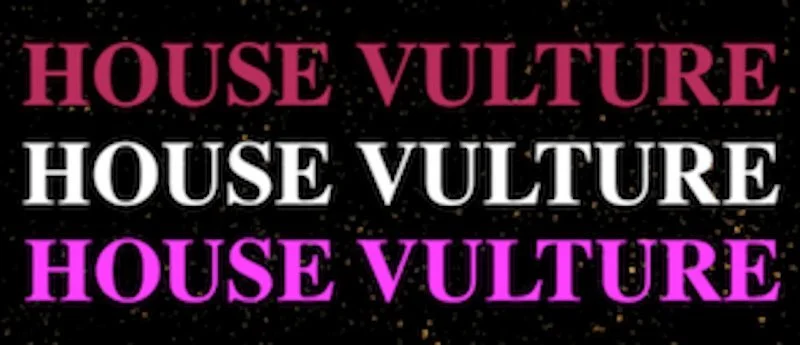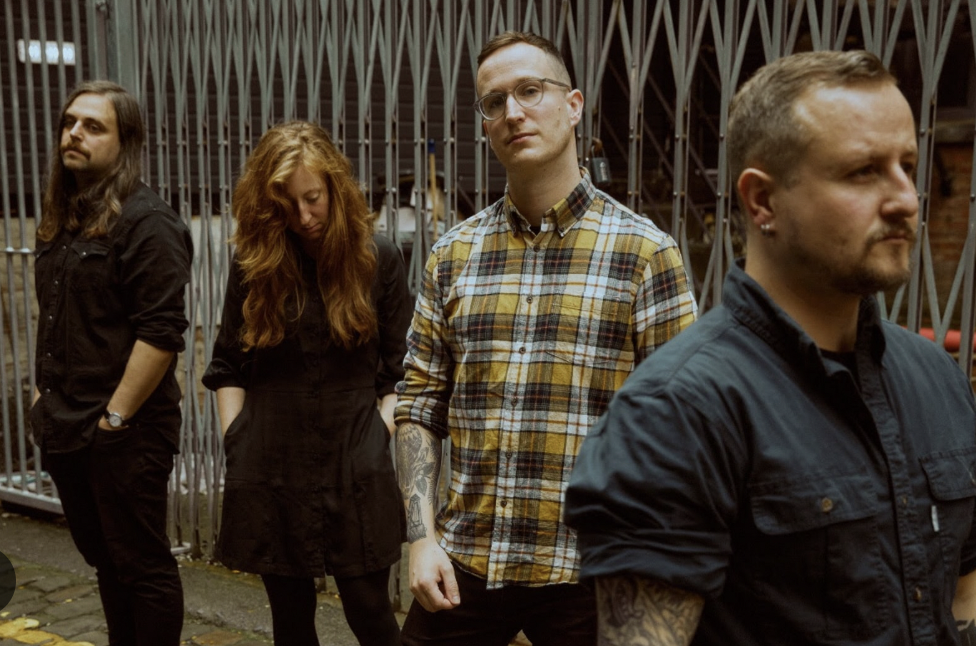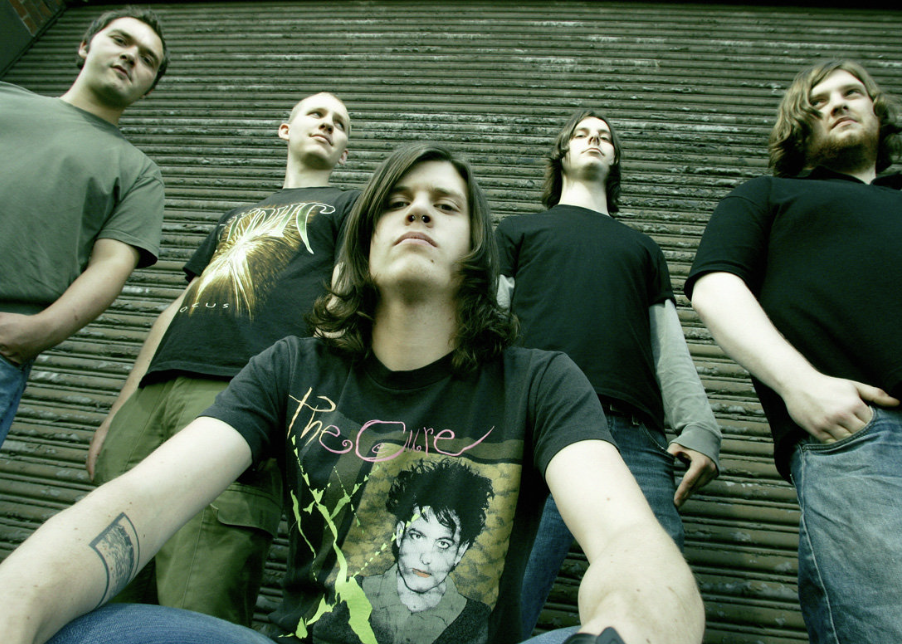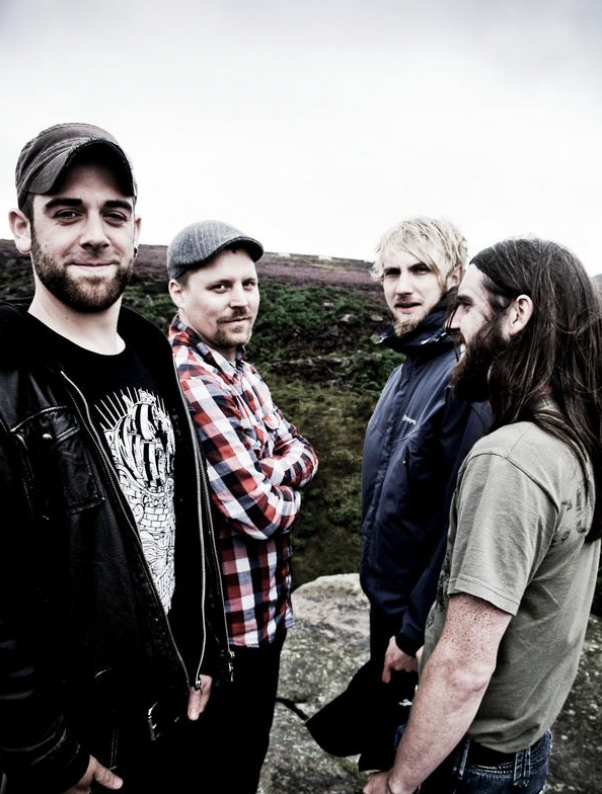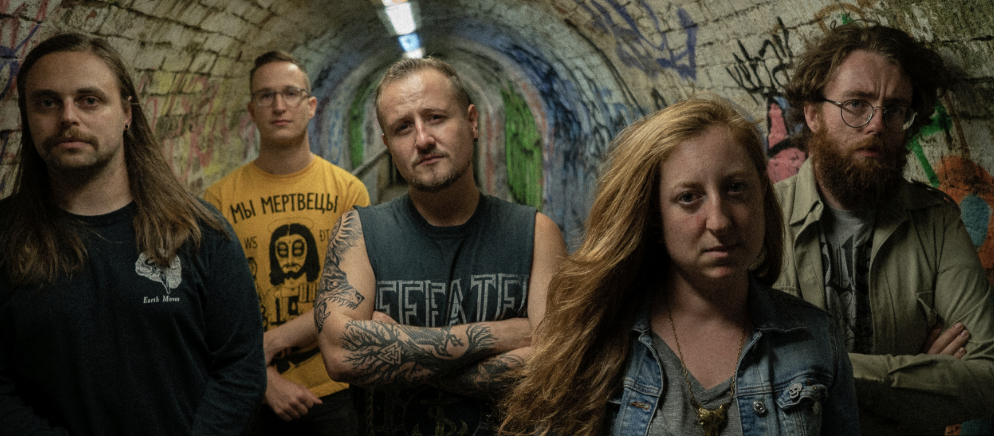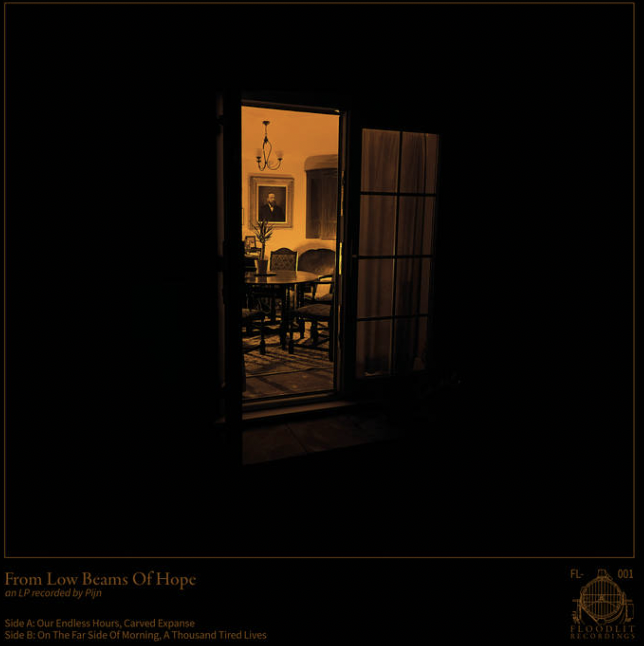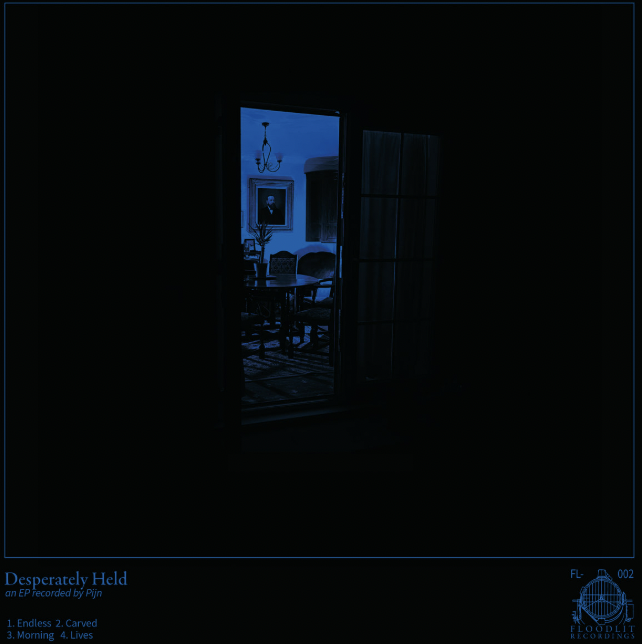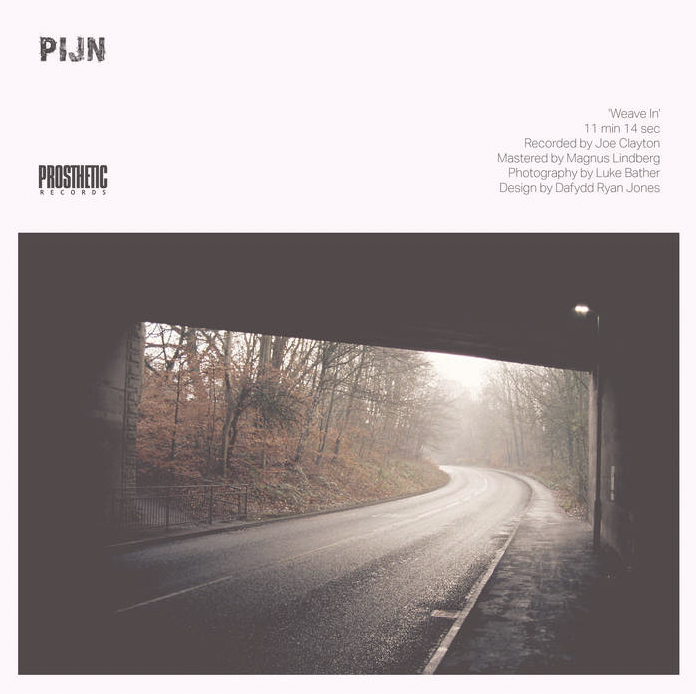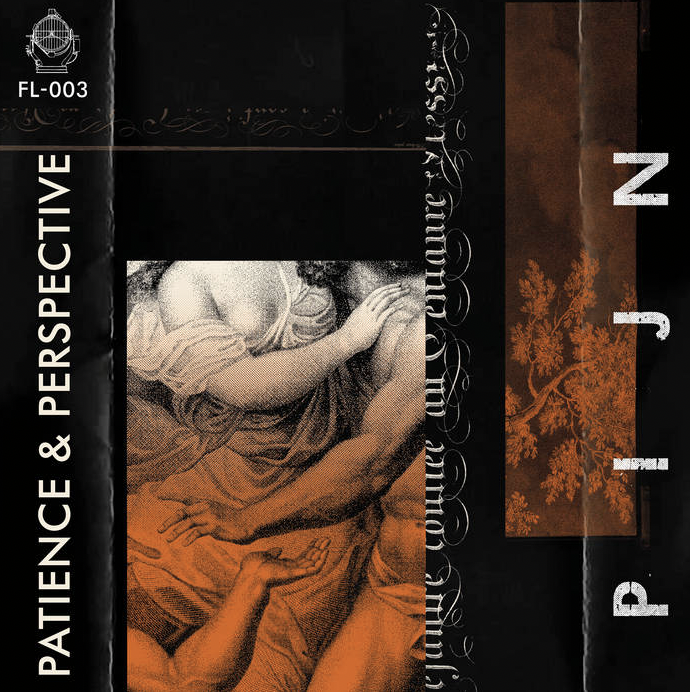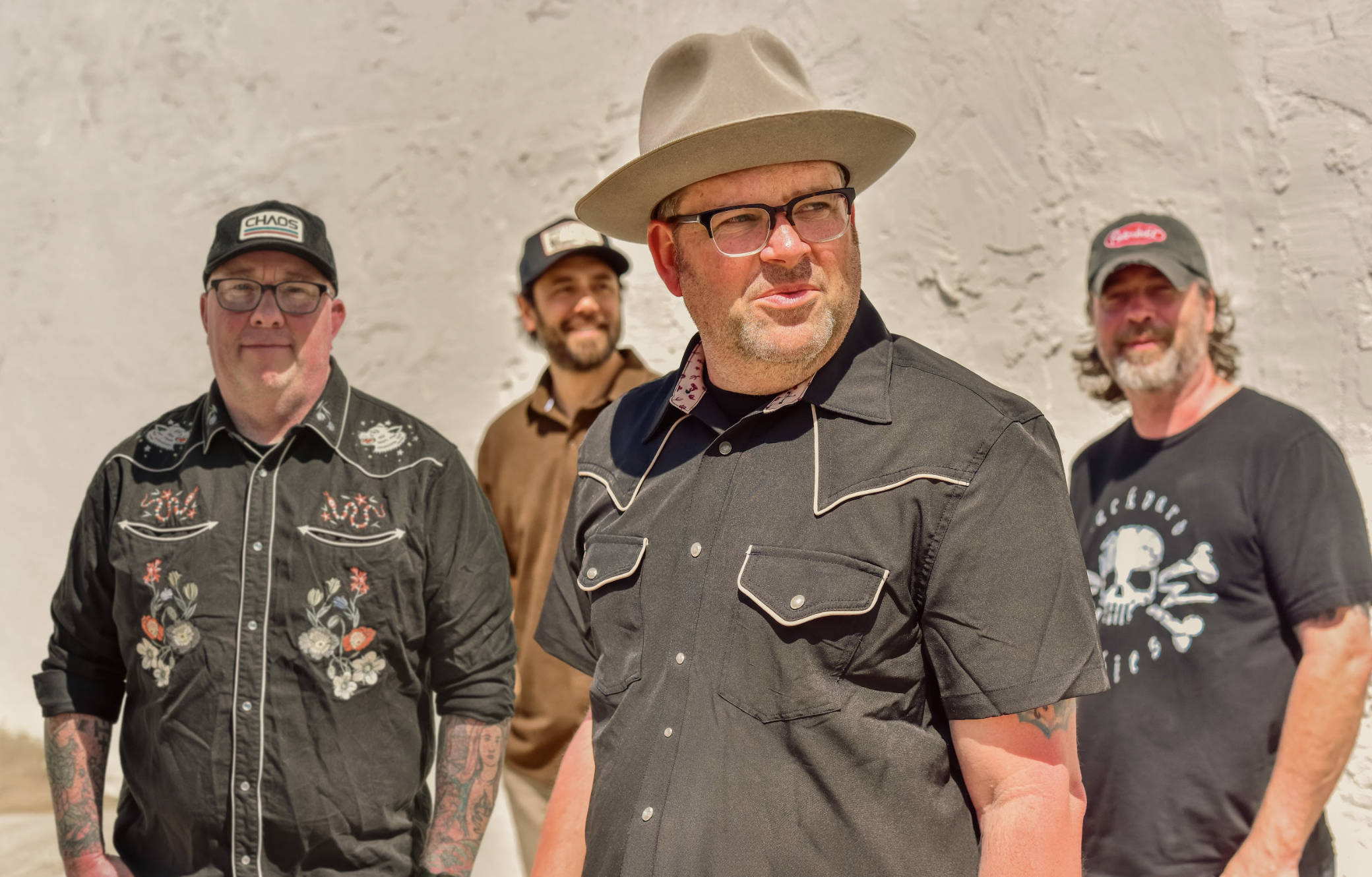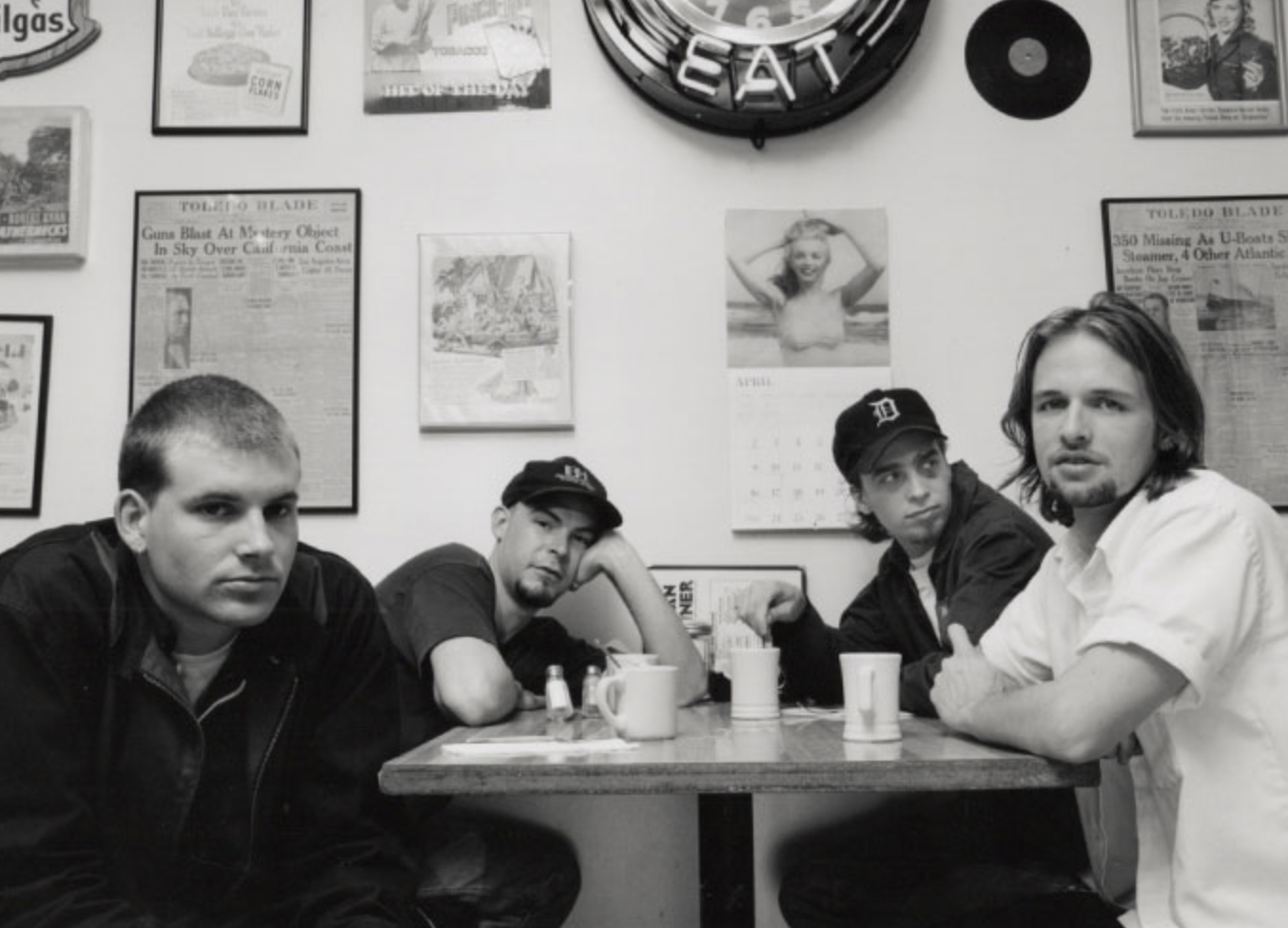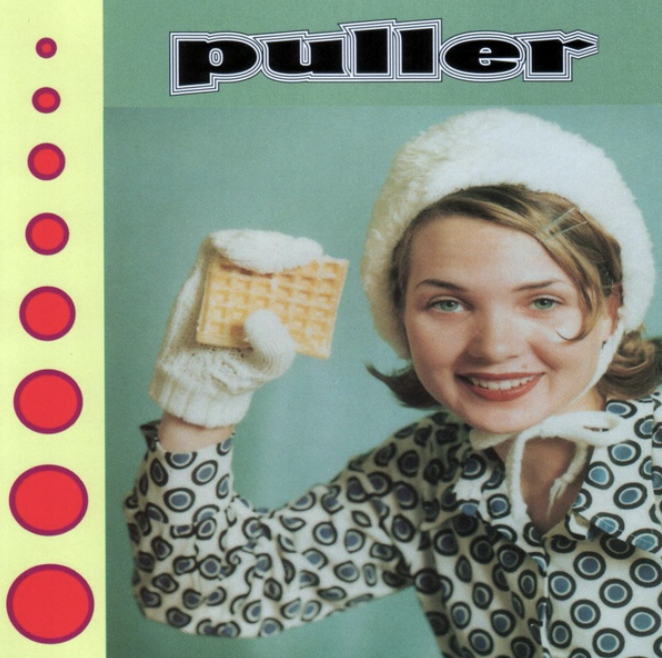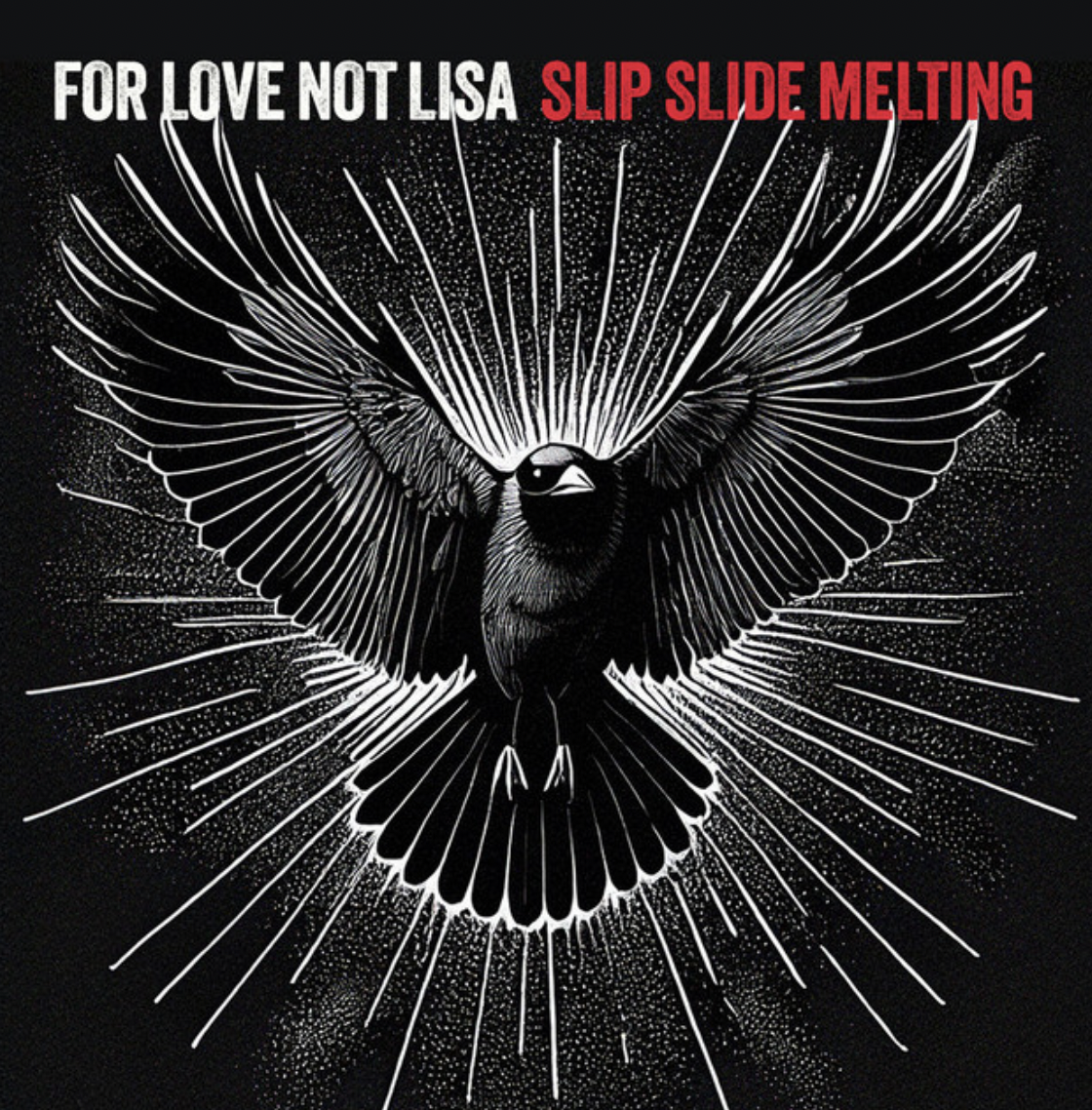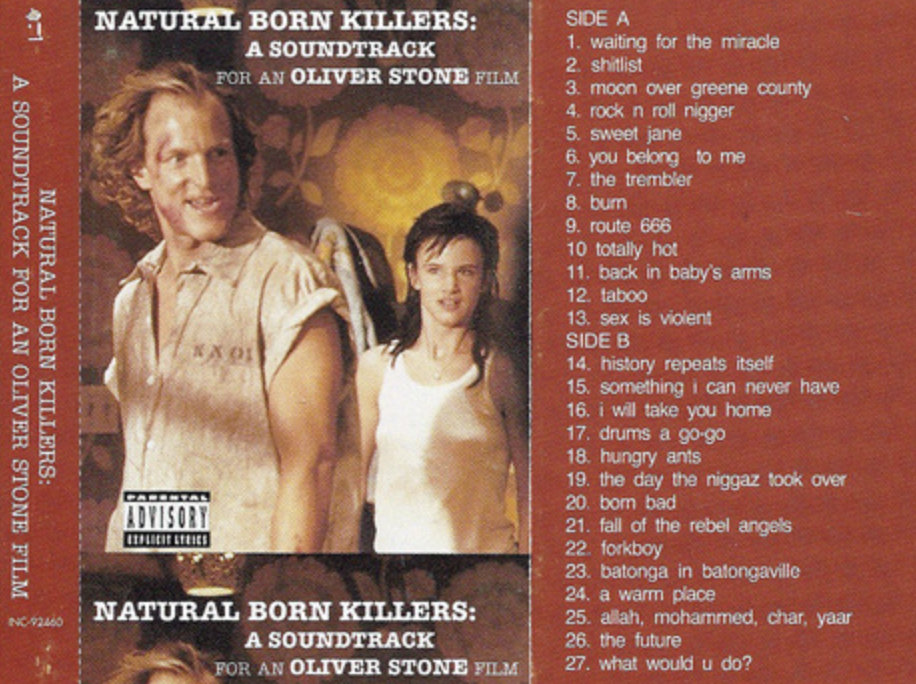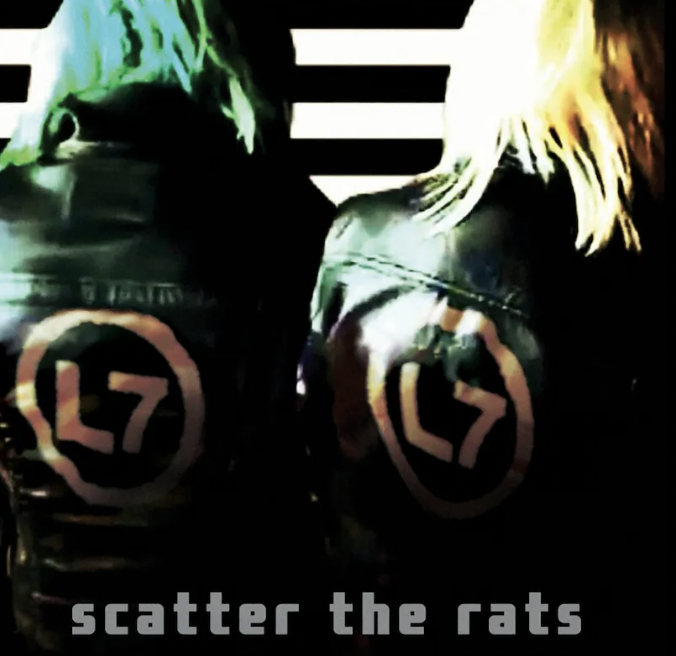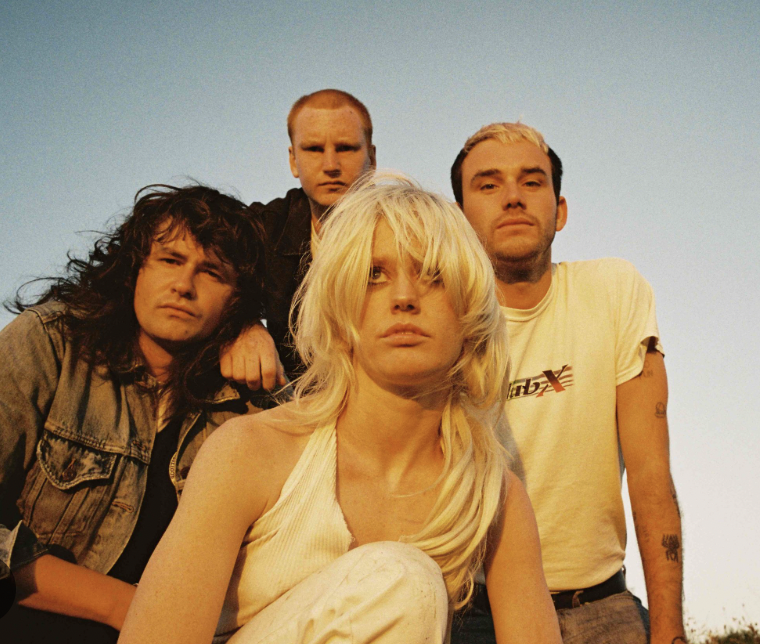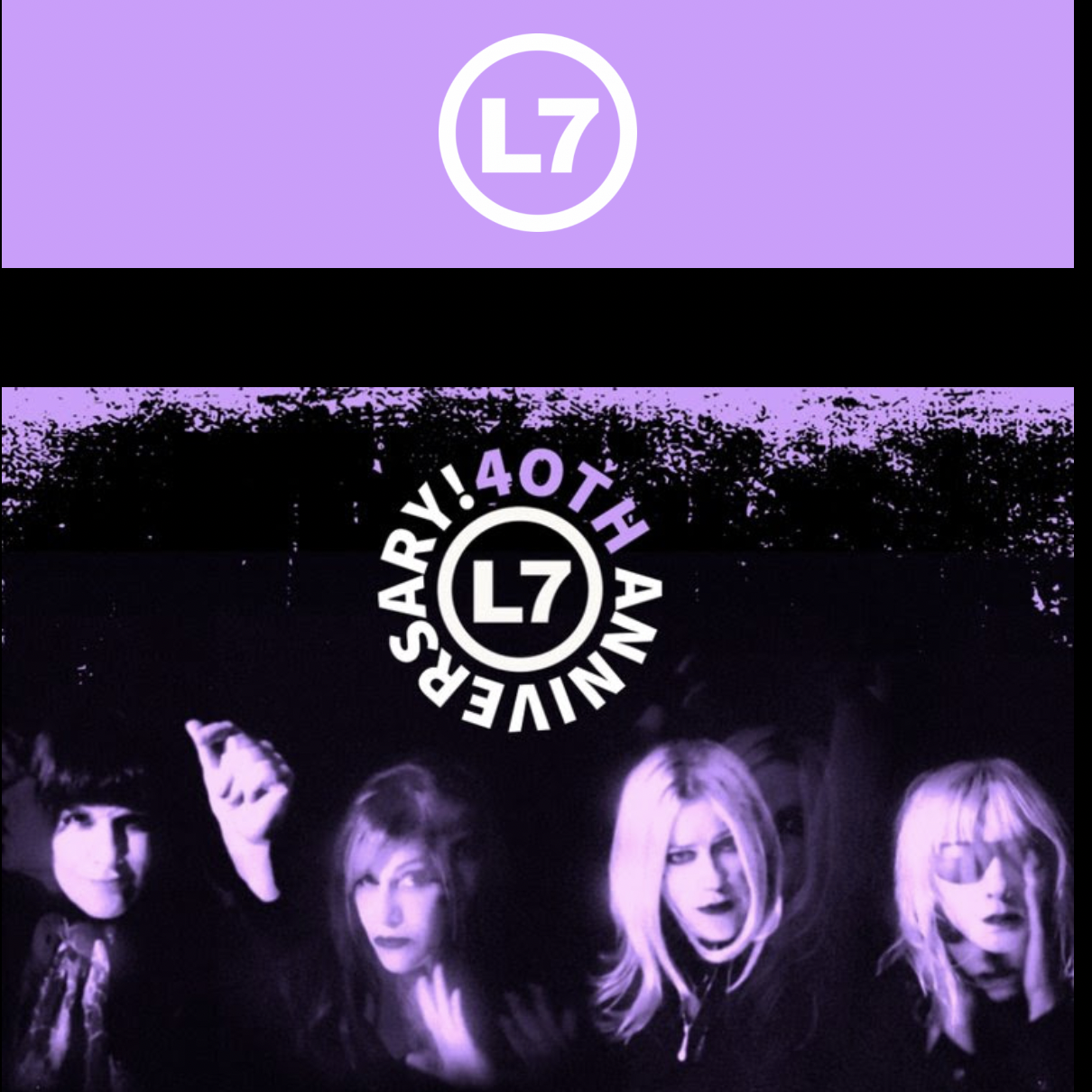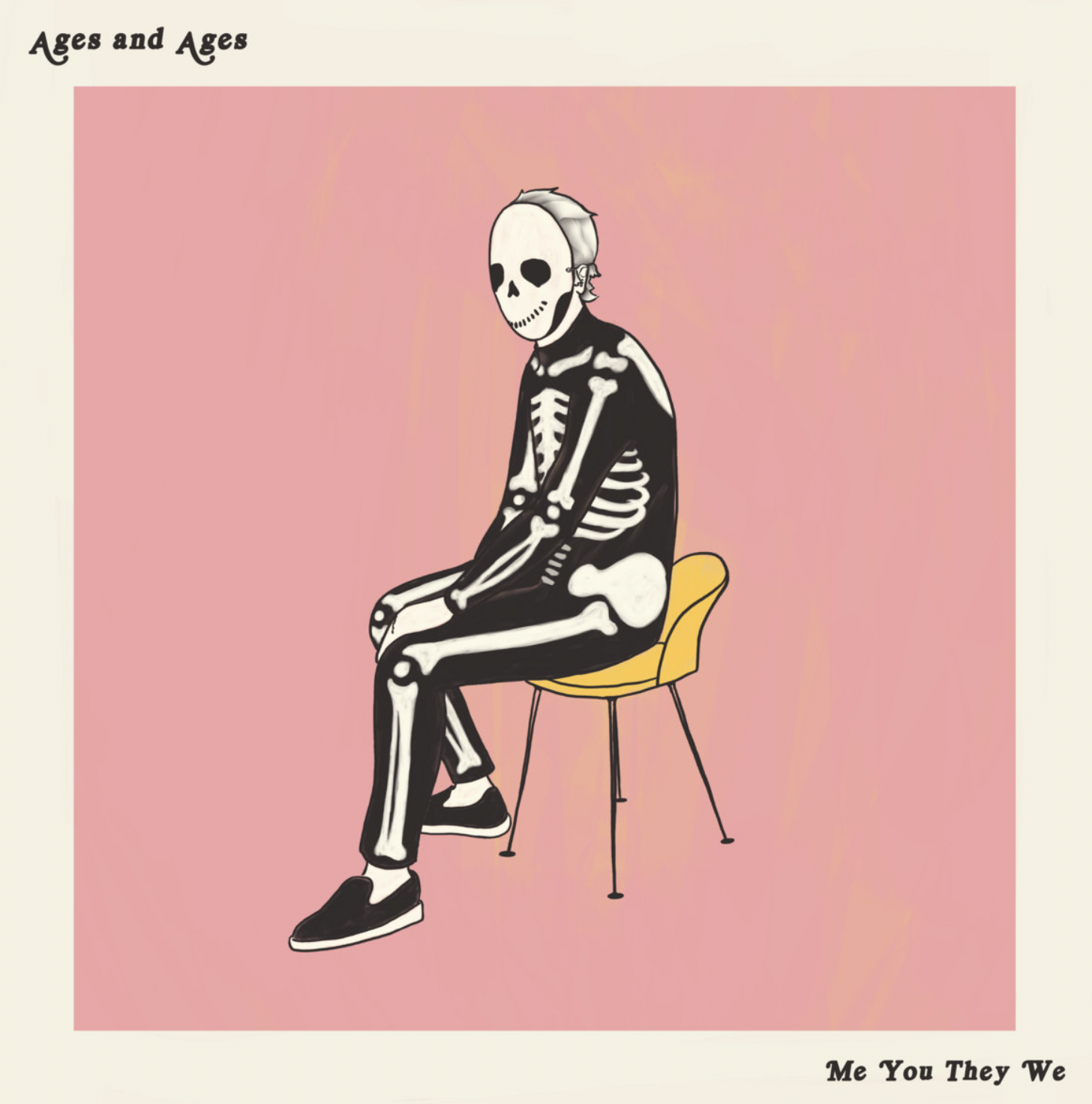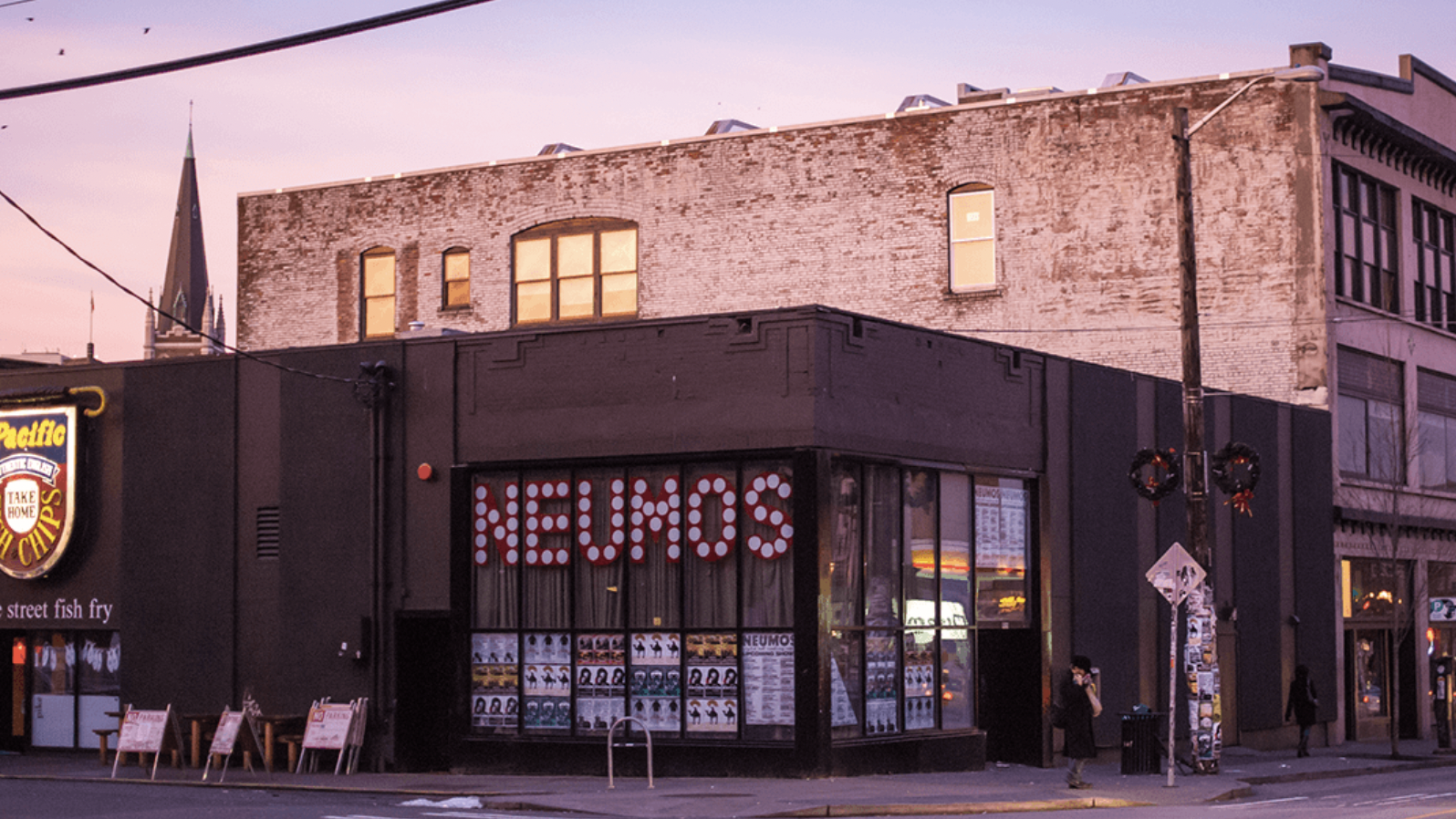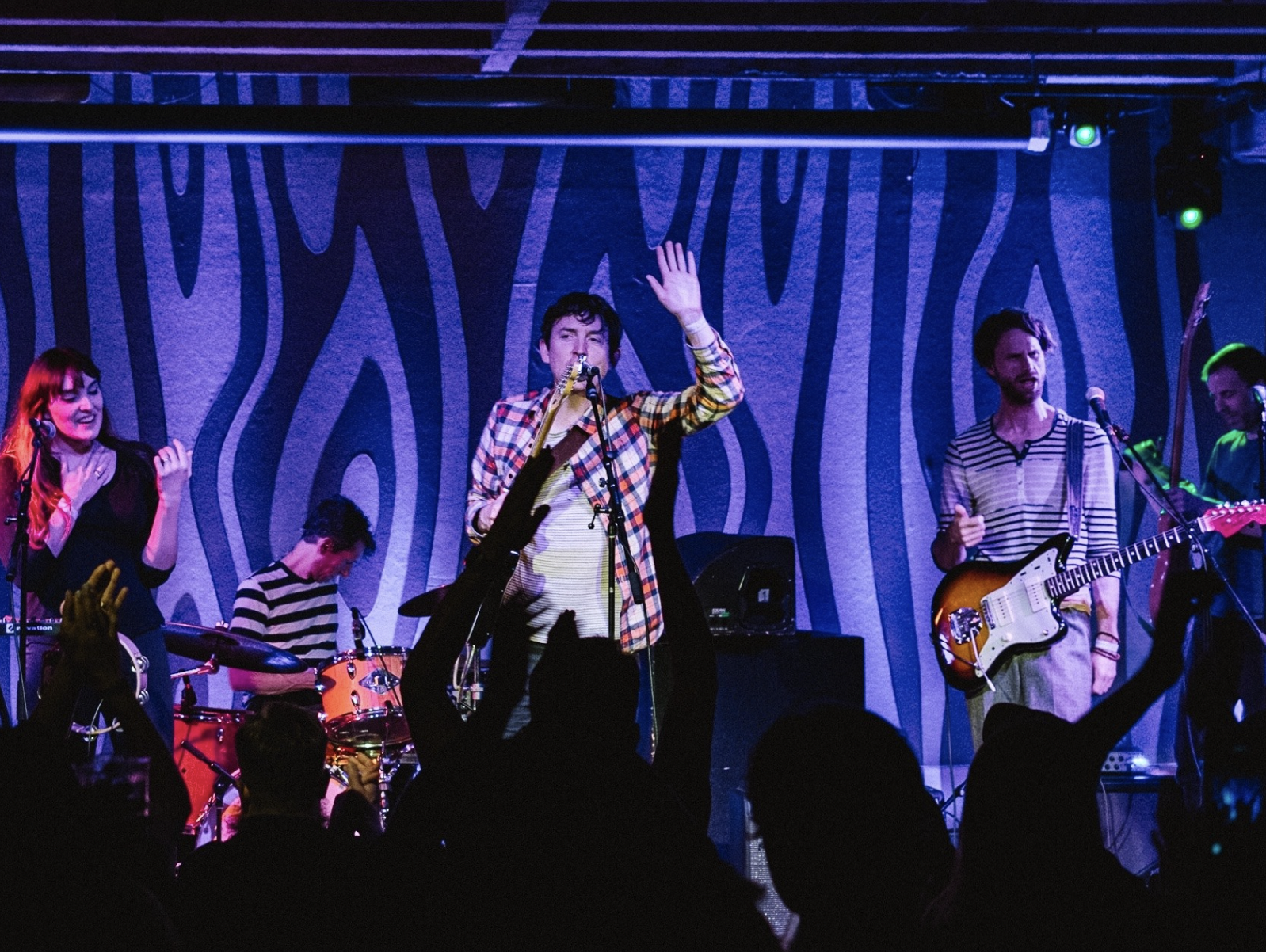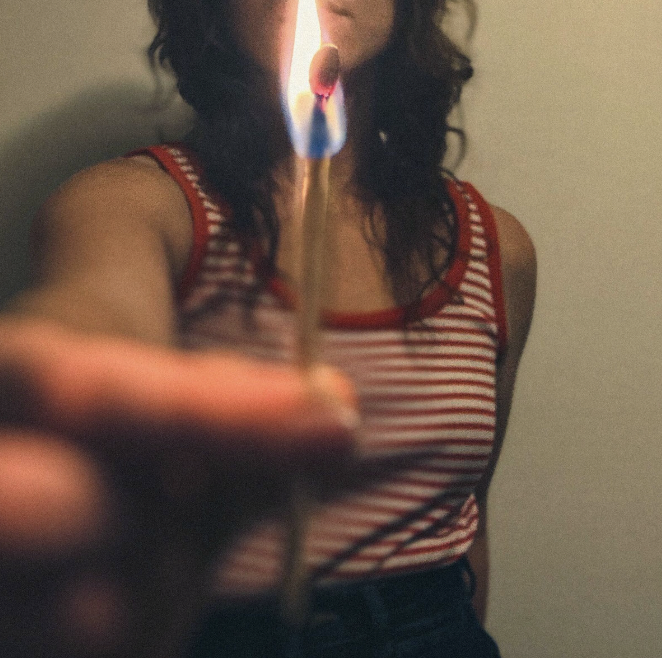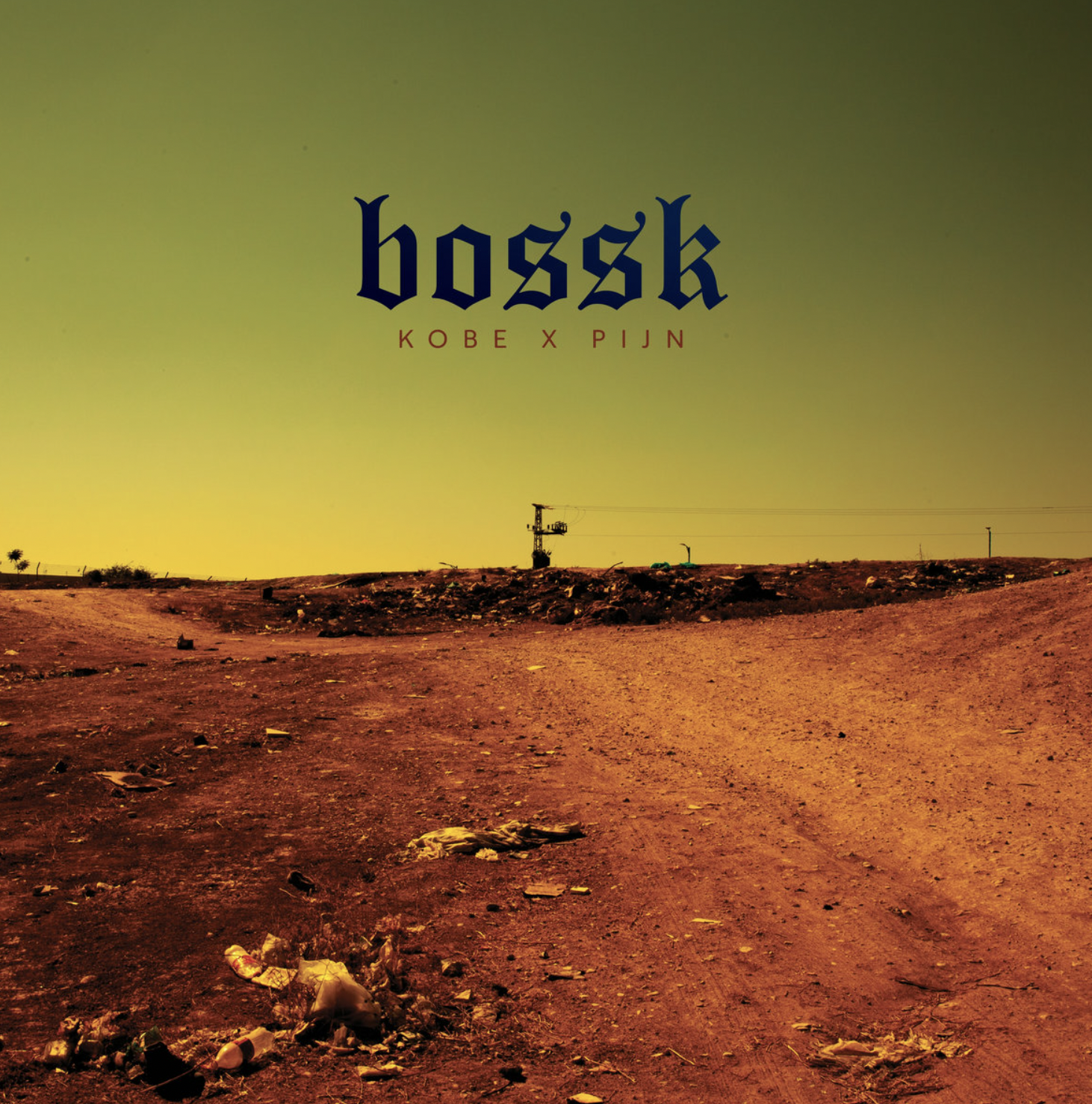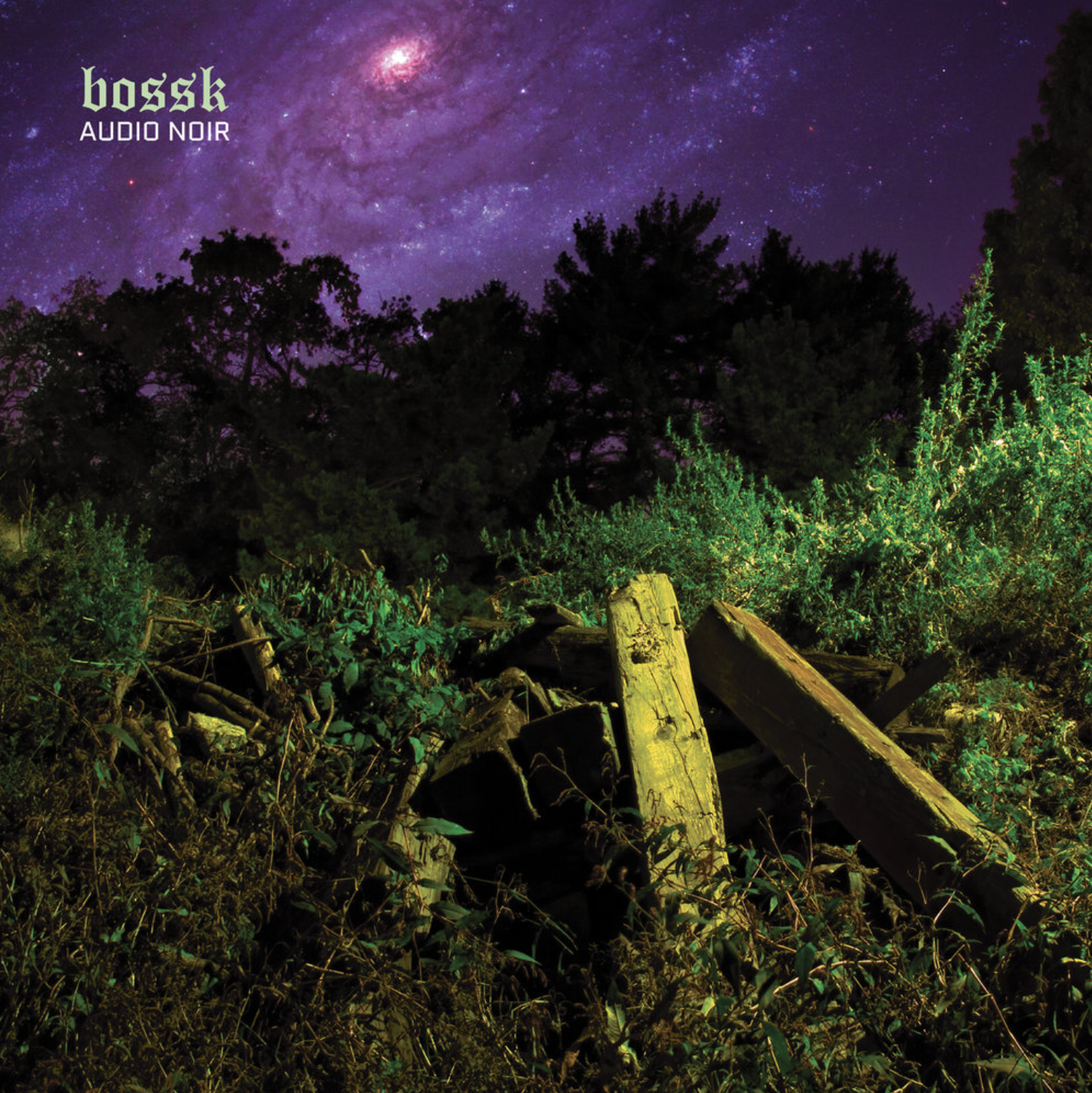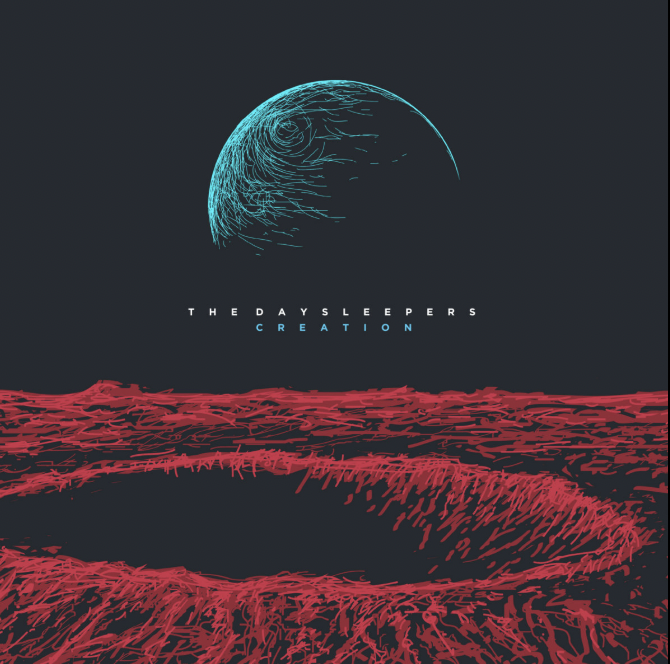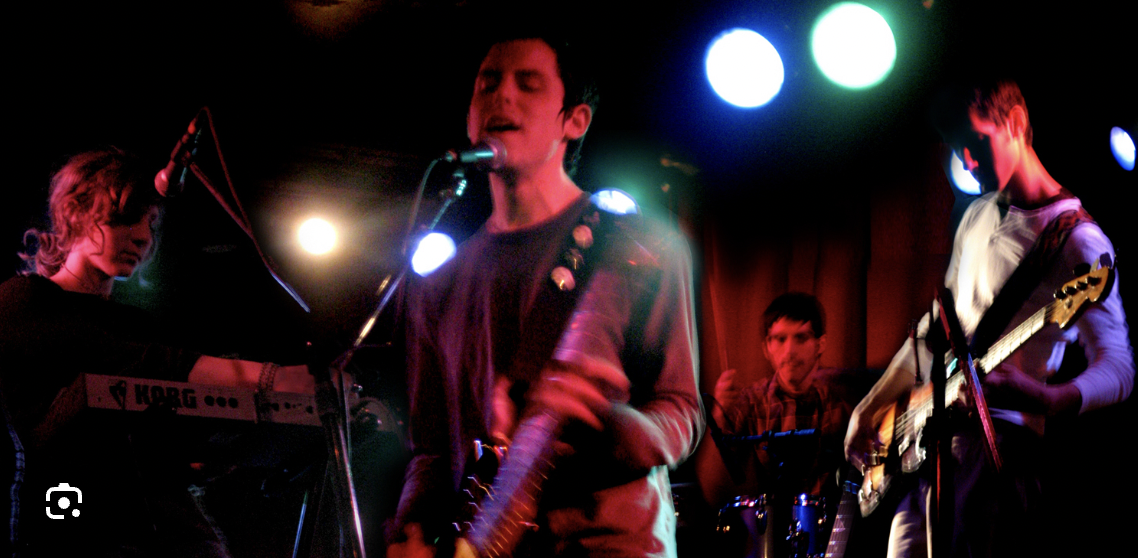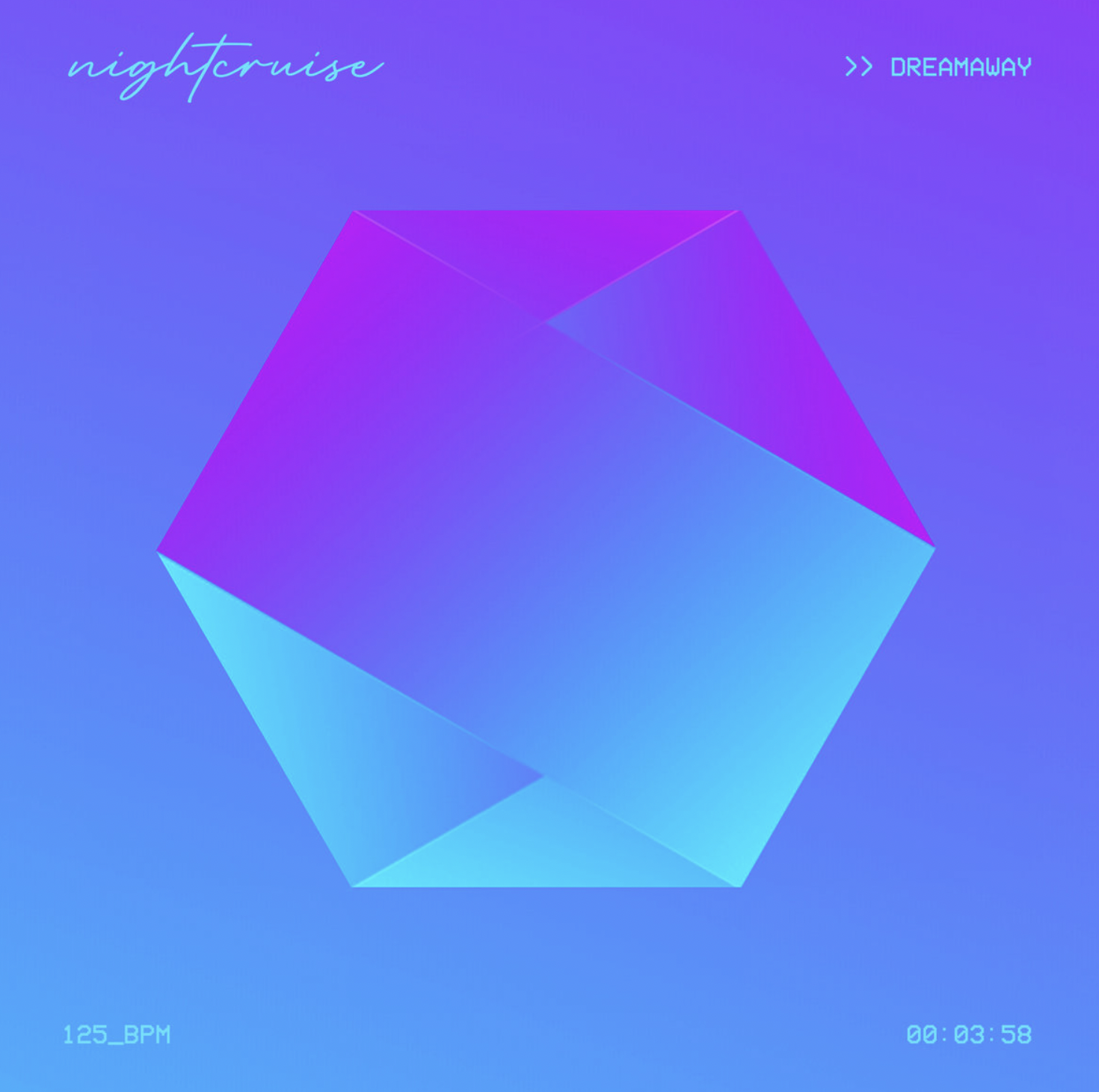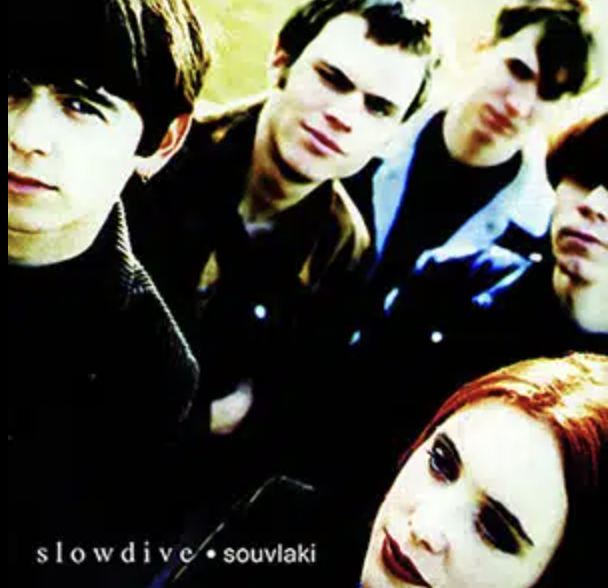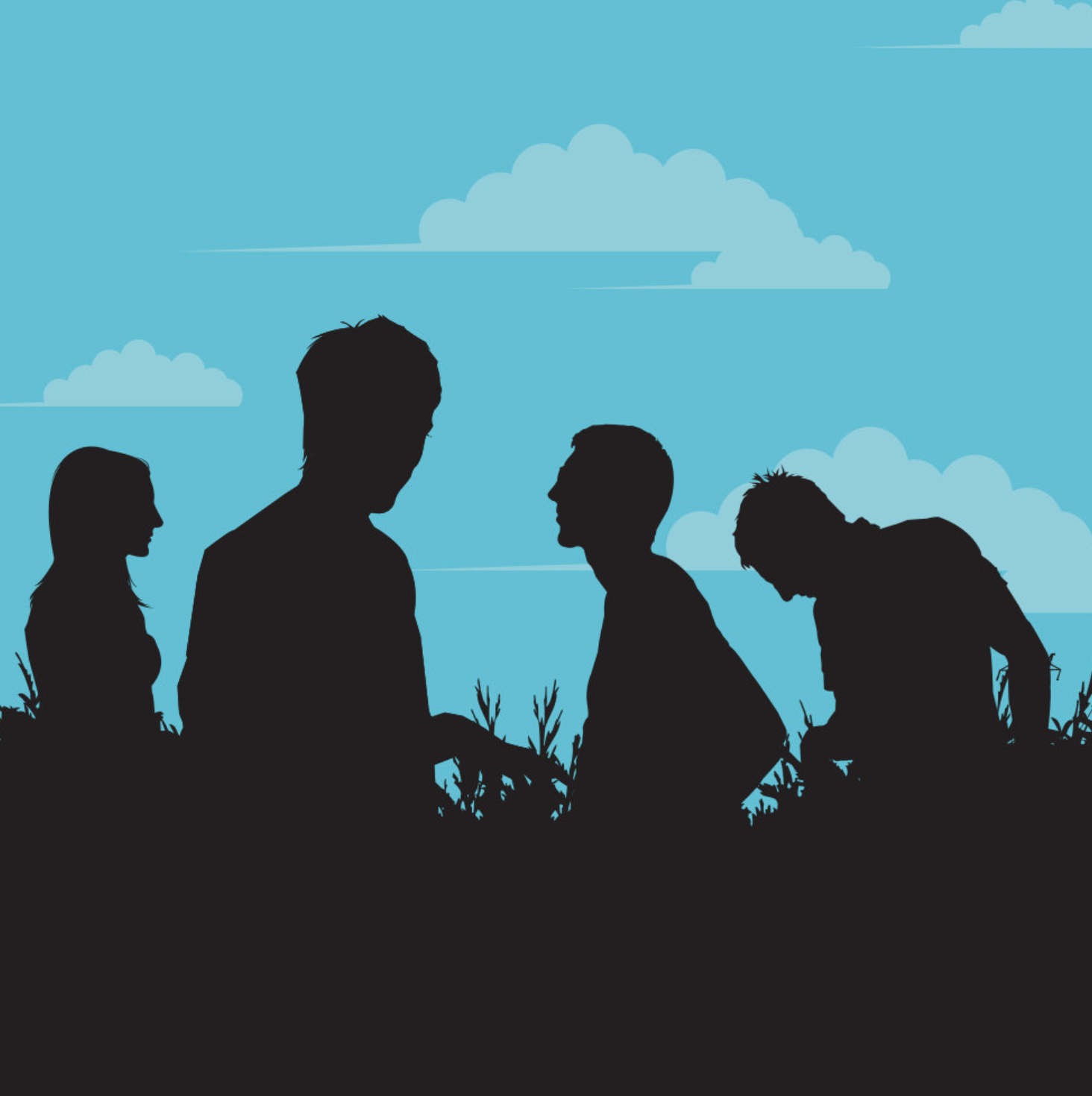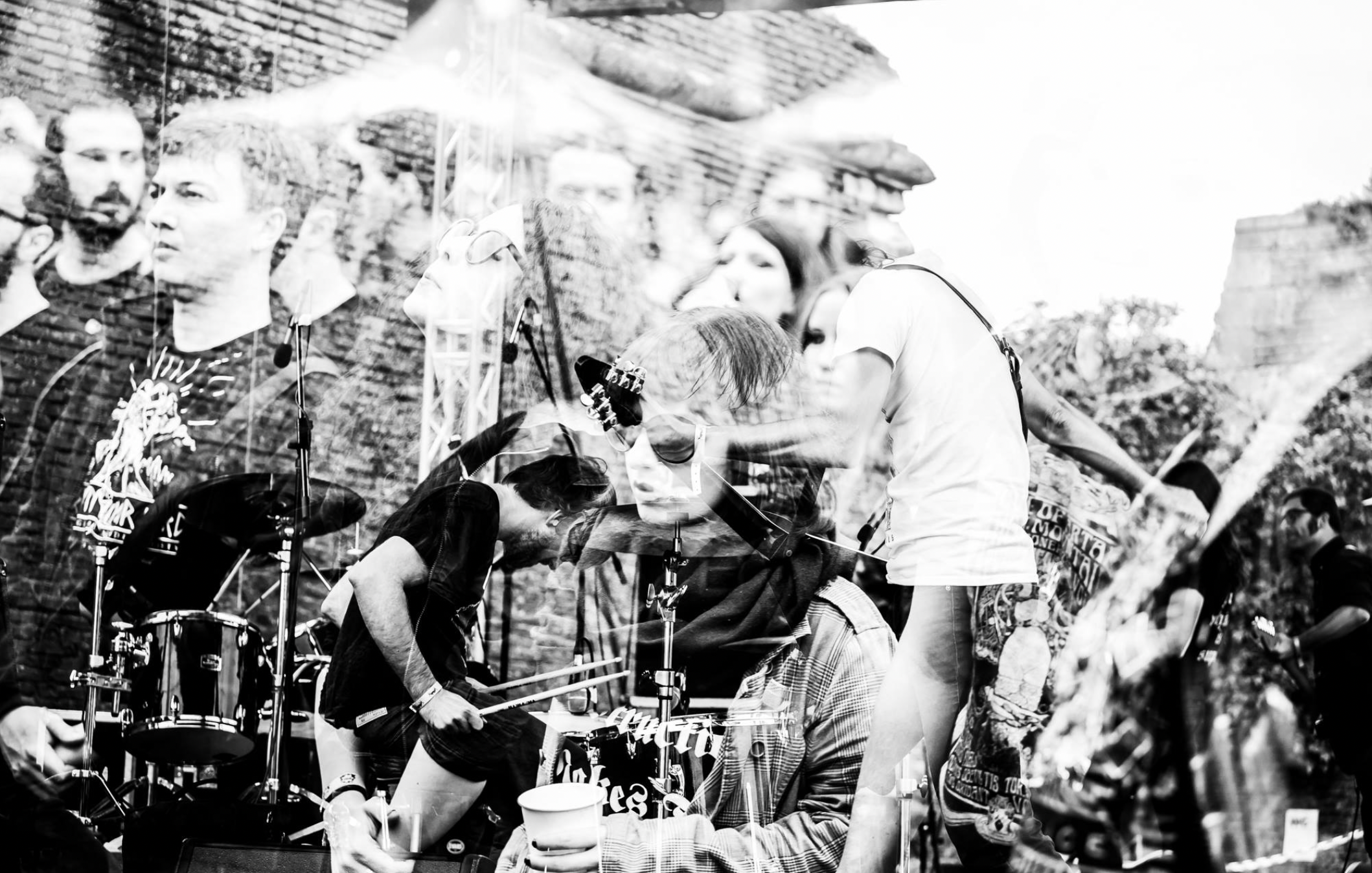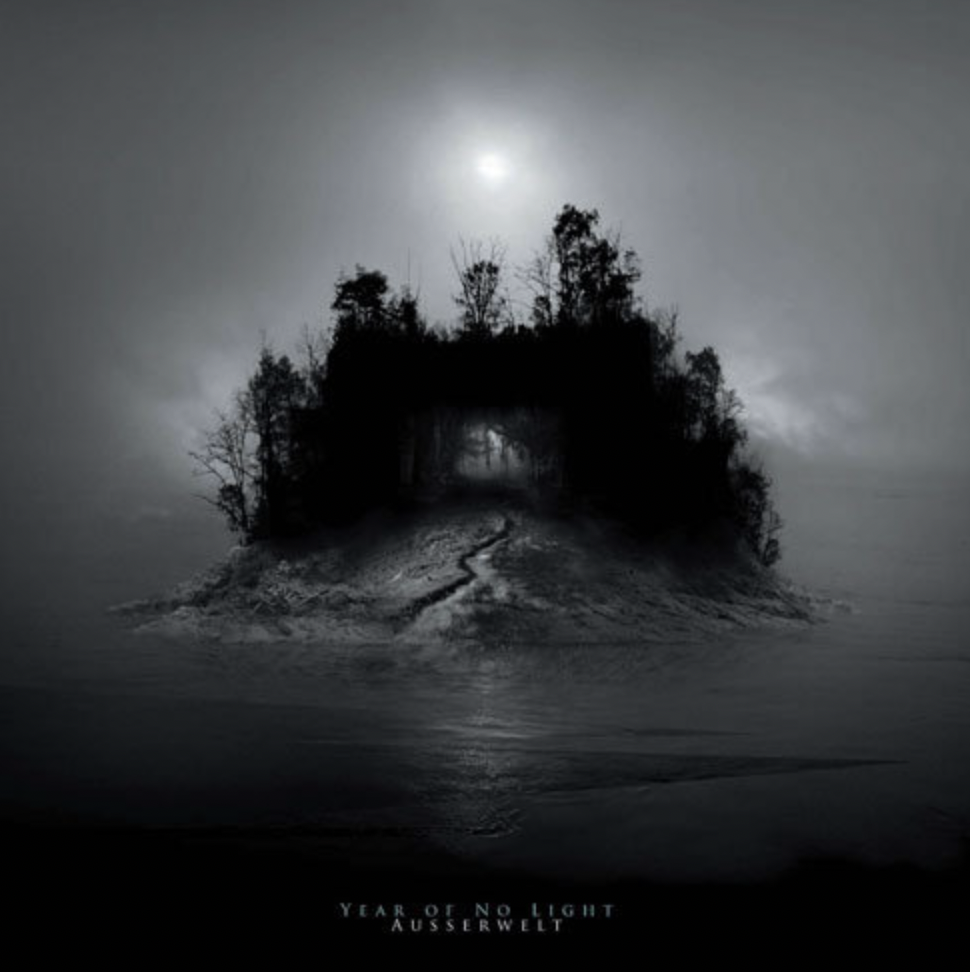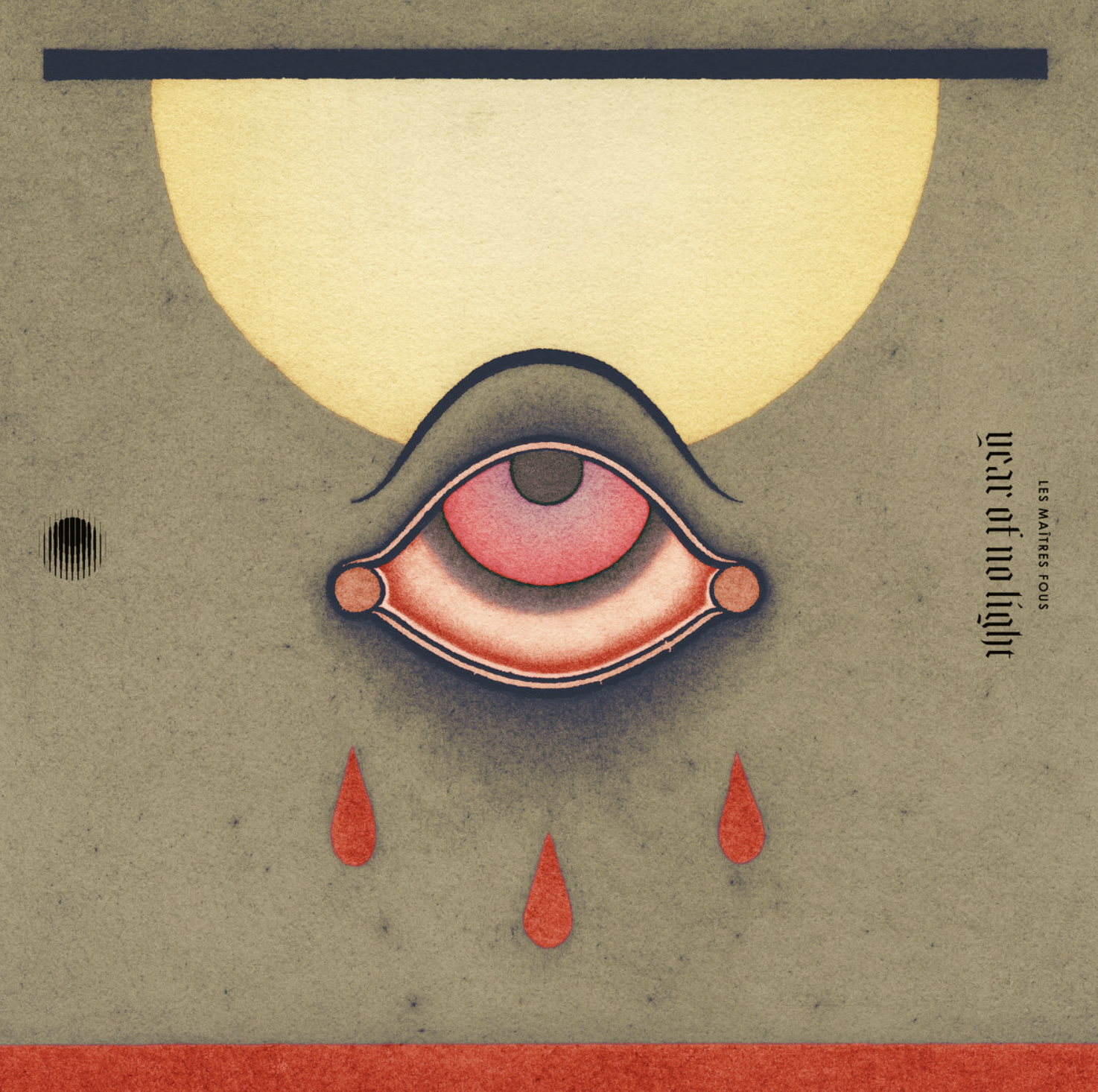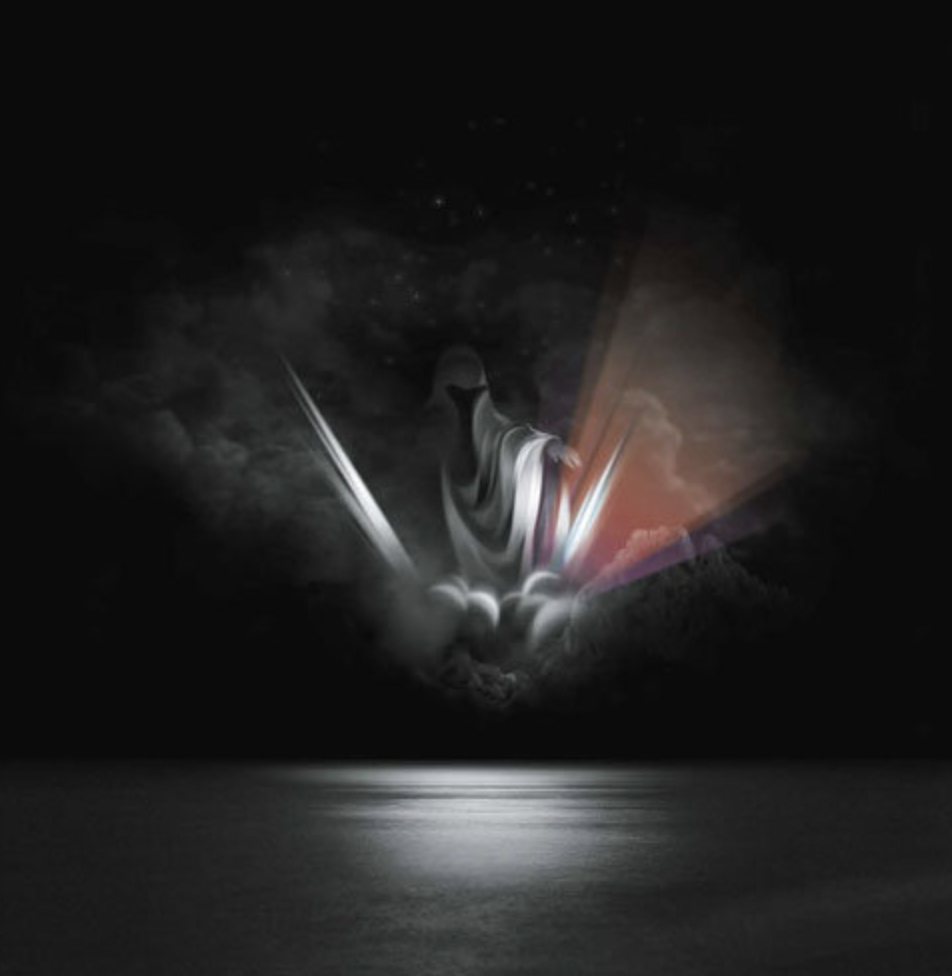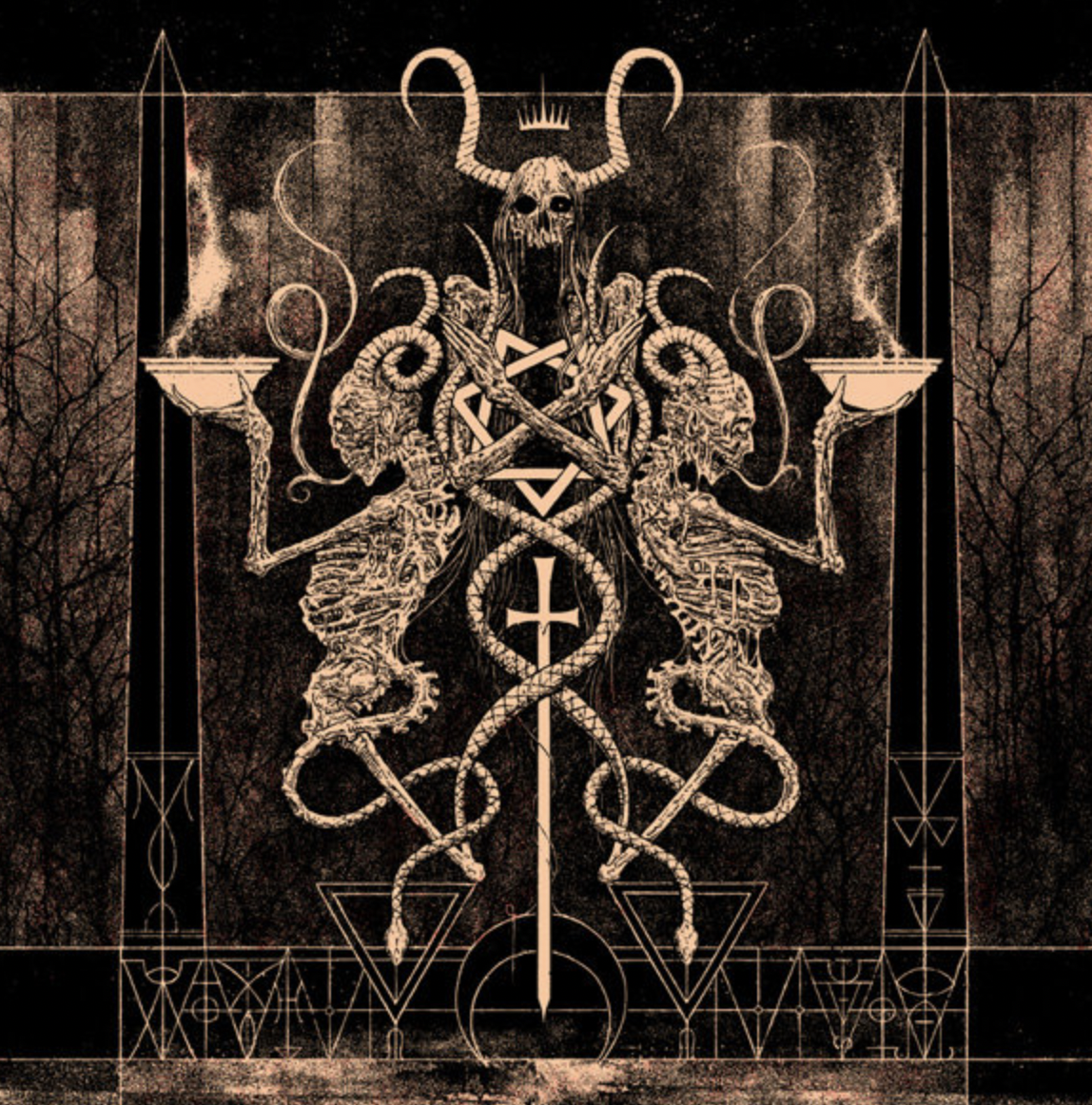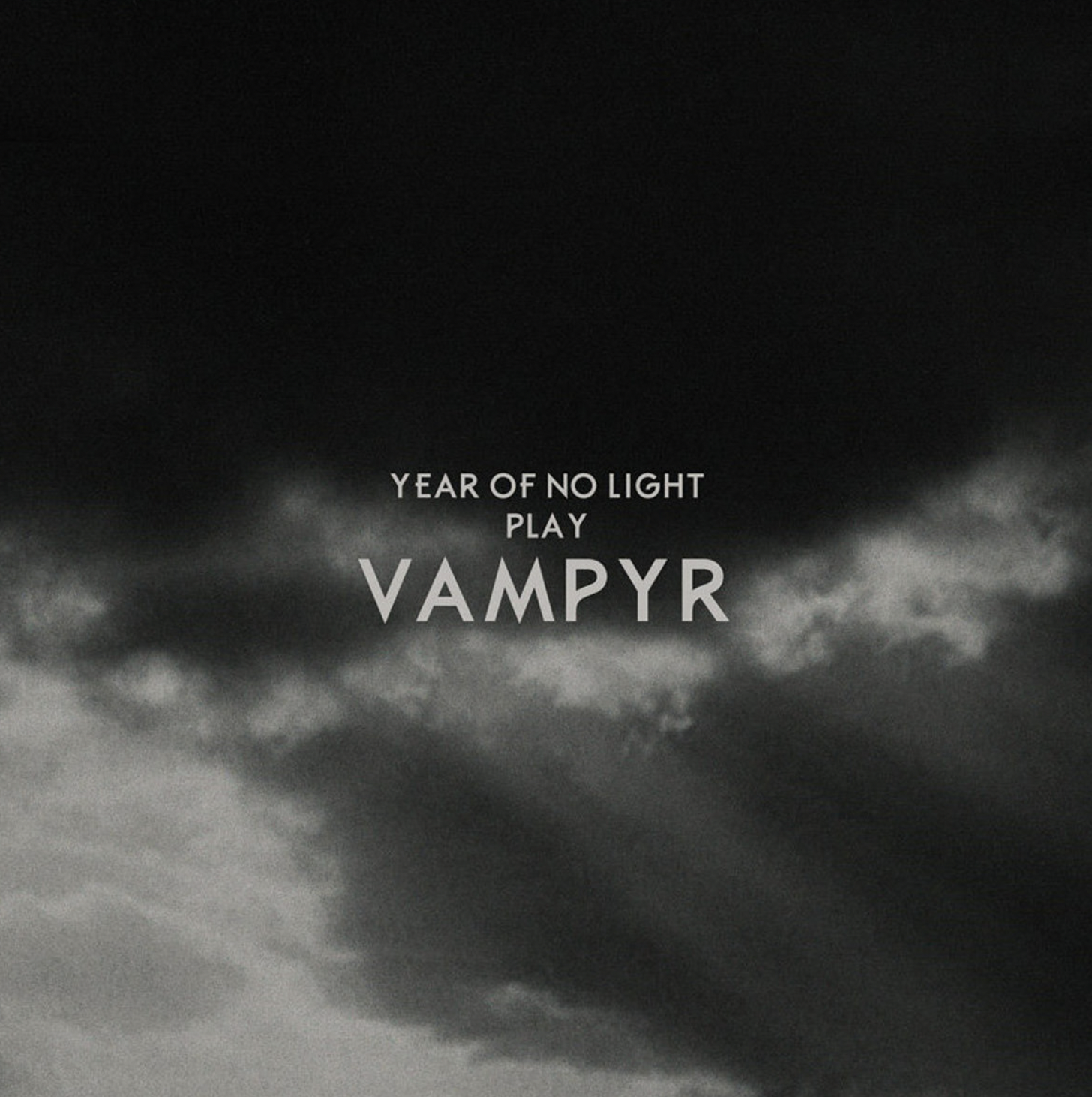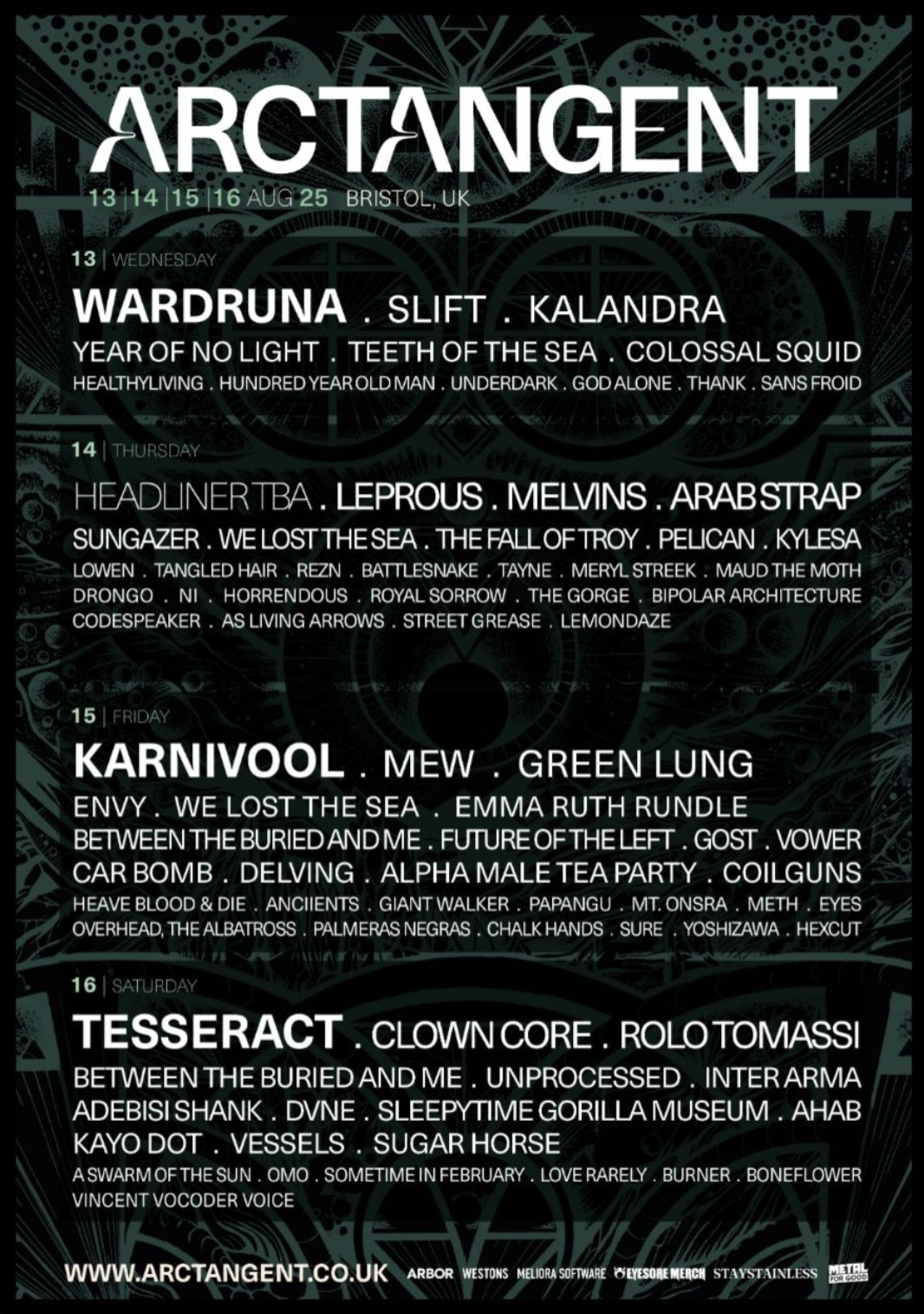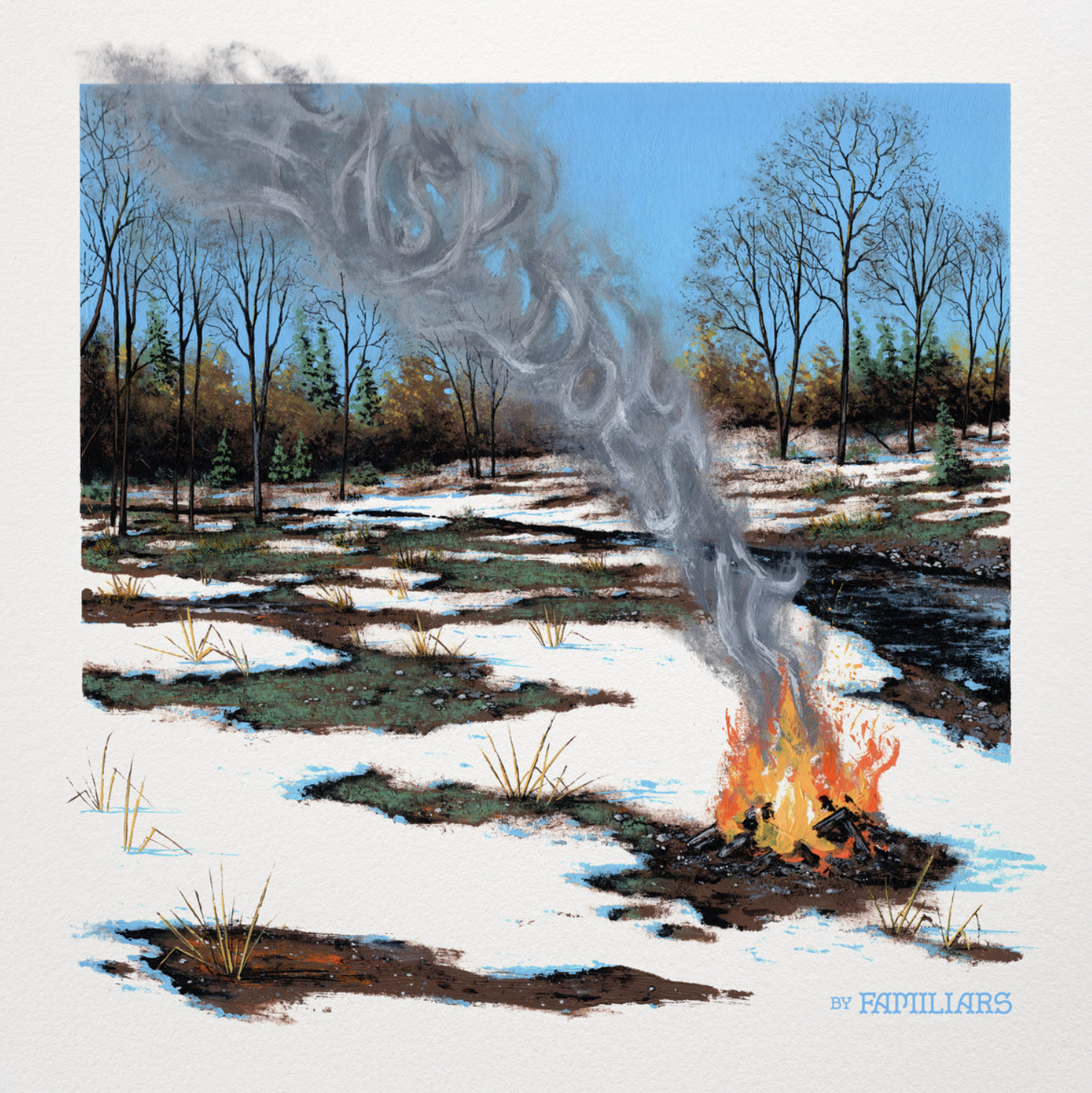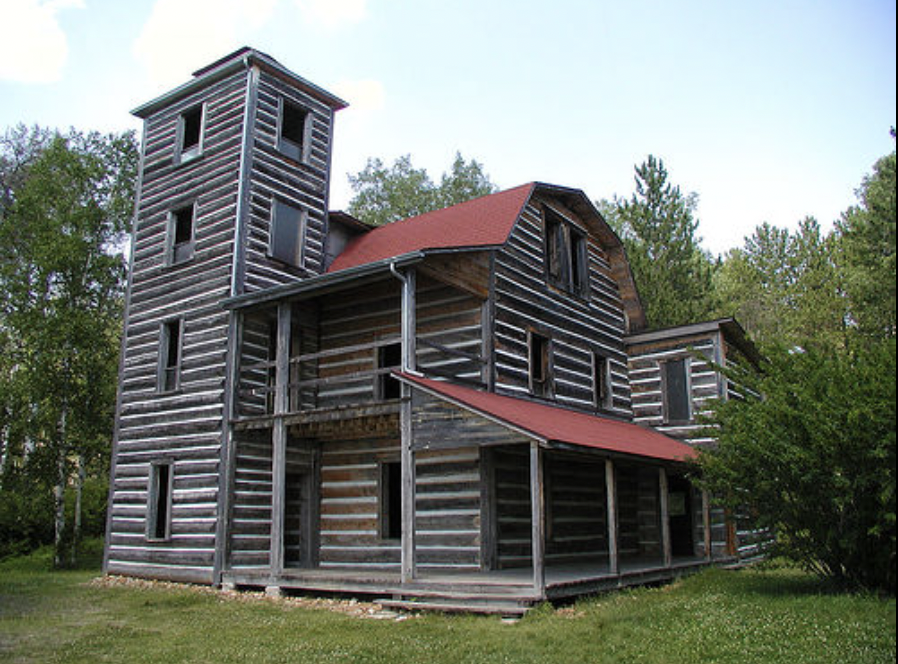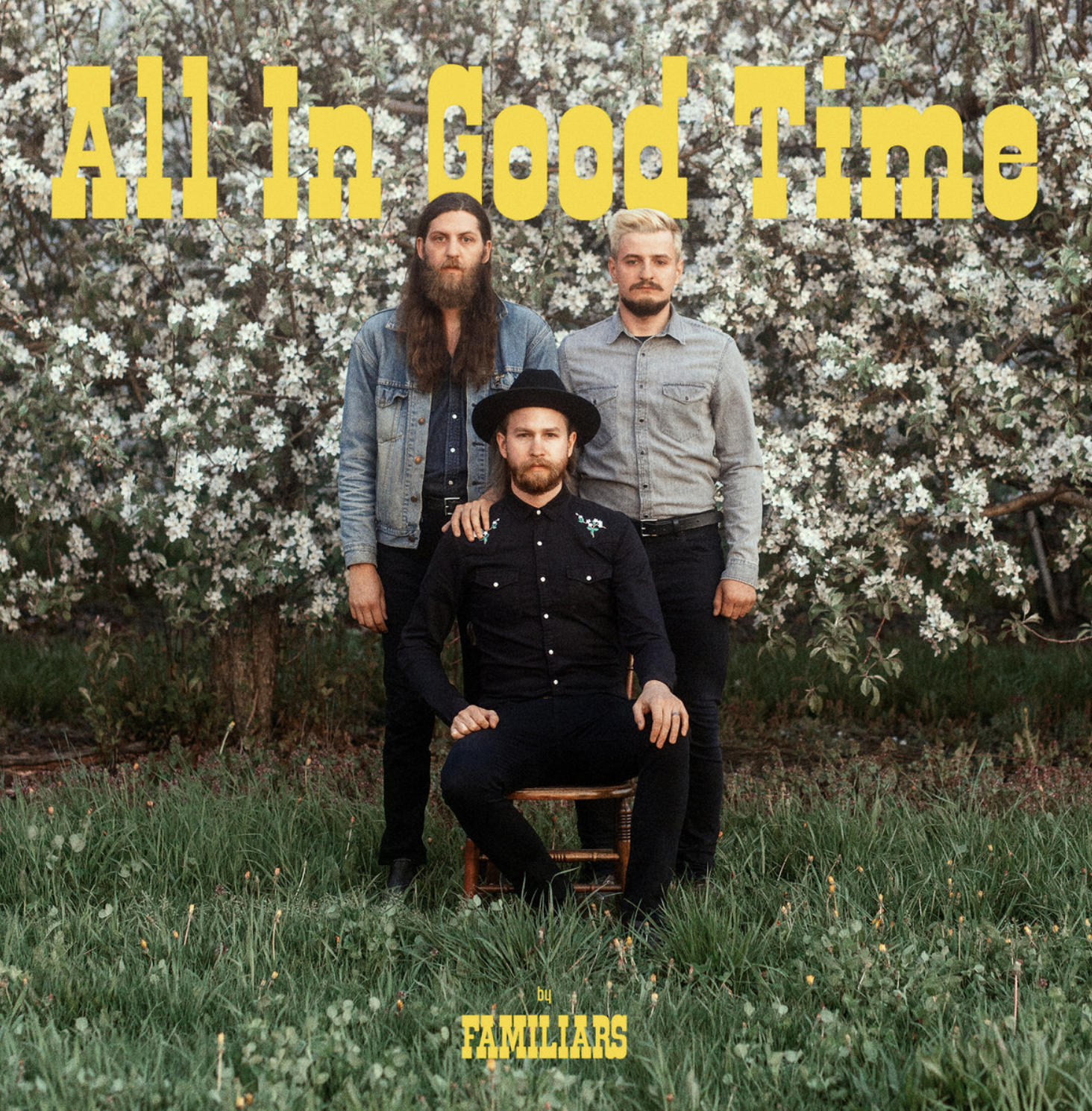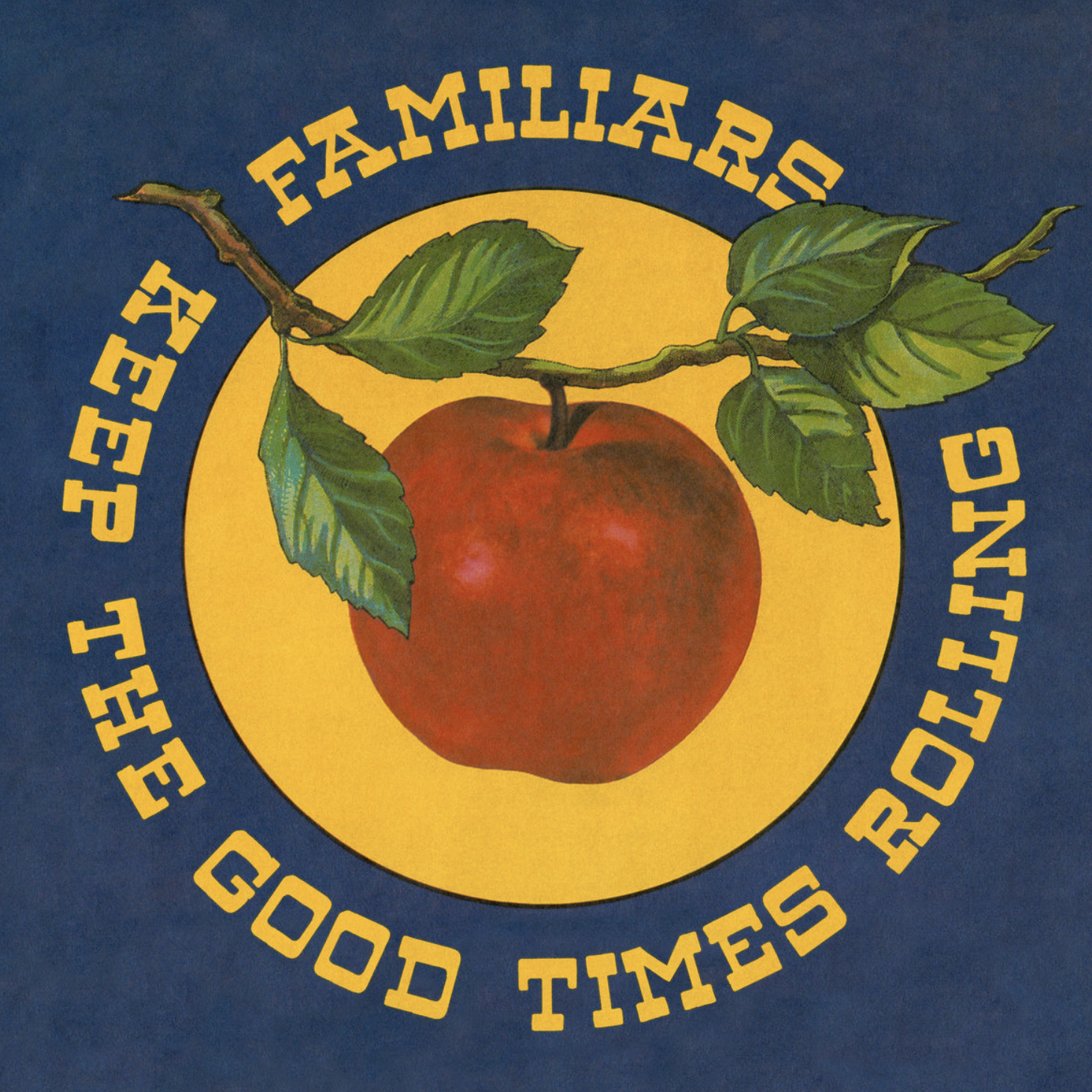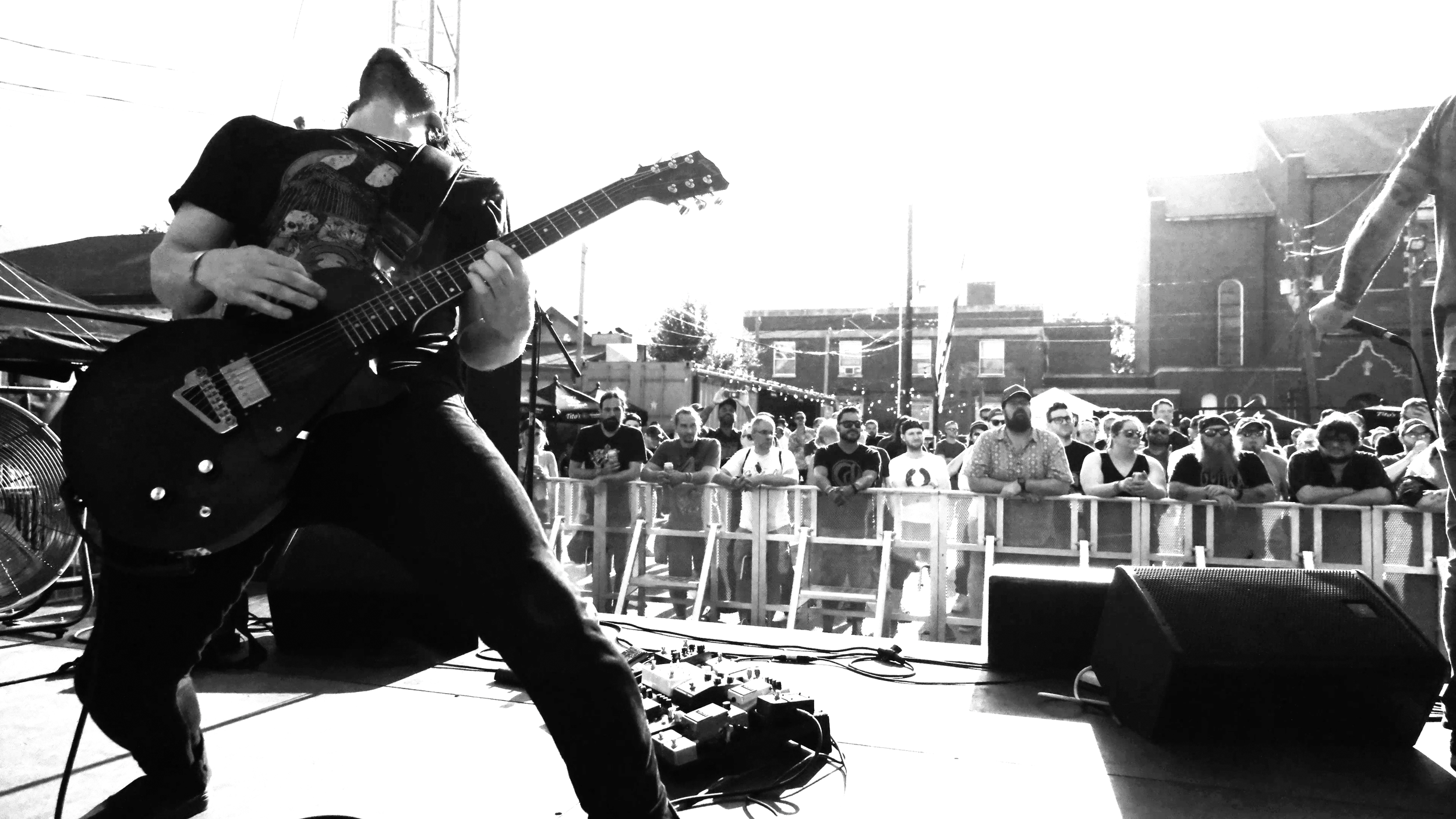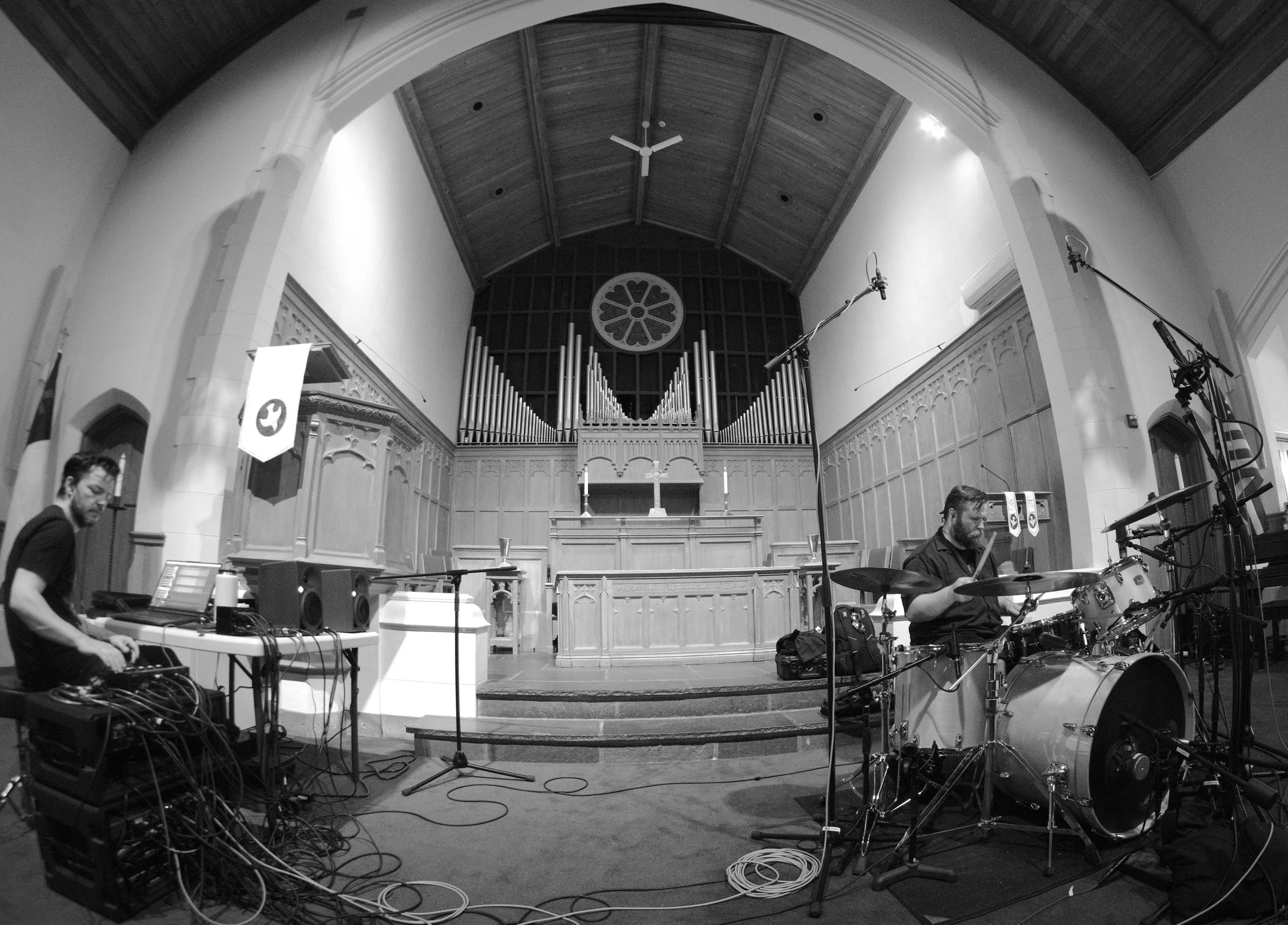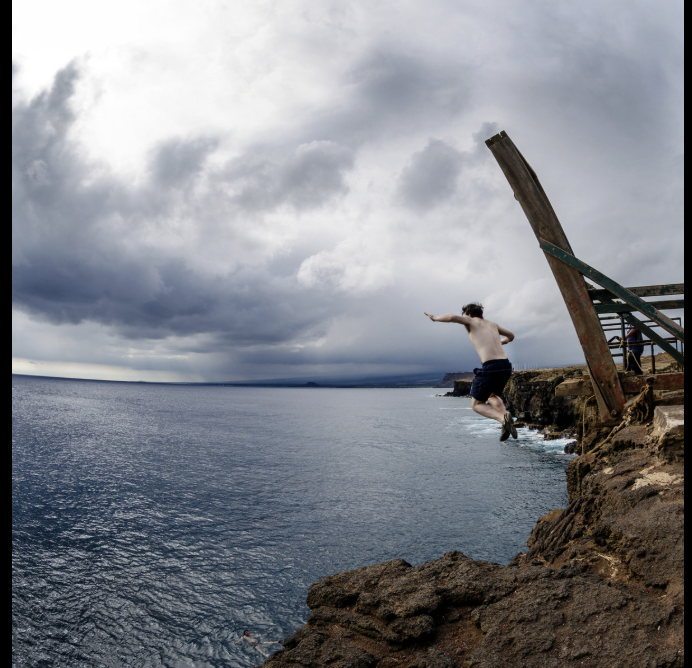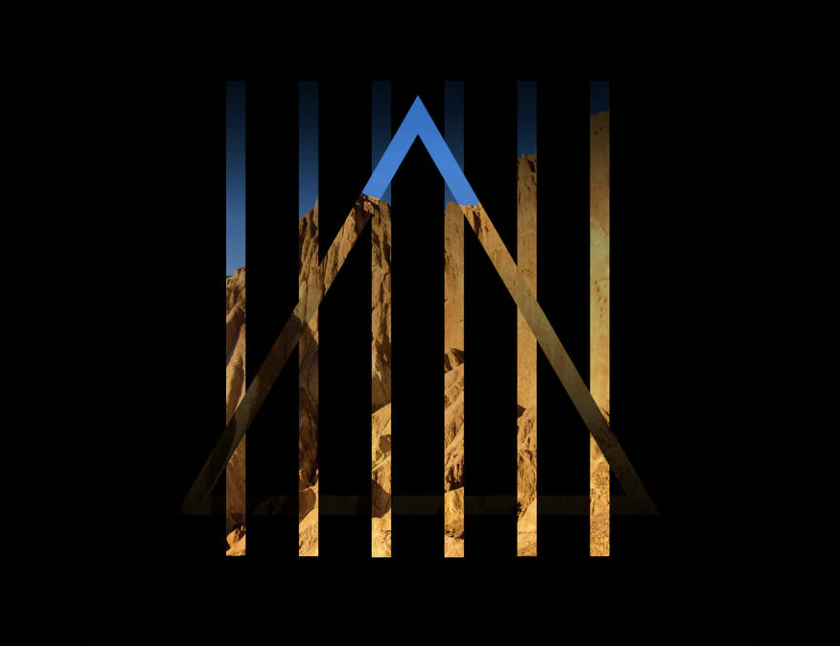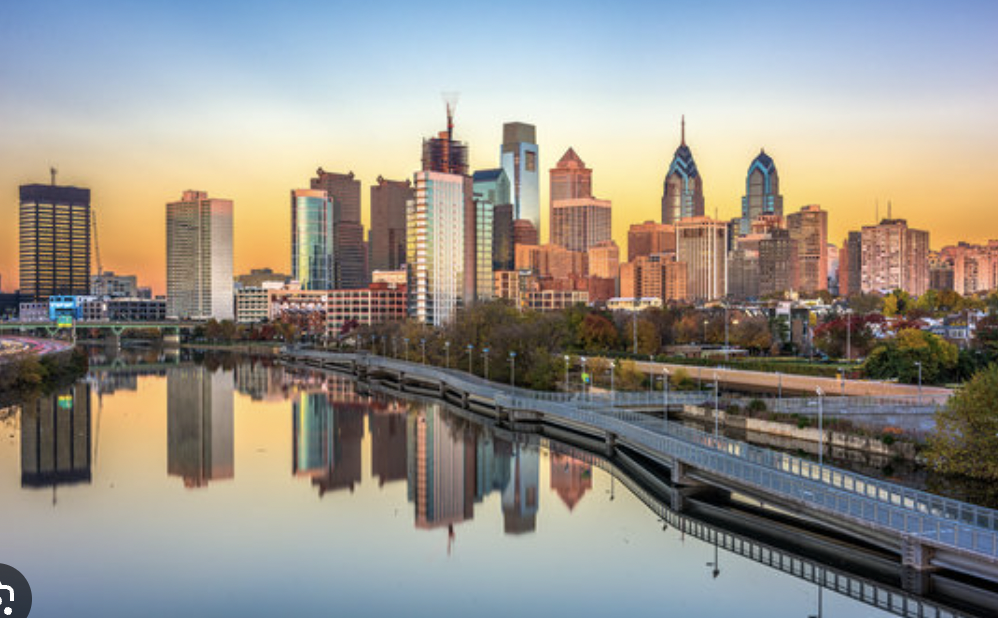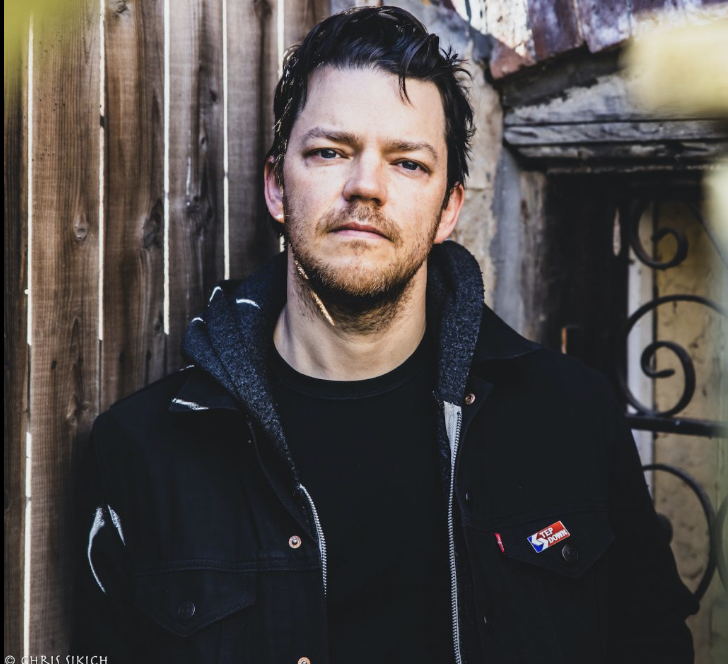Interview with Joe Clayton of Pijn
Pijn (pronounced Pine) are an experimental metal project hailing from Manchester, United Kingdom. With an eclectic background of members that includes hardcore, traditional metal, new wave, and influences that combine The Mars Volta, Godspeed You Black Emperor!, and Converge, coupled with a Manchester melancholy, the band is a fresh take on what metal could be. House Vulture was fortunate enough to sit down with founding member and guitarist, Joe Clayton to talk through the bands beginnings and where they are headed next. This was also the first interview I ever gave where I was asked a question by the artist, which I must admit, was pretty special.
Pijn is from Manchester, England. How do you think Manchester has permeated your sound?
The thing people always bring up is Joy Division, New Order, The Smiths, and Oasis, because that’s what everyone associates with the city. And yeah, those are formative bands—great for getting people into guitar-based music. But I feel like for a lot of people they can be both the entry point and the end point.
There’s a big indie scene that’s heavily influenced by The Smiths, but for me, while I enjoyed those bands, I never thought, I want to make music like that. It just didn’t speak to me that way.
There have always been UK bands, though, that I found really inspirational. If we look at Manchester itself, one of my favorite bands was Beecher. They were absolutely amazing. They went to the States to record with Kurt Ballou, got signed to Earache, and played all these incredible shows with bands like Dillinger Escape Plan. Looking back now, it’s wild. Most of them aren’t making music anymore, but one of the guys has gone fully into the kind of metal he loves. He ignored the pressure of having been in a cult-followed band and just did his own thing, which I find really inspiring. I’ve worked with him a lot, and I’m actually working with him again this weekend.
The way that kind of stuff influenced us was more of a long process. A lot of us in Pijn used to play in heavier hardcore or metal bands before moving into something gentler. Back then, we wanted to sound like Beecher, or like Architects in their early days. Then I got introduced to Russian Circles, which opened up a whole new world.
While I was at university in Sheffield, there was also a really strong metal and progressive metal scene. Bands like The Miramar Disaster were hugely influential for me. They sounded like Mastodon mixed with Neurosis—absolutely incredible. And the fact that these were friends and peers of mine doing it made me think, just go for it.
In the UK, we sometimes fall into the trap of being overawed by American bands, because it’s so much easier for them to tour here. You end up seeing them more often than UK bands, so they feel bigger by comparison. But having a few bands in our own scene doing groundbreaking things gave me the confidence to think, yeah, I want to do that too.
You talk about Manchester, and bring up all those bands—Oasis, The Smiths, etc. On your Bandcamp, you’ve got a quote: “positivity entwined with profound melancholy.” A lot of those Manchester bands have this melancholic quality, I’m curious—what that phrase means to you? Does Manchester itself bring a certain kind of melancholy, or is it something more personal?
Yeah, that’s a good question. I mean, especially in the north of England, there’s definitely a kind of dour attitude. It’s that sense of, “everything’s a bit shit, but you just grin and bear it.” And you can feel that in bands like The Smiths. The songs are heartfelt and sad, but the melodies are often upbeat. That contrast really works.
For us, I think it’s less about the city itself and more about personal circumstances. That Bandcamp line came from us trying to capture what the record felt like while we were making it. It was this uphill battle—trying to feel good when you actually feel awful.
There’s a lot of that in UK music in general, I think. It’s not just wallowing in sadness—it’s about pushing through it, trying to climb out of it. And that’s what we’re aiming for as well: acknowledging the heaviness, but also searching for something hopeful in it.
Pijn offers a lot of emotion and passion in the music. Is there a certain moment in your past where you found your passion for music and discovered you were going to make music full time?
I don’t know if there was one single moment, but I’d say it really started at school, around sixteen. That was when I first took a real interest in playing an instrument. I’d had some classical training as a kid—woodwind, orchestral stuff—but I never really felt drawn to it. It wasn’t until my teenage years, discovering bands and new sounds, that I thought, “Maybe I’ll just pick up a cheap bass and start learning as many Rage Against the Machine songs as I can.”
At first, it was just something to do, but when I went off to university, things really began to shift. I ended up in one of those American-style shared rooms, and before moving in, the unit paired me with this random guy. We were chatting beforehand, and I was saying how much I loved Metallica, and he goes, “Well, have you heard of Converge?” I hadn’t. He sent me Jane Doe, and my first thought was, “This guy’s insane—we’re never going to get along.” But it didn’t take long before I was completely converted.
Then, just two doors down from me, there was this guy who happened to be the original bassist for Architects—the one who played on their first record, the really technical one. Seeing how good he was lit a fire under me. I thought, “Right, I need to get my chops up. I want to learn how to play some of these songs he’s written.” He was miles ahead of me—he’d not only written and recorded music, but also taught and performed extensively. That kind of proximity was huge for me, because it pushed me to want to take myself seriously as a musician.
At the same time, he and a few others who’d come up from Brighton were putting me onto all these bands they’d discovered over the last few years. Suddenly, I had this whole new world of music in front of me, and it all just clicked. That was when I realized—I wanted to be in a band. I needed to be in a band. And from there, honestly, it’s been one poor decision after another [laughs].
Is that kind of how Pijn came together? Was that the starting point?
In a way, yeah. Pijn actually started out as just a two-piece—me and my old drummer. We’d gone down to London to visit a friend, and on this long drive we were listening to the first Mars Volta record. We just thought, “This is so good—we need to do something in this vein.” He’d been traveling for a while, I’d come back from some personal stuff, and any projects I’d had before fizzled out. I’d been in a hardcore band a few years earlier that had just fallen apart, so I was really craving something new—an outlet, something I could pour myself into.
On that drive, we were listening to Mars Volta, Godspeed You! Black Emperor, and other records in that space, and it sparked the idea: let’s try something proggy, obtuse, weird—sort of post-rock, but our own take on it. We weren’t entirely sure what it was going to be, but we had access to a studio space, so we just said, “Let’s get in there and see what happens.”
Once we started, it became this process of channeling everything—emotions, experiences, frustrations—into the music. And because it wasn’t like the hardcore or metal bands we’d been in before, it took more work. It wasn’t straightforward riff-writing or verse-chorus-verse stuff. It forced us to think differently, to figure out how to actually do it. That challenge, I think, is what made it exciting, and what eventually grew into Pijn.
You talked about being in these hardcore bands and then kind of shifting into the sound that Pijn has now. But I sometimes find that bands like Pijn and Bossk, can parallel any true metal record. if you put on Desperately Held or From Low Beams of Hope, it just sounds and feels so heavy. With that said, how do you approach writing together as a group?
I think, looking at bands that hit heavy—I love all that stuff. Every now and then, I still think, “I just want to do a nice, easy, really heavy band. There’s a lot of merit in that. There’s a lot of creative stuff, really cool things. But I had more of a connection when I was with bands like that—I saw Godspeed, Russian Circles, Red Sparrows…
Oh, Red Sparrows?
All those… sorry, I didn’t mean to interrupt, but you hit the trifecta of fans I love. I’m so obsessive about Hydrahead and that whole scene… Old Man Gloom… it just hits a different way.
Yeah, exactly. I remember—you brought up Oceanic. I can’t believe I nearly forgot them. They have all these vocals where you can kind of tell what Aaron Turner is shouting, but not really. And I don’t think, at least in the vinyl release I had, there was a lyric insert. It wasn’t a thing that tells you the story. You just have to feel it.
Yeah, exactly. Like from that album Weight—the really long, slow one—they have Maria Christopher of the band 27 doing some vocals as well, and you can’t really tell what she’s saying, but it’s something. And then you get invested. I remember me and this guy from Brighton trying to do a deep dive to find out what the album (Oceanic) was about. It was this weird story of incest and people drowning, this massive thing that I didn’t really get. I attached my own interpretation to it. And I really enjoyed that—having to work at it a bit more.
Yeah. I kind of kick myself because I would really look to a straight-up heavy band. But I just think the way I’m wired; I always want that sense of discovery—the sense of discovery I had with some of those albums.
I wanted to ask about Desperately Held and From Low Beams of Hope. Those EPs feel connected. Desperately Held is more ambient, and From Low Beams of Hope is more direct. Can you talk a little bit about how those came together? How did you get to the point where you thought, “Let’s pull some of these elements and make an ambient record to pair with the more direct one”?
Yeah. Well, initially, From Low Beams of Hope existed in a few different forms over time. The initial plan was for there to be a fifth track—which we have an old version of—and we even snuck parts of it onto a bonus release called Patience & Perspective. The original idea was a four-track album, with a final, more ambient song that took motifs from the four other tracks and created something new.
It was kind of a way to finish the album differently. Initially, the album ended with a big, heavy section, and I didn’t necessarily want it to end that way. So, the idea of an extra track with all these motifs felt like a way to complete the record. But then we ran into limitations with vinyl side length. Adding that fifth track would have pushed it to a double LP, which wasn’t ideal. So, I decided the original version of the album was finished, with that fifth song still hanging in the wings.
Later, when we revisited the album, I wanted to redo a few parts. In doing that, I felt stronger about the four main songs, and we managed to add a couple of small details that resolved the tiny issues that had been holding me back from saying, “Yeah, I can let this go.” It had been a long process—four years or so from when the first bits were written. Some tracks had been played live as early as 2010, and one in 2019. So, I’d been stuck on these songs for years. Re-recording and adding little pieces changed my perspective, and I wanted to expand on what I’d already done.
I’d never been 100% happy with the final track, Desperately Held. I basically scrapped it, tried redoing it, but didn’t like it enough to include it on the album again. So, I decided to take a different approach. By that time, the band lineup had changed quite a lot. Bringing in new influences—like someone working with keys, tape loops, and experimental sounds—shifted the perspective. One member, Tom, works on film soundtracks and ambient solo projects. He introduced me to a bunch of really interesting artists, which also helped me rediscover music I used to listen to years ago, like Alluvium.
So, it was partly about scratching an itch that had been lingering from repeatedly scrapping that track. Maybe I was approaching it the wrong way. Instead of tacking on a fifth track, we decided to rework each song and see what emerged. I had a rough structure in mind for some of them, but I also allowed it to be completely open to what happened when I sat down in the studio with Tom. We tried out a bunch of ideas, had a kind of running list of things to experiment with, and just saw what came out.
Most of it happened in the first day—just reworking the stems from the album, listening to songs I’d been working on for years in a new environment, and experimenting. It was a really collaborative process, just seeing what happened when we played with the tracks.
Earlier today, I was listening to each ambient track alongside the tracks from From Low Beams of Hope and Desperately Held, and it’s amazing to hear how they complement each other.
Yeah, it’s kind of both. It feels like both. It could be an addendum, but it also stands as its own piece. We tried to make it different enough that it would feel like its own thing, but it would still have this tie to the original song, I suppose.
One thing I was obsessed with for a while was that there were two versions of Marching to the Heartbeats by Cult of Luna. There’s the version on the album, and then there’s a piano version they put online for a brief period before taking it down. A couple of weeks ago, someone reminded me of it, and I was like, “Oh my God, I haven’t thought about that in ages.” That stuff, for me as a fan, really makes me want to engage with the rest of the creative process.
When a band gives you two versions of something, it’s not just a different mix—it’s a whole different perspective on the same piece of music. And I really love that. That’s something we want to continue doing.
You talk about Metallica, the Red Hot Chili Peppers… these bands always feel on brand, right? But then Flea, the bass player in the Chili Peppers, is always doing these side projects. Completely different from what the band does. Or Nine Inch Nails, when they put out Ghosts.
There’s something inspiring about seeing musicians, artists, entertainers’ step outside their comfort zone—take something, dismantle it, rebuild it differently, try something completely new.
Yeah, we were sort of influenced by Mars Volta, too.
Flea totally did. I think it was their first record. I remember reading about how they changed their recording process completely—an insane approach. That stuff is really inspiring. Anyone doing something wildly different like that… that’s how you get the creative sparks firing.
I don’t think I’ll ever make someone record their parts to a click track with no idea what the rest of the song sounds like, like some musical genius knows all the puzzle pieces but no one else does until the album drops. I won’t go that far.
Omar Rodriguez Lopez got a similar approach, though. It’s like… a bit like Oblique Strategies. You pick a weird creative prompt to spark something. Reading about a band doing something unusual is a good way to trigger ideas. And it doesn’t have to be good. It just has to exist—put out there into the universe.
Pijn has a very distinct visual aesthetic, the cover art on your records is very angular. Pictures framed in sharp ways, looking through doorways or through some small section of space. Some feel deliberately restricted. Are those choices intentional, or is there a story behind them?
Yeah, no, it’s cool you picked up on that because it really is a big part of it. The artwork is always a huge thing, but it’s also something I personally struggle with whenever it comes time to sort it out. I’ll have ideas but making them happen visually is a whole different skill set. I usually have to lean on other people who are more fluent in that visual language.
Like, with the first EP—I loved that cover. It was a picture taken by my old housemate. There was a really important event that had happened in our lives, something that deeply affected us all, and I wanted to make sure she was included in the project. The photo itself had this weird play of light that resonated with a personal experience I’d had—something disorienting, almost absent, like being unmoored from reality. It felt so representative of where I was personally at the time, so it made sense for the EP.
Then with the first album, it became more about color. We had specific palettes in mind and wanted to draw things together that way. We opened things up to contributions—words, photos, sounds—from people we knew, people who had experienced loss, people who wanted to process it in their own way. We invited creative submissions of any kind and then sifted through everything to figure out how to include them. Some became text, some became voice samples. At one point someone even sent us a full-on noise track—just screaming layered over feedback and distortion—and I ended up chopping that up and weaving it into a song. That whole approach was inspiring, but also really heavy. Sitting through endless recordings of people talking about bereavement and trying to decide what to use—that was tough. Honestly, I don’t think I’d do it again, and I wouldn’t recommend it. It took a toll.
Visually, though, I knew I needed help. I leaned on friends who could provide stronger images and a clearer visual direction, because I was just too immersed in the other parts of the project.
The new album cover is funny, because that picture was never meant to be the final artwork. It started as just a placeholder—something that had the kind of lighting I wanted. I’d been obsessed with this orange-yellow light for years, specifically the glow you get from low-pressure sodium bulbs. They emit light in such a narrow frequency that it completely changes how you see everything. There’s no real color variation—just that yellow bleeding into black. People’s skin tones shift, depth perception changes—it alters your whole perspective. I loved that concept of changing how reality looks and wanted to find a way to bring it into both the stage show and the album art.
At one point we actually hauled a generator out to an abandoned building, set up these sodium lights, and tried to shoot photos. Local kids showed up on bikes and started throwing rocks at the bulbs, asking us what the hell we were doing. It was a chaotic scene. And while I really liked the pictures that came from it, in the end they felt too melodramatic for the record.
The final image actually came from something far simpler. It was just a photo taken outside one of the rooms in my parents’ house. My girlfriend Gemma had found it online somewhere—it had this perfect yellow light spilling out of a doorway, and I thought, That’s it. That’s the feeling. It tied in with everything we were trying to do as a band—using light to literally change how you see the world, mirroring how we were trying to shift our own perspectives personally.
So, I sent it to the designer and said, Something like this—we just need to find a location and recreate it. But then we hit the usual walls: no money, no resources, and I just thought, This is getting ridiculous. The designer finally said, Why not just use this picture? And if everyone else was happy, I wasn’t going to fight it.
As for the colors, the blue on Desperately Held came directly from looking at the color wheel. We wanted something complementary to the yellow of A Hymn of Hope. It was as simple as that—using opposites to tie the two records together.
I love the collaborations you did with Bossk and with Conjurer on Curse These Metal Hands, can you talk about that record, and do you find that collaborations kick off a different creative spark?
Yeah, it does. I really enjoy doing those kinds of projects. With Bossk, we did that one, then we did another with a Russian band on the same label called Anti-Think. Of course, there was the full collaboration with Conjurer. And there have been plenty of other ideas floated around since then, but honestly, the logistics are where it usually falls apart. It’s kind of horrible, actually, trying to get everything lined up.
But when it does happen, those collaborations are really inspiring. You’re forced to either look at your own instrument in a completely new way, or you’re working with new people and adapting to that. Even though I’ve been really good friends with the guys in Conjurer for—what—eight, nine years now, maybe longer, it’s still very different when you actually get in a room and try to make something new together.
You’re used to your own dynamic within your band, right? You know how everyone moves and reacts. Then you add in two or three other people, and suddenly it’s like, “What the hell is this now?” It makes you second-guess yourself. I’ll sit there thinking, I don’t even feel confident in anything I’m doing anymore—I feel like I’ve forgotten how to play guitar. Especially because Dan Nightingale from Conjurer is, hands down, one of the best guitarists I’ve ever seen. And then it’s just me like, “Well, I guess I’ll put on this fancy pedal and do basically nothing.”
But that’s the good part too—it forces you to change things up.
We haven’t done it as much recently, and I think that’s why I’ve been kind of longing for that sort of thing again. I also just haven’t written music in a little while, so the itch is there. But back when we were doing the bulk of those collaborations, we were knocking them out in fairly quick succession, one after the other. And once you get into that rhythm, you’re flexing that creative muscle constantly. Even though each collab is totally different—different people, different sounds—you’re sort of always ready to go. You know what’s happening, and you trust that something will click.
Now, though, I think it would take me a little while to get back into it. I’d feel more inert, a little out of practice.
I think that’s amazing. I’m with you, I like physical media. So, I gravitate toward those things because, for me, it’s always been about the full package. Especially with bands like the ones you mentioned—Pijn, Bossk—I feel like they take all of that into consideration. It’s not just the music, it’s all these other aspects, the tangible and intangible. You’re telling a story through the whole thing. And I think that’s important because I haven’t gotten lyrics from you guys—you have another way to tell that story. It provides another avenue to think about what you’re doing, and not just your story, but how I can project my own meaning onto it too.
Yeah. Cool. Thank you. Do you mind me asking—what do you think the albums are about? Like, what do they mean to you?
So, with Pijn when I sit and listen, it’s different. A lot of times I’ll put on headphones, sit in a dark room, just lay on the couch for an hour and let the whole record play. And your music—it really pulled me back in time.
My mother passed away when I was really little. And for whatever reason, when I was listening—to From Low Beams of Hope—it brought me back to that time. I don’t even know why. Maybe it was the swells in the music, the heaviness that shifts into something ambient and orchestral. It just carried me there.
And I made a note to myself because, honestly, I can only think of a handful of times where a saxophone works in a metal song. Soundgarden had one. There’s that Rivers of Nihil track. The Stooges used sax back in 1970. And then with Pijn—I can’t remember the exact track, they all kind of blend together for me—but the way you used saxophone, it wasn’t forced. It felt natural. It just blended in, subtle but present, and it worked.
That whole record really resonated with me. It brought me back to that place and time. And I think that’s why I gravitated toward it. Not that I don’t love the other records—but From Low Beams of Hope, that one hit me differently. When I listen to Desperately Held, there isn’t a “theme” exactly, but it’s more like a feeling. That’s what I get from it.
And when I talk about feelings and emotions, what I mean is—listening to that music brought me back to the feeling I had when I lost my mother. And then the time after that, not hopelessness exactly, but just searching for a place to land, somewhere to feel comfortable again afterward.
Yeah. That’s exactly it. That’s what we were channeling. For me, it wasn’t my mother, but it was a partner. That kind of bereavement, that kind of magnitude—it’s embedded in everything we do as a band.
When we did Loss, I was actively channeling a lot of that grief. But with the next record, it became more retrospective. Looking back at those feelings, revisiting them from a new angle. The grief is always there, but you can reframe it. You can find moments of positivity in it—like happy memories intertwined with tragedy. It’s deeply upsetting, but if you try, you can shift how you see it. That was the feeling behind the last album—reframing grief through a more positive light.
That makes so much sense. And it definitely connected with me that way. It’s funny you say that, because grief has all these knee-jerk reactions. You look back later and think, What the fuck was I doing? What was I thinking? But that’s part of the process. And when you come out the other side—when you can look back from that new angle—you realize there’s positivity in it too. You’re still feeling it, but you’ve accepted it. You’ve purged a lot of that, and now you can sit with it.
Yeah. That’s great. The messy period, you know? And then kind of just moving through it—it’s not really moving on. It’s more like finding a way to keep going.
I think that’s one of the things I gravitated toward. it just felt very organic. When I think of waves in the ocean, that’s exactly what it’s like—you have this feeling, it swells, it climbs to a kind of climax, and then it naturally comes back down. I just connected with it.
That’s amazing. I’m really glad it connected with you. I feel like what you’re describing—the process you were going through, the way you connected with it—is probably universal. It’s not just you.
What’s next for Pijn?
So, we did quite a bit of touring last year. This year, it’s been more about finding balance. We’re all aware that this will never be a full-time occupation, so it’s about fitting it in sustainably.
We’ve got a short tour around the UK at the end of the year, and a one-off festival in China—which is pretty nuts. We saw a poster on our website the other day. We had no idea it was all confirmed until the visas came through. Then suddenly it was out there. It’s really exciting.
Basically, we’re trying to set a plan for a tour early next year and actively breathe between projects. I definitely put a lot of pressure on myself to keep doing things because in this day and age, if you’re not on TikTok or whatever, people forget about you. Our stuff doesn’t lend itself to that—it’s a slow burn genre.
So, we wanted to take a bit of time to figure out what we want to do next. It’s not about stopping—we’ll see each other more, write more—but without trying to squeeze in a ton of shows. We’ve been doing bits and pieces of writing, but opportunities keep popping up, like the festival in China. It’s amazing, but it takes time, so we can’t dedicate as much to writing as we’d like.
Interview with Mike Lewis of For Love Not Lisa and TenKiller
If anyone were to ask a person of a certain age and musical taste what the coolest movie soundtrack ever in the history of the world was, I would bet money that they would say The Crow Soundtrack. Mike Lewis wrote one of the most underrated songs on that record, “Slip Slide Melting” as part of one of the most underrated bands of that era in For Love Not Lisa. House Vulture had the pleasure of speaking with Mike in an eye opening interview about that time period, his other project, Puller, and the freedom surrounding his newest project, the superb Tenkiller.
You are originally from Oklahoma, can you talk about growing up in Oklahoma City and how it has become a part of your music?
Oklahoma is known for figures like Will Rogers and a lot of country artists, but none of them live there anymore. I lived in a little town outside Oklahoma City, which had this “white flight” vibe. So, of course, I became a punk rock kid because of it—fighting against the man and all. Oklahoma had a really interesting music scene. The Flaming Lips were regarded as the stars of Oklahoma. We all listened to their albums in high school, and they were the only signed band we knew of. From them, many other bands grew up in that culture. There was a band called the Chainsaw Kittens that was on Mammoth Records and made a record with Butch Vig. Two members of that band later became part of For Love Not Lisa.
There was a lot of alternative rock beneath the Flaming Lips, which set the tone for our influences. My influences are kind of strange because I grew up in the church and around youth group kids. On one hand, I was listening to Minor Threat and the Sex Pistols, but on the other hand, I was into the Altar Boys and choir music—Christian rock approved by my parents. All that shaped who we are. I don’t know how that translated into the music, but those are definitely themes from my upbringing.
It was a mix of angry angst rock combined with this weird rebel Jesus narrative. It doesn’t all work or match. My father was a police officer, and my mother was a teacher, so I didn’t get away with much. You can see where my rebellious spirit came from! Eventually, like all things, we had this saying: if you want to be a deep-sea fisherman, you have to leave the shore to fish. We knew that being a real band that was actually going to get a record deal couldn't happen in Oklahoma. The Flaming Lips were the exception. We just didn’t think we could make it that way, so we left Oklahoma and moved to Hermosa Beach, California.
Can talk a little bit about For Love Not Lisa. You went on tour with some bigger-name groups in the 90s.
Yeah, I’d say a couple of things. We had a running joke in our band that if you wanted to become famous, you just had to play with us. We played with everyone. We opened for the Stone Temple Pilots in Santa Monica when they were just starting out—and they blew up. We did some shows with No Doubt in Chicago, before they had a record deal, and they also exploded. Literally, we did two or three shows with Rage Against the Machine right after they came out, and there were only like 50 people at our show. Then they blew up, and we did a string of dates with Green Day during the Dookie album, and then they blew up too. So that was our joke: if you wanted to become famous, just play with For Love Not Lisa, and then you’d make it.
But I’d say that making music is already hard, right? There’s so much saturation in the industry. Everyone’s fighting for airtime and tours, just as they are now. The only thing that could make that worse was either having a drug problem, which we did not have, or making really poor decisions. We basically died at our own hands.
There’s probably a book or a documentary about how a band can screw up their career—more about overthinking and having big ideas. We did it all; we screwed up in almost every way possible. Take an industry that’s already hard to break into, and then complicate it with poor decisions and stupidity. Yeah, we successfully killed our own career.
Interesting. But honestly, none of that shows when I listen to Merge. It’s such a great record.
Well, let me back up a little bit—Information Super Driveway is actually my favorite album out of everything we did. After Merge, we toured a lot, and during that process, you’re kind of writing on the road. As a musician, you always want to bring something new—fans want new songs, and honestly, you get tired of the old ones.
What’s funny is, when we toured, we never played “Slip Slide Melting” live. Crazy, right? That was another way we kind of shot ourselves in the foot. There were these super-dedicated “Crow kids”—hardcore fans who would come out just to hear that song—and we didn’t play it. The truth is, it was tough to perform. Playing it live was really taxing on me since I had to handle both guitar and vocals. Eventually, I just grew to hate playing it.
But looking back, that was stupid. It’s like when a big band refuses to play the one song everyone knows them for. I wouldn’t call it a “hit,” but it was the track people associated with us. Not playing it felt like a slap in the face to the fans.
Anyway, Information Super Driveway marked a big shift for us. We moved away from the loose, jammy, kind of ethereal stuff into tighter, heavier, math-rock-inspired rhythms. At the time, we were listening to bands like Quicksand, Helmet, and Orange 9mm—those heavier, mathy rock sounds.
That’s also when we worked with Stephen Haigler, who had produced Quicksand’s album, plus records by the Pixies and a ton of other great bands. He’s an incredible producer, and working with him was an awesome experience—the complete opposite of making Merge.
Even shared space with Snoop Dogg and Warren G—played basketball with them at night. But by then, we’d burned through label goodwill. They barely supported us, and we had to fund our own video.
The turning point came in Salt Lake City. We showed up, the owner told us zero tickets had sold, handed us our guarantee, and said, “We’re not even opening the bar tonight.” That was it for me. I was done. We broke up, and I moved back to Oklahoma to start Puller.
Do you think it’s easier now to get your music out there because of how the industry has evolved?
With Spotify and streaming, the pressure has lifted a bit. You can do whatever you want, but you also have to do everything yourself — write, produce, promote.
That’s a double-edged sword. It’s still a business. I’ve owned small businesses with my wife, so I know what it takes. It’s authentic, but it’s not always profitable. Getting music out is easier now — my first CD was crazy expensive, and I had to work two summers just to buy CDs for my band. Now, Spotify and digital distribution make it simple.
But what’s missing is promotion. You can release a song, but if no one hears it, what good is that? Everyone can release music now, which is great because it takes power from record labels. But it also means there’s so much music out there, it’s harder to stand out.
Labels don’t sign unknown bands anymore — they wait to see what’s trending and then sign those bands. I prefer it this way because I have full control. No label telling our producer to recut a single or change something. We’re self-funded — I pay out of pocket. I don’t care about sales, but it’d be nice to break even. Everything we do is about the next step.
Social media platforms like TikTok, Instagram, and Facebook help. When I started Instagram, I thought growing followers would be slow, but now we’re close to 6,000 in a year. There’s no viral button, and I’m not a “hot” guy, so my content isn’t going viral, but it’s in my control. We’re connecting with people who like Americana, old country, and rock.
Back in the day, I didn’t know who my fans were or how to reach them. I wasn’t in charge of promoting tours. Now, I can tell people directly about shows and tours. We’re doing a tour of record stores soon — two shows a day, free shows, no barriers. I love that.
It’s like laser-focused marketing: the people who like you find you, and you can communicate with them directly. Bands never owned their audiences before. Maybe some had mailing lists, but that was tough to keep up with. Now, the power is in my hands. I can work as hard or as little as I want.
Sure, sometimes I wish a label would pay for PR or promotion. That sounds great, but then they own your music. I get to keep mine, and the only people I have to please are my bandmates and partner. We have a whole second album written, and we decide if it’s an EP or singles — no label deadlines or rules.
Do you guys ever play anything outside of Tenkiller? You mentioned cover songs—do you ever revisit Puller or For Love Not Lisa in a different way, or is it just moving forward and leaving that behind?
Honestly, I’m done with that. There’s a big ’90s resurgence, and I even talked to a big manager who suggested, “Mike, have you thought about putting Puller or For Love Not Lisa back together? You could package those bands and do a reunion.” But I’m done. I don’t want to be the ’90s rock guy reliving the past, especially since we were never huge anyway.
I mean, yeah, millions of people listened to our music on The Crow soundtrack, but that doesn’t mean they’re fans who’d come see a show. I’ve completely walked away from all that. That was fun, but now it’s about looking forward. This is what I’m doing until it’s done.
(Since we last talked with Mike Lewis, For Love Not Lisa recorded a new version of “Slip Slide Melting” available on Spotify and embedded here)
That’s interesting because I came to you guys through the Crow soundtrack. I got into your music and then bought the Merge record and went through your catalog. The Crow soundtrack was huge—probably one of the top five soundtracks ever. How did that happen?
It’s still going! I mean, it’s amazing. I have a double platinum album on my wall, and it’s already gone triple platinum.
So here’s the thing: that first album has usually been written over four or five years. From the time you start as a garage band, the songs come from different eras, and by the time you record it, some of those songs aren’t necessarily who you are anymore. You've started to morph and change as you tour and play shows, figuring out your identity. We had a real loss of identity—we were writing 13-minute-long songs that had no chance of ever being on the radio.
I mean, Tool can do that, but we were fans of The Cure, and I liked those long, huge intros. So we ended up with a lot of songs that were way too long. During the time we were making decisions as kids from Oklahoma, we picked a producer who later became amazing. I have to say that because I’ve been accused of knocking him, which I’m not—he went on to produce big records and was awesome, just not with ours.
But we were starstruck by him. He was in the band with Perry Farrell from Porno for Pyros, and when we started recording, it was super hard. We recorded it at Crystal Studios in Los Angeles, where artists like Michael Jackson and many Motown bands recorded. They had a one-of-a-kind board—only one engineer knew how to work it. From the beginning, everything about this album was complicated.
Two weeks before recording, we fired our drummer and had to bring in a friend, Aaron Preston from Oklahoma, who had to learn all the songs in two weeks. There was no time to gel as a band. Midway through the album, we replaced our bass player. So, that album was six or seven weeks of torture, and many times it felt overwhelming.
When you listen to that album, there are a couple of good songs, but I think it’s lost in production. It’s hard to listen to because it feels like a band that tried too hard, and a lot of the songs weren’t reflective of who we were anymore. Through that process, we ended up with a totally different sound.
I’ll even add this story: the label gave us an art director to design the album, and I wasn’t happy with what he was doing. So, I said I would design it myself. I had no design experience, but I bought a $10,000 Apple computer—very expensive at the time—and figured it out. We found an incredible photographer who did some very provocative art. Pantera later used one of his artworks for their album cover.
We picked a provocative photo for our album—Perry Farrell had also used a striking photo for theirs. We made an image that couldn’t be shown without being darkened. It was a double image of a woman touching herself over a pig placenta. It lost a lot in the album art, so that was another misstep we made.
Then, Silvia Roan, the head of the label, called and said, “Put my band on ‘The Crow’ soundtrack.” So, that’s how we ended up there. We were probably the least famous band on it, and at the time, I didn’t know much about the comic. Once we saw the trailer for the movie, we realized its potential and how dark and cool it was.
We quickly made a music video for the movie, cutting the song down to fit it into the format for MTV. We were lucky to use footage from the film. We spent so much time on that video that by the time it came out, the interest from “The Crow” had waned, and we did not get the airplay we could have if we had acted faster.
Puller had a good run too. And now you’ve got Tenkiller, which has a different sound—punk roots but with country and Americana touches.
After Puller, I was broke, divorced, homeless. My car got repossessed. I put my guitar away and went into business to survive. For years, I didn’t play at all—still loved music, but I was burned out. I’ve always had wide tastes—punk, metal, singer-songwriters like Ryan Adams, Americana. Over time, Tenkiller just grew naturally from that mix.
So, I was in the business field, and I’ve been listening to music the whole time. I was always on the music business side, then I moved into the outdoor space, doing marketing — that’s what I do for a living. Eventually, my mom passed away last year.
And suddenly, I’m hearing songs again. I have this theory that when you’re younger, you have all this angst, anger, and pain, right? But as you get older, get married, and find happiness, that angst and anger kind of fades. So I’d ask myself, what do I write about now? Little League soccer? What do I sing about?
When my mom died, it brought the hurt back into my heart, and I started hearing songs again. So I called my friend Clint (McBay)— he played bass in For Love Not Lisa. He was the go-to guy whenever I needed someone to tour with. We’ve stayed friends all these years, and now he’s also a guitar player. I said, let’s write some music together, and he just jumped in.
One of my regrets is that my poor mom had to come to all those heavy punk and metal shows I played in. She hated the music, but she never said it. She was sweet and supportive — a little schoolteacher lady — but I just knew it was rough for her. She’d come to a show where I’d be screaming, the crowd’s moshing, and that was her experience supporting me.
Now, in my “old age,” I listen to a lot of singer-songwriters, people like Tyler Childers, really into the new Americana and country scene — all these cool artists. I thought if I ever did music again, I wanted it to be completely different from my past. No more alternative rock or heavy music. I wanted a totally different direction.
Before, when we wrote songs, we were constantly editing ourselves. If something sounded too poppy, we’d make it dissonant, heavy, and chunky. If a melody popped up, we’d run the other way — back to Fugazi or something. So we never wrote catchy songs on purpose, because we were trying to fit a certain scene.
Now, with this new project, I’m writing everything. We’re writing Southern rock, some twangy, bluegrassy stuff — there’s even a track on the new album that’s a full-on old-school bluegrass song, and I’m playing mandolin. This time, I wanted no rules. No pressure to fit a genre or sound a certain way. If it’s a good song and we like it, it’s in.
Sometimes, I’m playing acoustic guitar, then we finish the set with my old Gibson Les Paul and heavier songs. I’m just having a great time. This music is very different from everything I’ve done before. With For Love Not Lisa and Puller, we had to be booked in very specific places for very specific crowds and tours.
With this band, Tenkiller, we can walk into a bar in downtown Nashville or a brewery, and people of all ages and tastes dig it — heavier songs, softer songs. It’s got a wider appeal, more melodic, and every song so far has had three-part harmonies, which never would have happened before. I’m just leaning into it, having fun, and I think this is the best music I’ve ever written.
Sometimes I think about how I had to start over — relearn guitar and singing after 20-plus years off. I remember having a publishing deal and a record deal, and I wasted a lot of that stuff. But now, it really comes in handy.
The newest Tenkiller record “Burn the Boats” came out August 1st? And you have a whole second album written already?
Yeah, it’s been funny because in the past I thought way too big and planned too far ahead. This time, I’m focused on small, achievable goals — check one off, then move on.
Last year, the goal was just to write songs and play live. At our first shows, we played three originals and a bunch of covers. We didn’t even know what kind of band we were — Travis Tritt, The Clash covers, all over the place.
But I promised myself and the band I wouldn’t waste their time or make them play to empty rooms. Everyone’s got families, kids, and three of our guys have special needs kids. Sometimes their families come to the shows — it’s a real family vibe, which would’ve been taboo back in the day.
So we set short goals. I wanted to play a local copy shop owned by a country singer — check. Played an outdoor festival at Jack Daniels — check. Wanted to make a Christmas song — check. The plan is to keep moving forward, one step at a time.
And I want to say, we’re just making these little goals as we go along. The big goal has always been to make an album—my first album back. What we’re doing now, is a waterfall schedule: releasing a new song every six weeks until we put the whole album out. So after six singles released over six weeks, it’s time for the album release.
That’s been the goal—put out an album. In my whole career, back in the ’90s, vinyl wasn’t cool. CDs were ruling, and cassettes were gone. So I never had a final album on vinyl. This vinyl resurgence means this is my first vinyl album, and that was a huge goal for me. We could release digitally or whatever, but I wanted a final album—a physical record that goes into a record store.
We actually spent more time on the vinyl packaging than anything else. Some people don’t buy records at all, but I wanted to make something for collectors. We spent way too much money on it. It has all these extras. We hired this guy, Tyler Hackett, a woodcut poster artist from Utah. He created the album cover and a limited-edition woodblock-printed poster that comes with the album. We made this for collectors, for someone to really care about it.
Even the vinyl colors are special: the first run is one splatter color, so the next run will be a different color. So someday when I’m gone, if anyone cares, they can say, “Do you have the blue one or the red one?” We made this as art for a very specific collector. It might be a small group, but it was worth it.
I’m excited because I never had a final album before. It might sound silly, but it’s not. The vinyl and even cassettes are making a comeback, which is wild. People still listen to CDs, too. The biggest controversy was when we opened pre-orders a couple weeks ago and got comments like, “No CD version? What?!” I didn’t think people still cared about CDs. I have some, but mostly for show.
We ended up adding a CD version and had to redo some of the artwork to fit the CD format. It was a surprise to me that people still want CDs. It’s crazy but cool.
Whats next for you and Tenkiller?
Yeah, we’re doing record store runs. I don’t know exactly where yet, but multiple record stores reached out to us, which was surprising. I thought we’d just put the album in a few local stores, but lots of stores want to carry it.
Honestly, I don’t know if we made enough copies. When we made it, I thought these might just sit in my garage forever. So it’s a weird twist that stores want to carry it.
My new theory is, instead of trying to play clubs and convince people to pay $15 and show up, I’m just going to play record stores. If we can do two shows a day, early enough, people can still go out later. I’d rather sell albums and play shows than chase club guarantees.
Interview with Donita Sparks of L7
If you are a fan of L7, like I am, you know exactly where you were when you first heard them. For me, it was in high school, in my friends basement, with various substances involved and One More Thing blasting on cassette. Or, the near perfect scene in Natural Born Killers where Mickey and Mallory Knox beat the shit out of some local cowboys in a bar with Shitlist cranked. Or the video for Pretend We’re Dead in heavy rotation on MTV, when it was actually watchable. Doesn’t matter where you were, L7 is the epitome of punk, with Donita Sparks as the engine. House Vulture was able to spend some time talking with Donita Sparks with topics ranging from that violent scene in Natural Born Killers, to her love of the Ramones and Suicidal Tendencies, to the upcoming 40th anniversary shows in LA.
What was the transition like from growing up in a Midwest town to moving to L.A. How did that shift influence your path, especially in terms of meeting L7 and how the band came together?
Well, I grew up in a suburb of Chicago, but I was very connected to the city. My parents worked downtown, I worked downtown—I was a foot messenger after I graduated high school, just trying to save up money to move to L.A.
I used to go into the city all the time, whether it was for concerts or to go dancing at clubs. So even though I was technically a suburbanite, I strongly identified with being from Chicago.
That said, I really didn’t like the weather in Chicago. I had these big, kind of vague aspirations—just a general desire to do something in the arts. I didn’t want to go to college like my parents hoped I would, so I thought, Okay, the best thing to do is just move.
I was really drawn to the fantasy of living in Los Angeles—and honestly, a lot of that fantasy turned out to be true. So, I chose L.A., and I’m really glad I did.
I know you were involved in the LA punk scene, but how did you meet Suzi Gardner and Jennifer Finch to form L7
Suzi and I, at different times, worked at L.A. Weekly, which was kind of like the Village Voice of L.A. We were more in the art-punk scene, I would say. We knew a lot of people—writers, artists, musicians—just a very creative circle.
It was actually a really cool place to work because it truly was a cultural hub, and there aren't many of those in L.A. You're usually either in the film and TV world—that's a whole community of its own—or you're in the music scene. But at L.A. Weekly, we got exposure to a mix of all of that.
Suzi and I were each in different bands at the time, but she had a tape with a couple songs she was working on, and I really loved them. So we decided to start a band together.
It took a while to find the right people. We went through quite a few other members before eventually connecting with Jennifer—and later on, Dee (Plakas) joined us on drums.
I had the Smell the Magic T-shirt, and I was the only one at my school who had it. I wore it all the time, and no one really got the joke... until the Latin teacher kicked me out and made me turn it inside out.
I’ve always considered L7 to be a punk band. You came up during that early ’90s sea change in music. I wanted to ask about that moment in time—what was it like to come up through that shift in music? Did it feel like a natural progression in music or did you notice that the scene was changing?
Yeah, you know, coming out of the ’80s, there was definitely a polished, MTV-driven kind of vibe. Even bands that started out rough around the edges eventually got more groomed—more polished, danceable, slick. Neon colors, big hair, that whole thing. And that was fine! Nothing wrong with that.
But by the late ’80s, things were shifting. Suzi and I started in ’85, and we saw ourselves as punks doing a stripped-down metal—or hard rock—sound. No long solos or technical wizardry. We weren’t even good enough to play those kinds of solos even if we wanted to, but honestly, we didn’t like them. We didn’t care for those long-winded, winking solos. We wanted something more primal.
We were really into the slow, moshy stuff. Like, we loved Suicidal Tendencies—but especially their slower, mid-tempo grooves. Not so much the fast parts, but those dark, heavy rhythms. That’s what we were drawn to. So our early stuff definitely had that kind of vibe, and honestly, we still love that dark groove.
That’s kind of where we started from. And then as time went on, we started to open up more to our pop side. I think we’ve gone through some changes—but cool changes. I’d say we became a better band later on than we were early on. But of course, some fans would say the opposite. Who the fuck knows, right?
What I do know is that when we came out, we looked and sounded very different from what was going on in the L.A. scene at the time. We had no idea that something kind of similar was happening in Seattle and New York. But we had our own recipe—our own sound and style.
L7 founded the Rock for Choice concerts, a benefit concert supporting and raising money for abortion rights. Would you talk through the impetus behind it, and what kind of lasting impact you think it had? Do you ever see it coming back?
I don’t think we’ll bring it back—and really, anyone can if they want to. The copyright actually belongs to the Feminist Majority Foundation in L.A. We handed that over to them pretty early on.
Back in 1991, abortion rights were seriously under attack. Bush Sr. was still president—Clinton hadn’t come in yet—and it was a scary time. Clinics were being bombed. It felt like things were unraveling, and no one in the music world was really doing anything about it.
We were young women, and this issue was personal. It felt like something we could do, something that was in our wheelhouse. We had grown up going to concerts like Rock Against Racism. We’d already done benefits for Greenpeace, helped fund a schoolhouse in Nicaragua—stuff like that. So we thought: Why not a pro-choice benefit? No one else was doing it.
So that’s what we did—and it was really successful. Bands gave their time, their energy, their voices. Pretty much every major band from that era played a Rock for Choice benefit at some point.
It raised hundreds of thousands of dollars—funds that went toward legal fees for clinics, security systems, surveillance equipment, and other critical support. So yeah, I think it had a big fucking impact. We’re really proud of that. It was pretty fucking awesome.
The song Shitlist is probably in my top five favorite songs of all time. I know it's one of your more popular tracks, but I absolutely love it.
I wanted to ask you about its use in Natural Born Killers. I’m sure you’ve been asked before, but I thought it was used really powerfully. I’d love to hear your thoughts on how it was used—especially since you wrote the song.
I’d say... I don’t like violence, so I didn’t love it very much, to be honest.
But—I loved Juliette Lewis’s performance in that scene. I thought she was fucking incredible. She just owned it.
Personally, though, I’m not into violence. I’ve never even been in a physical altercation with anyone. It’s just not who I am. I’m not the kind of person to get in your face or throw down.
And I think a lot of people have this impression that L7 is like that—super aggressive, confrontational—but we’re actually not. We’re mostly peaceniks.
That said, when you write a song like Shit List, it lets you get those frustrations out. You might be furious, insulted, fed up—like you just want to scream in someone’s face. But instead of doing that, you put it in a song. That’s how you process it.
Exactly—channeling that rage into something artistic.
Totally. And I love that people love that scene. I love that it introduced so many people to L7 and to that song. So yeah, I’m totally cool with it.
It’s interesting—you talk about being a nonviolent band, but that movie (Natural Born Killers) is kind of the epitome of violence.
I know, right? It is interesting.
And it was... man, it was something we really thought about. We actually pondered whether we should even be a part of it.
We read the script, and it was like—whoa, okay. It was intense. And sometimes, when you're reading a script, it’s hard to tell: Is this a commentary on violence, or is it just violent?
Oliver Stone meant it as a commentary—on a violent society, on the way the media glorifies violent criminals. That was the intent, I think.
But still, it was violent. No matter what the message is supposed to be, it’s a very violent movie.
Reading that script, it was like, “Jeez... do we want to be involved in this?” It definitely gave us pause.
But people really dig that film. And yeah, at the end of the day, it is a commentary. It’s just... heavy.
Another one of my favorite songs is Talk Box. Can you talk a little bit about what inspired that song, or the story behind it, if there is one?
Oh, interesting! I'm glad you like that one. It doesn't get a whole lot of fanfare, but—cool, that's great to hear.
Yeah... there is a story behind it, but it's kind of dark and depressing.
I think the song itself sort of conjures up its own imagery. You can feel that when you listen to it—it paints this moody picture.
When you're writing a song, there are usually a lot of things happening at once in your head. It might be an image, or a feeling, or a moment—sometimes even something someone told you. It becomes this mix of experiences. Some things are autobiographical, some are not.
It could be something you read, something you overheard, or just a combination of weird little pieces that your brain puts together like a collage.
I like that Talk Box is evocative in that way—it lets people pull their own meaning from it.
And I also just really liked that I got to use an actual talk box on it—which is this super peculiar little gizmo. We used to play it live, too. Jennifer wants to bring it back! But honestly, it’s kind of a pain in the ass.
You have to use this rubber hose that comes out of the talk box. And while you're playing guitar, you kind of "talk" into it.
You have to strap it to the mic stand, and it looks so weird—like some medical apparatus. It looks like a tracheotomy.
Also, I’ll say this: the title Talk Box works on a few levels. There’s the guitar pedal—the literal talk box. But also, like a telephone—it’s box-shaped, and it’s where people leave messages, have conversations. It all kind of ties in.
L7 broke our collective hearts when you went on hiatus. What ultimately brought the band back together?
Yeah, totally. We went on hiatus because Suzi left the band. And at that point, the wheels had just completely fallen off.
We had no manager, no record label, no money. It was just Dee and me—and no support system at all.
We didn’t even have a full band anymore. All we really had was a website and our fans. That was it.
And we just didn’t have the energy at that point to start over again—like, find a new guitarist, new bass player, rebuild a team. We were worn out. So we decided to go on an indefinite hiatus.
I very specifically didn’t call it a breakup—because I knew if we officially broke up, there was no way in hell we’d ever reunite. I didn’t want to be that band.
So calling it a hiatus gave us an out.
Then, years later, a lot of our peers started reuniting, and we were like, "Well, if we’re ever gonna do this—if we’re gonna take some kind of victory lap—we should do it now."
Because if we waited longer, we’d be older, and it’d be harder to pull off.
So we got back together. And now we’ve been on this reunion jag for, like, ten years—which is kind of wild, but awesome.
We released Scatter the Rats, which we really liked. We’ve put out a few singles since then, too.
And I’m proud that some of that newer music still has something to say.
Like Cooler Than Mars—that song’s about billionaire assholes going into space just to stroke their egos.
And I Came Back to Bitch is basically calling out greedy Wall Street dudes trying to claim rock star status or whatever.
So, yeah, I feel like we still have something to say. And that feels good.
I think you’ve built this incredibly solid fan base, once someone becomes an L7 fan—once they get it—that’s it once it grabs you in the gut and pulls you in, there’s no going back. You become a fan for life.
Totally. Especially with bands that maybe weren’t massive, chart-topping acts. Like, I’m a Ramones fan—forever. And that loyalty runs deep, especially when the band didn’t sell billions of records.
Exactly! It’s like your loyalty almost becomes stronger because of that. Like, you know they should’ve sold millions, and because they didn’t, you feel even more connected. You’re in the fight with them.
Yeah, I think so. And don’t get me wrong—selling a lot of records doesn’t automatically mean a band sold out. I mean, the Rolling Stones sold millions, the Beatles sold millions—I don’t think of them as sellouts at all. But when you're a fan of a band that didn’t get that level of mainstream success—when you feel like they deserved so much more—it just intensifies that loyalty. Like, for me growing up, the Ramones were everything. And meanwhile, the biggest sellers at the time were bands like Journey, and I just didn’t connect with that at all.
It felt like I was fighting for the underground, you know?
Are there any current bands that you are listening to that still inspire you?
Yes, there are several bands out there that I think are incredible. Amyl and the Sniffers are one of them. She’s an amazing front person, definitely one of the best I’ve ever seen. Not too many people know about them yet, but they’re Australian and gaining some recognition.
Another band I like is Surfboard, based in LA but originally from Brooklyn. Their front person, Danny Miller, is also fantastic.
I usually discover new music by hearing a song on the radio and then buying it on iTunes. I find that old school, but I don’t trust Spotify to create playlists for me. Just because I like one artist doesn’t mean I’ll like another, you know? It tends to push me towards either similar female artists or grunge bands like L7. Just because I like L7 doesn’t mean I’ll like every band they suggest.
I’m very much a song person. If I enjoy an album on iTunes, I’ll check out some of the other songs. There’s another band I like called Wooden Ships from Portland—they have a cool, dark ambient rock sound.
In my house, I usually have NPR on all day. They have some great music programs, and occasionally I’ll hear songs that resonate with me. That’s pretty much what I listen to.
L7 are performing some 40th anniversary shows later in 2025, is there anything else coming up for L7, any tours or new music?
Yes, we have a couple of shows coming up. We're playing at Motor Blot in Chicago and a couple of other festivals—one in Orange County and another in Washington state. Then, we’ll have our fortieth anniversary bash in LA this October.
As for next year, we're planning to tour, and we’ll likely release a couple of singles this year. However, we’re not in a financial position to make a full album right now. You know how it is. Plus, Susie's living out of state, which makes things a bit more complicated.
We just returned from Miami, where we got off an amazing cruise with a fantastic lineup of bands. It was such a great experience!
Interview with Tim Perry of Ages and Ages
Tim Perry is the mastermind behind Ages and Ages, a sonic gut punch hailing from Portland, Oregon. House Vulture was able to sit down with Perry and discuss growing up in the Northwest, having his music used by Westboro Baptist Church, and 2010s clouded, and sometimes misguided, optimism.
You were originally from Seattle and moved to Portland. Can you talk about the city and how it influences your music? I'm sure being from the Pacific Northwest has some stereotypes that come along with it.
I mean, probably in ways I don't even know. I've done a lot of traveling—before music even—and had a chance to experience the rest of the country, just kind of bouncing around. And I realized, when I was about 20, that the Northwest was still the place that made the most sense to me. Which was kind of surprising, because we all have that feeling, like, “Well, there’s probably something better out there.” But I just realized, being outside of it, how much I actually liked it.
I like... there's a lot of stuff cooked into the culture of the Northwest that—even though things are changing really fast—it’s still kind of baked in.
And it’s this sense of being off the radar. Like, people aren’t really paying attention to us out here. Even when grunge had its moment, it felt like the media went, “Well, that was fun,” and then moved on. Like, “Okay, cool—back to not paying attention to the Northwest.”
And you still see that now. Like, if you're watching a Seahawks game or something, when it cuts to commercial, they’ll throw on Pearl Jam or whatever—a '90s hit—and it's like, yeah, we’re still living in that.
So yeah, culturally, there's this communal thing that’s been able to, I don’t know... ferment and marinate—or whatever cooking metaphor you wanna use.
It’s also, I think, partly because until recently, there wasn't this huge influx of people or tourism. There was a lot of authenticity. It felt like if you were here, you were here for a reason.
But even back in the mid-to-late ’80s in Seattle, I remember there were a lot of Californians moving up, and that was a big thing. Housing prices shot up. Then in the early ’90s, you had Microsoft, Starbucks, grunge—it all hit at once.
That’s around the time I moved to Portland. Seattle was getting too expensive, especially for a kid just starting out. I wanted to live in the city, be around artists, and make stuff. I wasn’t thinking about making money or becoming successful in some conventional sense. I just wanted to create.
Is it kind of slowing back down to where things are starting to crust over a little bit?
No. I mean, in Seattle, you’ve got Amazon—like, it’s wild there now. It’s not slowing down. Sure, it still has the things: it’s on the Puget Sound, it’s near the Olympics, the Cascades, all that—other stuff I don’t even wanna mention.
But yeah, I’ve tried to look at it from a realistic place. The reality is things change. That whole idea of, like, “this was the perfect moment in time, don’t touch it, seal it in a glass case”—I’m not a fan of that mindset either. I get that things evolve. And I’m at peace with that.
It’s just that, essentially, what I’m seeing is what everyone’s seeing everywhere: a continuing commodification of every microcosmic thing that can possibly be turned into content, glamorized, and sold—or sold back to us.
You go through Seattle—or Portland, even more so—and you’re seeing a product that was sold to people. With Portland, especially, it was like: “Here’s Portland.” But nobody used to care. The most common question I’d get on tour when I said I was from Portland was, “Portland, Oregon? Or Portland, Maine?”
Then suddenly, after a while, it became, “So do you really ask where the chickens come from?”—that whole thing. And it's something we’ve never quite lived down.
You saw this wave of people moving here for that experience. And of course, they bought out the affordable, authentic part of it. And I think, if you’re not from here, you might still see some things and be like, “Wow, this place has a vibe,” or whatever.
But the difference is—it’s not whether the energy is there or not—it’s that it’s been commodified. It’s been turned into a brand. And that changes the energy entirely.
When you take something natural and dress it up, polish it, try to dignify it or whatever—it just doesn’t feel the same. It’s different from something that just happens.
Do you follow any consistent songwriting style, method, or philosophy when you write?
Well, it depends on what you mean by "style," right? If you're talking about some formula—like, first the bassline, then the hook, then the lyrics—I mean, that’s bullshit. I don’t think anyone really writes like that, at least not in any meaningful way.
That said, I have written songs where it kind of just came out all at once. Not like, three minutes, but close—where I sit down, and by the time I stand up, the whole thing is there. And that’s rare, but it’s happened. Usually for me, though, it starts with a melody. That’s always the first thing to show up. I’ll get the chords, the melody, even the structure—verse, chorus, bridge—but the lyrics always come later, and honestly, that’s the part I labor over the most.
Lyrics are brutal. There are a million ways to sound like an idiot. Especially if you're writing about something like gentrification—it’s easy to just say, “People are moving in, rents are rising,” and sound like you’re reading from a bad pamphlet. The challenge is to say something real, but in a creative way. Something that paints a picture without beating people over the head. I’m not trying to be a politician on a soapbox. It’s a delicate balance, and one I think about a lot.
Was there a defining or inspirational moment in your life where you knew that you were going to be an artist or a musician?
Well, for me, when it became specifically about music, I was actually a bit older—I wasn’t a kid. I was around 19 or 20. And honestly, it was just going to shows.
At the time, Modest Mouse was this four-piece band. They’d maybe put out one record, maybe a couple of EPs. And I knew some people who were connected to them—not like, “Oh, I was part of the scene” or anything like that, just, you know, we were all kids. Like my friend Marty, who moved down here and worked with Eric Judy at this awful fast food joint called Dolliver’s. Stuff like that.
And seeing that combination of things... it wasn’t like I’m name-dropping or trying to say “I was there, man”—it’s more that I felt there. Like, I was witnessing something real happening in real time. I was going to these shows, being in those spaces.
My first real show after turning 21—like, bar-legal—was a Modest Mouse show at Moe’s in Seattle (which is called Neumos now). It was a Monday night, maybe 15 people there. And to watch that grow... seeing them go from playing in basements to bigger rooms... that was huge.
And this was all before a lot of things. There was this feeling I’d never experienced before—this energy, this flow. Where the music was affecting the culture, and the culture was feeding back into the music. There was this relationship between it all. And being swept up in that—it wasn’t like, “I want to be famous,” or “I want to make this happen.”
It was more like: This is a sense of community I’ve never felt before. This is closer to truth than anything I’ve known. And I just wanted to be a part of it somehow.
Again, not about fame—just about creating. Being around people who make things, people with ideas. That was really cool.
And then watching Modest Mouse go from those small shows to, like, a couple hundred people. Then seeing them at these weird little festivals—still kind of small—and then all of a sudden they’re playing shows with like 500 people. Watching that growth was amazing.
But then... there was this weird shift.
Around the time they started getting bigger crowds—like, 300 to 500 people—I started noticing these shirtless dudes showing up in the front. Moshers. But not like punk or hardcore moshing—more like this aggro, bro-y kind of mashing. Like, they were just there to flail their arms around and dominate the space. They’d be yelling for “Doin’ the Cockroach,” just trying to start chaos. It made the environment kind of uncomfortable.
And that was strange too, because I remember thinking, This isn’t what this band is about. This isn’t what drew me in.
Isn't it weird to watch how things happen that are beyond your control?
Yeah. I mean, that’s just it, right? Like, you might start out thinking you know who you’re trying to reach—or what kind of audience you’re speaking to—but once things get more attention, more exposure, more fame... that all starts to shift. You don’t get to control who hears it anymore.
We actually had a song that was, I guess, usurped—thankfully in a way that didn’t draw a lot of attention, and we definitely didn’t want to give it more by, like, making a public statement or telling them to take it down. But it got used by the Westboro Baptist Church in one of their Instagram stories.
Of course, they co-opted it in a way we didn’t agree with. It wasn’t the worst thing they’ve ever done—because they’ve done some truly horrible shit—but it was enough that we were like, “We don’t want anything to do with these people.”
But I also knew better than to say anything publicly. That’s exactly what they want—attention. They feed on that. So I just kept quiet. Someone else actually had to tell me about it: “Hey, did you know…?”
And that’s the thing. Once you put something out into the world, it’s not really yours anymore.
But even with all that... at the heart of it, there is something kind of meaningful about it too, you know? Like, to know that something you created—something personal—can reach people, even people you don’t know, and touch them in some way... That’s kind of an honor.
I wouldn’t say that’s the point of making music or making art, but it’s definitely the reason you put it out there. Because if someone claims that doesn’t matter to them—that connection—I’ve never really believed that. Because otherwise, why go through all of this?
There’s a lot about making and releasing music that isn’t easy—or even healthy. Stuff you wouldn’t put yourself through unless you really cared about that connection with people.
So yeah, it feels good to know your work is landing somewhere. But then there’s the dark side too—like how it can be used in ways you never intended.
Another example: one of our songs ended up on President Obama’s reelection campaign playlist. And they didn’t ask us. No permission, no heads-up. We found out like everyone else.
Luckily, I wanted him to win. I didn’t want Romney to be president, so I was down with it. I felt flattered, honestly. I definitely didn’t call anyone up and say, “Hey, take us off that playlist.”
But still—part of me was conflicted. Because I was also disappointed in some of the things his administration was doing at the time—drones, climate inaction, things like that. So there’s that tension: being grateful for the platform, but still wrestling with what it represents.
I mean, what would’ve happened if, like, Puff Daddy had said ten years ago, “Man, this band Ages and Ages is great”? We probably would’ve freaked out. Like, what? How did we get here? It’s a strange world.
Ages and Ages formed following the dissolution of PseudoSix—how did that transition happen?
Yeah, I mean, “dissolution” sounds kind of dramatic—but it really just means something wasn’t working out. And how many times in our lives do we keep trying at something, banging our heads against a wall, and it just doesn’t pan out? That’s what happened.
Playing in a band is like being in a web of little relationships. Everyone's got a different personality, different needs. And when you’re the person trying to steer the ship—making the calls, planning the tours, coordinating the vision—it’s a lot. You’re managing all these dynamics, and they’re managing yours too.
At that time, I was working with some great musicians in Portland—friends, really—but they were also ringers, people with other projects, other commitments. So even when things started moving a little, the momentum would stall. Nothing really happened with it.
Eventually, I kind of quit for a while. I needed space to figure out that weird middle ground between making music and sharing music—like, finding some real way to connect what I was creating to strangers out there in places like Cleveland or Florida. I had to ask myself: Why am I doing this? What’s the point?
It was kind of like going through a breakup. Really hard. But also necessary.
At the same time, I was going through this shift in how I thought about music. I’d come to it relatively late in life, and even though I grew up around Portland and Seattle, I always felt a little alien, like I didn’t quite fit into any one scene. I’d spent a lot of time being overly self-aware—trying to be “cool” or whatever that meant. But eventually, I just let go of that.
I started leaning into this kind of unapologetic enthusiasm—just making music because it felt good, because it meant something to me. I didn’t care if it looked good, or sounded “cool.” It was liberating.
And this was also happening near the end of the George W. Bush era, so there was this sort of emotional backdrop: this weird desire to imagine an alternate universe where people were just out in the woods, living off the grid, creating their own joy, making music like some kind of cultish little community. Like praise music—but not for religion, more like for their own way of being.
But even then, I knew that kind of utopia can’t last. Every relationship, even the best one, has an arc. Everything that grows is also going to decay. So yeah, there was all this angry optimism in the music—this real desire for joy and connection—but also an awareness that it would all inevitably unravel. That was baked into it from the beginning.
And it was funny, because when we put our first record out, people would say, “Wow, this is so uplifting, so positive!” And I’d be thinking: Did you read the lyrics? Because underneath that rejoicing is something way more fragile. The voices are of people who feel alienated, but who have just discovered this new kind of freedom—and they’re holding onto it like it might slip away at any moment.
Which, of course, it will.
Was that when you formed Ages and Ages—right in the middle of that moment of optimism?
Yeah, that was pretty much the moment. That feeling—that kind of almost reckless optimism—was exactly where Ages and Ages came from.
I remember I ran into Rob Oberdorfer at a show. He’d been in this band called The Standard, who were actually doing really well at one point. They got picked up by Touch and Go, they were on Billions Booking… like, real momentum. And Rob told me this absolutely brutal story—one of my favorite tragic indie-rock stories, honestly.
Basically, their new album was about to come out, and the guy at Pitchfork who was reviewing it actually sent them an email saying something like, “Buckle up, your life’s about to change.” Like, that kind of email. Insane. And then… nothing.
Weeks go by, and the review never drops. They finally reach out and someone at Pitchfork replies and says, “Yeah, we had creative differences with that writer. He no longer works here.” And the review that did come out later was just this total teardown—just a garbage review. Completely crushing.
So Rob was coming from this place of burnout, like I was—just wanting to make music for the sake of it again. He didn’t care about chasing industry stuff anymore. He literally said, “Whatever comes, comes. And if nothing comes, maybe that’s even better.”
And that mindset really resonated with me. We weren’t trying to blow up. We just wanted to create something honest, joyful, maybe even a little naive—because that was the only way it could feel real again.
And yeah, that’s where Ages and Ages started. Rob was one of the first people involved. There were others too, of course, but he and I were definitely on the same page emotionally, coming out of these heavy, disillusioning experiences. It was like, Let’s build something that makes us feel good again. And that’s what we did.
There was a noticeable shift in songwriting between Divisionary and Something to Ruin. Was that intentional? I felt like Something to Ruin leaned more pop, in some ways.
Yeah, that’s interesting to hear. I really appreciate your perspective, but honestly—that’s kind of surprising to me. I mean, the album is literally called Something to Ruin. It wasn’t meant to feel more pop at all, at least not from where we were sitting.
At the time, a lot of people who had been into our earlier stuff were pretty disappointed. They felt like we had veered away from the upbeat, singalong, joyful vibe that had defined the first two records. And… they weren’t wrong. But that shift wasn’t some kind of reactionary move—it was just what was actually happening in our lives and in the band.
By that point, what had started as a seven-person band had basically become just me and Rob. Everyone else had left. Some of it was just life—people moving on, growing up—but a couple of the exits were dramatic. Ironically, it all started happening around the time we were experiencing more success. Some folks wanted more: more money, more control, more everything. And the truth was, it just wasn’t there. There’s a fantasy of what success in music looks like, and then there’s the reality. That disconnect really cracked some things open.
On top of that, we had started to feel boxed in by the scene. When we first started Ages in 2008 or 2009, the whole "Ho Hey" folk-pop movement hadn’t really taken off yet. But by the time Alright You Restless came out in 2011, we were getting lumped in with that scene—whether we liked it or not. We'd go out on tour, and we’d get paired with bands that sounded like clones of each other. It just felt... off. Like, I get why people made the association, but it never really felt like us.
So at that point, I was just evolving as a person. I wasn’t feeling connected to that earlier sound anymore, and I needed to figure out what the next phase looked like—for me, for the music. Something to Ruin ended up being a kind of purgatory. A transitional record. There are things on it I really love—and melodies I still think are strong—but honestly, the process of making it was incredibly dark.
It was a tough time, and we were working with a producer who was going through some heavy stuff himself—substance stuff—and it just kind of pulled the whole thing into this really negative space. I mean, kids, don’t do drugs. And maybe don’t make your record with someone who's actively struggling with them.
So yeah, it’s wild to hear that some people discovered us through Something to Ruin and still connected with the band. That makes me happy, honestly. Because for me, it's a hard record to listen to. But it was also a necessary step. Like the sound of a band—and a person—going through something and coming out the other side.
With Ages and Ages being more of a revolving door of musicians—aside from you and Rob Oberdorfer—how does that affect your songwriting?
Yeah, that’s a good question. It’s usually me coming in with a pretty fully formed idea—sometimes just a verse and chorus, other times the whole structure with chords and melody. But often, the exact rhythm section, the beat, the production elements—those are still wide open. That’s where Rob really comes in.
We record in his basement, and while we all collaborate—me, Rob, and Evan—Rob’s the one in the captain’s chair. He’s the real talent when it comes to the production side of things. Like, he produced me. And I don’t say that lightly. He has a way of taking what I bring in and elevating it without losing the essence. That’s a rare thing.
For example, “Me You They We”—I’m still really proud of that one. I think it’s one of our strongest.
And honestly, I didn’t even listen to it myself for a while. But then I’ll hear a track again, like “Love Day From Night” or that last song—we call it “Golden Cul-de-Sac” or something like that—and it just hits me. That song in particular really captured how it felt to grow up in the suburbs, having this vague idea of the world beyond but not really knowing what it meant.
So yeah, I guess the takeaway is: songwriting for me isn’t some locked-in process. It’s emotional, it’s intuitive, and it’s always changing. Sometimes it works fast, sometimes it takes years. But when I can look back and say, “I’m proud of that,” even after time and space—that’s when I know it was worth it.
I also saw you did a song with The Sea The Sea called “You and Me Like Fire.” How did that come about, and was it a one-off, or can we expect more collaborations?
Yeah, that came together kind of randomly but naturally. We met online maybe about a year into COVID—got introduced by someone else—and just decided to write together. That first session went well, and we ended up doing a lot more co-writing after that.
“You and Me Like Fire” was one of those songs we wrote, and we handed a bunch of them over to my publisher. That one got picked up by this TV show called Tracker—which, yeah, is a pretty big show—so we were like, "Well, I guess we should release this thing!" And I’m really glad we did, because I genuinely love that song.
Mira’s voice is amazing. She’s such a good singer and has a really emotive, soulful quality that just brings everything to life. She actually sings all over our most recent record—the one that’s finished but not out yet. She flew out and recorded vocals with us, and she’ll be performing with us moving forward too.
So yeah, definitely not a one-off. There’s more to come.
What’s next for Ages and Ages?
We’ve got very minimal touring planned. That’s honestly one of the big changes—we're just not looking to tour anymore. It was never really rewarding for us. I mean, it’s tough for any band, but for us, it was especially draining. Most of the internal tension we ever had as a group stemmed from touring. And I don’t blame anyone for that—it’s a lot to ask someone to hit the road for six weeks and come back broke. That wears on people.
There’s this idea that touring is all about adventure and seeing the world with your friends, but the reality is... you’re just in a van most of the time, hungry, tired, looking for the least disgusting gas station bathroom. You’ve got maybe 30 to 45 minutes on stage—that’s the music part. The rest? It’s just really hard living.
And then there’s the responsibility that comes with being the person saying, “Okay everyone, let’s go ruin our lives for this thing we love.” It’s a huge weight, especially when you realize it’s not sustainable. People think touring makes money—but between giving 10% to the booking agent, 15% to management, and covering all the expenses—gas, food, lodging, gear—you’re the last one in line to get paid. If anyone gets paid.
So what’s next? Well, we do have a fully finished, mastered record that hasn’t been released yet. It’s been done for a while—almost two years now. And I’m really proud of it. Mira (from The Sea The Sea) is all over it vocally, and she’ll be playing with us moving forward.
We're still creating, still recording, and still deeply invested in the music. We're just doing it on our own terms now.
QUESTION AND ANSWER WITH TOM BEGLEY OF BOSSK
Tom Begley is the bassist for earth moving metal band Bossk. Known for their atmospheric and brutal compositions, Bossk has consistently delivered thought provoking music, equal parts anchor and ocean floor. Begley spoke with House Vulture in a quick question and answer discussing recent collaborations, the importance of album cover art, and what
Bossk is from Ashford England can you talk a little about where you came from and how that landscape comes through in the music?
Ashford is a small town, few hours from London. Without any real scene for music in general. Let alone the music we create. In 2005 even more so. It kind of pushed us to start playing further afield.
Bossk is interesting in that you formed in mid 2000’s and toured extensively, released some EPs, and then didn’t release your first full length LP until 2016. Can I ask about that time and the approach you took between forming the band and releasing Audio Noir?
The band broke up in 2007 and reformed in 2012. In that time some of those songs were written very loosely. It sort of just came together. We’d not written that much music previously. And the world and the scene had changed a lot in that time. We just set out to make the most interesting music possible that still fit into those first few releases.
You have these large swings in sound from heavy guitar and percussion to these beautiful more atmospheric breaks in the music. Is that intentional when writing? I am speaking specifically to songs like The Reverie and The Reverie II.
Yeah fully. We like songs that involve taking you on a journey rather than just random sections put together. We try to think about the structures a lot. So, the songs have depth and are able to flow in and out of each other.
Your last album, .4 released in 2024, follows the same album titles as your first two EPs. Why did you come back to that album title motif?
It has songs from all eras of the band. And it’s Sam (Marsh) our original singers last performance with the band. So felt fitting to call it .4 to close that door on the band.
There are a wide range of metal / dark / atmospheric bands from Europe. Being from America, it seems that the sound of the European bands hit harder with a different breadth of sound What do you think is the driving force behind the European metal perspective versus the American metal perspective?
Hard to say really. American bands have such a big advantage in someways as there’s so many places to play as the country is so big. To some Europeans American music can be a bit cheesy, and less thought out. I think there’s plenty of amazing bands in our world in the US though.
Bossk is largely an instrumental band, are there underlying themes when writing your songs that can be conceptualized better without vocals?
Most songs are written without vocals. And then they are added where they fit best really. Treated like another instrument. There’s space in the songs when vocals aren’t the focal point I think.
.4 also has a more than a few collaborations with the awesome PIJN, ENDON, and Maybeshewill. How do those collaborations come together?
Almost all those were put together by me. We love the idea of fresh ears interacting with our music. All those bands are completely different to us. And working on them with outside influences was a lot of fun.
Your album cover art is absolutely beautiful. Do you have a primary artist you work with?
Seldon Hunt has done all our artwork with some direction from me. He’s incredibly talented and has always understood how important cover art is to us as a band.
What’s next for Bossk, new album, tours, etc.?
To be honest we are not sure. We are getting old and life’s very busy. We will have to see… nothing planned currently. But that might change.
Interview with The Daysleepers Jeff Kandefer
Jeff Kandefer is relentlessly busy. The vocalist and guitarist for The Daysleepers has found the time to start his own record label, My Daydream Records, along with four separate projects, all with different feels and textures. From the synthwave pop of Nightcruise to the 80’s inspired Red Sun 1981 and ambient project Pliocene, Jeff has carved multiple welcomed spaces within his own niche space creating a sonic world of his own. House Vulture had the chance to speak with Jeff about his new projects from My Daydream Records, The Daysleepers, his musical inspirations, including The Cure, Canada’s own The Tea Party, and 80’s era Rush, and growing up in the great City of Buffalo.
What prompted you to want to be a musician?
I think it probably started because I’ve always been an artistic person. I was never really the athletic or sports type. I enjoy physical activities, but not competitive sports or anything like that. So I naturally gravitated toward creative expression.
When I was younger, I was more into drawing and that kind of artistic outlet. But I’d say it was in the early ’90s—when the whole grunge scene hit—that I really started paying attention to music. Of course, I had always liked the music my parents listened to. They were big Pink Floyd fans, which probably sparked my interest in more psychedelic, atmospheric sounds.
At that point, though, music was just something that played in the background. I wasn’t really discerning—I just listened to whatever was on the radio. But when the early ’90s rolled around and I was entering my early teens, something clicked. That was when I started noticing the big, loud guitars and this whole movement where the musicians actually looked like me, like regular teenagers. I could relate to them, and I think that’s part of why grunge became so massive.
That’s also when I began noticing guitars themselves—different models, different sounds. That’s where my love for gear really started. I’d see a guitar and think, “Wow, that looks cool,” and I’d want to learn more about it.
It started with stuff like Green Day and Alice in Chains—whatever was popular on TV at the time. I kind of rode that wave. I even took guitar lessons for a while, but it didn’t stick because I wasn’t really into theory. I just wanted to learn how to play the songs I liked, so I ended up figuring it out on my own.
Later, I got more into creative and experimental music. A big turning point was watching this show on MTV called 120 Minutes. It showcased some really weird and fascinating stuff. At first, I probably had it on just because I was a night owl and liked having the TV going. But over time, it started to grab me. I saw bands like Catherine Wheel and Cocteau Twins and thought, “What is this?” It was bigger, darker, more mysterious than the mainstream pop on the radio. That led me down a rabbit hole of exploration.
Around that same time—or maybe a little earlier—I discovered The Cure. At first, I was intrigued just by how they looked. But the real turning point came when I bought a VHS tape of their 1992 Show concert. I watched it over and over, and there was also a CD version. What stood out to me was watching Robert Smith’s hands as he played guitar. It didn’t seem too difficult, like something I could figure out. That inspired me.
I also noticed he was playing a Bass VI, and I was like, “What is that?” Years later, I finally found one in a store and bought it. I remember being captivated by the atmosphere of the music—he was playing songs from Disintegration as well as from Wish, so it was this mix of happy, upbeat material and really dark, moody stuff. I loved both sides of it. I remember thinking, “How does he go from such giddy sounds to something so deep and heavy?” That contrast really stuck with me.
I have a huge affinity for The Cure. I think about that a lot—sorry to digress—but I’m a huge fan of their Bloodflowers record. I know some purists might disagree, like, “No way, that one’s too much,” but honestly, Bloodflowers is my personal favorite Cure album.
What’s always amazed me about The Cure is the way they shift moods. That’s something that really separates the bands I think are “good” from the ones I think are truly great.
For example, when I first heard Slowdive, I couldn’t believe what I was hearing—it was like something made by aliens. I loved it. But with a lot of shoegaze, it kind of stays on one emotional level.
What I appreciate about The Cure is how varied their songs are. One might be short and upbeat, another long and dark and sad. Some sound happy but carry a melancholy undertone. Their albums take you through all these different moods and tempos—the pacing is all over the place in the best way. I find that fascinating.
That’s something I’ve always wanted to incorporate if I ever made a shoegaze album—maybe I’m getting ahead of myself—but I’ve always thought it was important to have a lot of emotional ups and downs. I want each song to stand on its own and have a distinct feel.
Can you talk through how The Daysleepers came together as a band?
Yeah, so, it was pretty organic. Basically, the guys were all friends of friends—people I kind of knew from around the area. We all ran in similar circles. I knew Scott Beckstein and Mario Gimbrone, the bassist and drummer, and that they played in other bands—ones that were a bit heavier. But we all had really broad tastes. I mean, I’ll listen to everything from Sade to Deftones.
Shoegaze was just one of the styles I happened to be really into at that point. So I approached Mario—because I knew he was an amazing drummer—and asked if he’d ever want to do something totally different than what he was used to. He was immediately into it. I gave him a CD mix with some of my favorite shoegaze stuff—Slowdive, Lush, early Verve—and he was like, “Man, I love this.”
He and Scott were best friends, went way back—high school and all that—so they already had that musical chemistry from playing in bands together. I knew Scott played bass, and I thought, if I can get these two to do something a bit outside their norm, I think it’ll work.
And then, I also knew Mario’s sister , Elizabeth Kandefer, could sing—and I liked her, so there was a bit of a dual motive there. I asked if she’d want to sing in the band, and it all worked out—because the band came together, and we ended up getting married. So yeah, it went pretty well.
So we set up a jam session with zero expectations—just wanted to have fun and see what happened. They were still playing in active bands at the time, and I was just getting into production with some really basic gear. So we were in different spaces musically, but we came together for this.
To prep, I said, “Why don’t we all learn a song in this style?” I suggested Souvlaki Space Station by Slowdive. They learned the parts, and we figured even if it didn’t work, it would help us dial in our tones.
But once we started playing, it just clicked. We were all looking at each other like, Okay, we’re actually doing this. This works. It felt right immediately.
Then I was like, “Wanna try jamming and see if we can write something?” I had a couple little guitar parts I’d been working on, and I started playing this one motif—that ended up becoming Loved By the Sun off our first EP. And they just jumped in and added their parts. Right away, I thought, This is the sound we’re looking for.
What I loved was that Mario and Scott had a punch to their playing style—from their background in more aggressive, emo or post-hardcore bands. Kind of like At The Drive In type stuff. They definitely dialed back the intensity for our stuff, but they still brought a lot of energy. I think that’s why our early sound had more punch than a lot of other shoegaze bands.
And guitar-wise, I never really went for that Kevin Shields-style pitch-bending stuff. It’s so signature to My Bloody Valentine, and I didn’t want to imitate that too closely. I did a bit of tremolo work, sure, but I leaned more into that Robin Guthrie (Cocteau Twins), Robert Smith (The Cure) kind of vibe—textural but melodic. Then I added just a little more drive and edge to it.
So yeah, that’s really how it came together. It all just worked. And I always tell people, The Daysleepers never really broke up—we’re family. Literally. The only reason we’re not active now is life just happened. Our drummer lives in Pennsylvania and has kids. Everyone’s just spread out, dealing with life and, you know… adult stuff.
The band are all from Buffalo, which is conveniently located close to Canada, and I have always held Canadian music close to my heart. When I was growing up in Cleveland, Oh we were able to get a radio station out of London, Canada that played The Tea Party, Matthew Good, etc. How does Buffalo, and that area show in your music?
Oh, I was a huge Tea Party fan. Massive. Dude—yes! They were insane live. I've probably seen them at least five times.
And honestly, I think growing up where I did had a big impact on my creativity. The long winters—especially when you're younger and don't have a ton of responsibilities—they give you a lot of time to be stuck indoors. And if you’re a creative person, that isolation can become a kind of incubator. You either go stir-crazy or you dive deep into something—music, writing, whatever.
I grew up in a really beautiful area. There’s this creek called Eighteen Mile Creek that ran right through where my house was. I was surrounded by woods. Winters were stunning—sparkling snow, huge snowdrifts. It was quiet, moody, kind of surreal at times. Perfect for the kind of music I gravitated toward.
I used to just sit on my bed, blasting records, staring out the window, dreaming up song ideas. That’s actually what pushed me into production early on. I felt like I needed to capture those ideas—like they’d disappear if I didn’t.
So yeah, I think that kind of environment definitely influenced the sound. Those long, grey, heavy winters—they stay with you. They shape how you feel and how you create.
I also gravitated towards your ambient project Pliocene, How did that project get started?
Pliocene is probably the longest-standing project I’ve got—that one's been with me the longest. Part of the reason is that it doesn’t involve vocals or lyrics, which, honestly, are the hardest part of music-making for me.
It’s funny, because when I finally get vocals done, it’s super rewarding. I’ll listen back and think, “Okay, yeah, I’m proud of that.” But getting there? It’s a struggle. Melodies are no problem. I can write those pretty naturally. It’s the lyrics—and especially recording the vocals—that take the most out of me.
But with instrumental projects like Pliocene, all that pressure is off. I can just dive into textures, layers, atmosphere—really let ideas flow freely. That’s why there’s so much more material under that name. Once you remove that vocal element, I can work fast, and it’s super satisfying. It’s just rolling through ideas, locking into moods.
I also find that kind of music perfect for when I’m working—especially when I’m designing. It’s ambient, but not dull. It keeps the atmosphere inspiring without being distracting. It helps my creativity, for sure.
When I’m writing—whether it’s visual or musical—I tend to listen to a lot of ambient stuff. It’s like giving your brain room to breathe while still feeding it something emotional or textural.
That leads me to your onslaught of projects all going on at the same time. I really gravitated towards Nightcruise because of its 80s pop vibe. But Red Sun 1981 and Sinking_Gardens all have different vibes going on, can you discuss the difference in approach to the different projects?
Yeah, I think that’s why I’ve always had trouble being pinned down to one genre. Even during all The Daysleepers stuff, as committed as I was to that project, I always had the urge to explore other directions. I wanted to branch out.
Sometimes I’d try doing that within The Daysleepers, and I'd get a little pushback—not really from the band, but from fans. Like, I don’t know if you ever heard the song Dream Within a Dreamworld—super new wavey, very different from our usual vibe. Then I followed that up with a cover of There Is a Light That Never Goes Out by The Smiths.
Those were the first two tracks we released after a long silence following the album, and the reactions were very mixed. Some people loved the new direction. Others were like, “What is this?” And I get that. I mean, with The Daysleepers, there's a sound people expect—and honestly, I kind of expect it too when I'm writing for that project. If I venture too far from that, it stops feeling like The Daysleepers to me.
That’s when I started thinking: how can I explore different ideas without compromising the identity of what we already built? And I thought of someone like Mike Patton from Faith No More. He’s one of my heroes. That guy just does whatever he wants—opera, experimental stuff, super heavy stuff, film scores. He’s got his own label and doesn’t answer to anyone creatively.
That kind of freedom really spoke to me. So I thought: why not just create a bunch of different projects for all these different sounds I love? It might seem random to some people—but to me, it’s honest.
And honestly, I've never really made music with the intention of turning it into a full-time career. I'm a graphic designer by trade. Music’s always been my side project, my creative outlet. I never wanted it to be my job, because I never wanted to hate it.
That’s why I turned down record contracts. I didn’t want to be on the hook to deliver an album on someone else’s schedule. I’ve seen that happen—where people reach a certain level of success and suddenly they’re obligated to make music whether they feel inspired or not. It becomes a grind. A job. And I never wanted that.
That’s one of the reasons I started my own label. I can work at my own pace. Even though some of these projects haven’t been fully fleshed out yet, like Sinking_Gardens—which only has one track out—I’ve got an album’s worth of material written for each of them. I just jump into whatever project I’m feeling at the time.
For example, Nightcruise is where I explore synthwave—that dreamy, nostalgic sound I love so much. Red Sun 1981 is kind of my Cure-inspired project, but I’ve blended in elements of lo-fi and chillwave—like stuff from Castlebeat. And then there’s Pliocene, which is my obvious Tycho tribute. You can totally hear it in there.
So yeah, all these projects let me explore different sides of my musical personality without feeling like I’m compromising any of them. And that keeps it fun. It keeps it joyful.
When you sit down for a songwriting session, how do you bring that creative spark into the songwriting room? Is there something underlying that moves you to that point?
Basically, what I do is—if I know I’m going to have time to write—I just start with the mindset that something will come. Sometimes, I’ll have an idea, like, “I like how this sound feels,” maybe from another artist, and I’ll think, “Okay, they’ve already done that, but what if I combined it with something else?” That kind of blending can spark a new idea.
But more often than not, it starts really simply. I’ll sit down with a guitar and whatever effects processing I’m using, and I’ll just start playing around, trying to get a feeling from the sound. If I can create a certain mood or vibe through the guitar, that tends to inspire everything else.
So maybe I throw on a bunch of reverb and chorus—drench the guitar in that—and it gives me this floaty, dreamy feel. Or maybe I’ll drop the tuning, kick on some fuzz or distortion, and that creates something darker or heavier. Once I get a tone or atmosphere I like, I’ll usually start humming or building a melody over it.
For me, melody is central. Whether it’s a pop melody or something more stretched out and washed in effects, I need that hook. I don’t do well with really droning stuff. Maybe here and there as a texture or for a transition, but for the main songs, I need something catchy—either in the guitar or the vocals—something that gets stuck in your head or at least in mine.
I also love really technical music. One of my favorite bands right now is Intervals. I mean, I can’t play like that, and I probably never will [laughs], but I love what they do. Their stuff is super catchy even though it’s instrumental. The guitar basically replaces the vocal line, and it's incredibly technical, but still melodic. I really appreciate that.
Can you discuss what its like to be in a band with your spouse and how that dynamic works?
Yeah, it’s pretty separate. Music has always kind of been my passion—something I’ve really poured myself into. And while my wife is super supportive, it’s not necessarily her thing in the same way.
She loves music and she actually used to sing before we met, so she definitely has a background in it. She helps me out from time to time—like, if I need vocals for something, she’s totally there for that. But it’s more of a fun, occasional thing for her.
What do you have coming up next, any tours or new music?
I’ve never really been a touring artist. I’ve always seen myself more as a producer. That’s the space I love to be in—just experimenting in the studio. Honestly, with the number of projects I’m juggling now, touring would be tough to pull off anyway. And since I never signed with a label—by choice—it’s also not easy to secure the kind of funding you’d need for touring.
As for new material—yeah, I have a lot in the works. Each of my projects has multiple tracks waiting in the wings. The hardest part is always that last 10%. Putting songs together comes naturally, but finishing them? That’s where I get really deep into the weeds with mixing, compression, tonal balance—all the nerdy studio stuff. I spend a lot of time refining the details.
For Sinking_Gardens, I’ve got about an album’s worth of material. I’m just working on nailing down the right tone before putting more out. I want it to feel cohesive—so all the guitars, textures, and mixes live in the same sonic world, rather than sounding like ten unrelated tracks thrown together.
Pliocene has a new EP out now.
Red Sun 1981—that one’s pretty close to being a full album. I just need a few more tracks to round it out. I was hoping to get that out this summer, but we’ll see how it goes, depending on how my time spreads across everything else.
Nightcruise also has enough material for a full album. The tracks I’ve already released are part of that larger project, and there are a bunch more ready to go.
So yeah, most of these projects have singles out now, but they’re all part of bigger records I’m slowly building toward.
I also started something brand new—it’s still early, but it’s shaping up to be much heavier than anything I’ve done before. Like, super thick walls of distortion, heavier tunings, really dense textures. Even Day Sleepers, at its heaviest, was never in that space. This new one leans more into post-rock territory—big, immersive, and loud. I don’t have anything like that in my catalog yet, and I’ve been wanting to explore that sound for a while.
I keep telling people—I love heavy music. I love death metal, I love punk rock. But I also love Bruce Hornsby. And at this point, I just don’t care what anyone thinks. I’ll go from Michael Jackson to Deftones in the same playlist. I don’t see a contradiction there.
I think it’s because I grew up in the '80s, when pop music was just so good. There’s something about that era—it was eclectic, and it gave a whole generation this really wide musical vocabulary. Like, I’ll go from ambient music to The Fixx and Talk Talk.
I’m always surprised more people don’t listen to Simple Minds. I think sometimes a band’s biggest hit can work against them—like A-ha. Most people only know Take On Me, but if you dive into their albums, there’s a lot of strong material there.
That whole period was like a buffet of styles—rock, pop, electronic, R&B—it was all on the same radio stations. So I think people from that era, myself included, just naturally carry a really diverse set of influences.
I'm curious, though, when you talk about having a hard time with singing, is it, is it the lyrics themselves?
It's really the lyrical content that challenges me the most. I love the process of creating melodies—honestly, I don’t treat vocals any differently than any other instrument. I tend to view my voice like a synthesizer. I’ll start with melody lines—gibberish, really, kind of like what the Cocteau Twins did—and build from there. For me, the melody is the easy part. It’s instinctive.
But finding the right words—that’s where it gets hard. Even though lyrics aren’t usually the focal point in this kind of music, I try to make them meaningful. It’s more for me than anyone else, honestly. When I can pin down the right words, the right emotion, and it lines up with the melody, it makes the song feel genuine to me. And I think that kind of honesty comes through to the listener, whether or not they fully grasp the lyrics.
It’s a process of asking, “What do I want to say?” and then, “How do I fit that into this melodic space I’ve created?” That fitting process is the slog. I love it—and I don’t. That’s part of why, for a while, I thought I’d just stick with Pliocene and stay instrumental. But eventually I realized I missed it. I missed vocal arranging. I missed the impact of words, even if it's a heavy lift.
It’s just… hard work. But when it clicks, it’s absolutely worth it.
I’ve always marveled at Neil Peart—not just for his drumming, obviously, but for how he wrote all the lyrics. But equally, I’ve always been in awe of Geddy Lee, because singing those lyrics? That’s a whole different kind of challenge.
And speaking of that—Rush is a perfect example. But funny enough, the era I love most is the one a lot of hardcore fans tend to hate: the ‘80s. I’ve got such a soft spot for Power Windows. I know it’s kind of divisive, but I love it.
If I had to pick a favorite album, though, Grace Under Pressure might be it—just for the guitar tones alone.
Are you producing work for other musicians or other artists?
Yeah, I’ve had people reach out about that—asking if I’d produce for other artists. And there’s definitely interest on my end, but right now, I just have so much of my own material I’m working on that it’s hard to imagine taking on someone else’s project.
That said, if it was the right fit, I’d definitely consider it. I’m just not totally confident in my workflow yet, at least in terms of working with other people. My process can be pretty slow—even with my own stuff—so I’d probably need a lot of time and space to do justice to someone else’s music.
I know a lot of artists are looking for faster turnarounds, and with a full-time job and everything else going on, I don’t know that I could meet those expectations consistently.
But maybe someday. If someone came along whose work really inspired me, I’d be open to it. Maybe we’d start with one track and see how it goes from there.
You said you had a new Pliocene EP series coming out?
Yeah, I’ve got a new Pliocene EP coming out soon. It’s actually part of a series I just started with that project called The Natural World Series. The first release was called Natural World: Forest, and the next one, coming out now, is Natural World: Coastlines.
The vision is to eventually create four volumes in this series—each one themed around a different natural environment—and then bring them all together in a vinyl box set. That’s the long-term goal, if everything lines up the way I hope.
This kind of music just feels like something I can keep creating indefinitely. That’s actually one of the reasons I started Pliocene—it’s timeless in a way, and doesn’t rely on the same kind of energy that heavier or more aggressive styles sometimes demand. I feel like I can still be making this music for years to come.
The Daysleepers - Facebook
The Daysleepers - Bandcamp
Interview with the blistering french metal band Year of no light
Year of No Light are a 6-piece behemoth of a band hailing from Bordeaux, France. Their orchestral-mix of doom, black, and atmospheric metal is ultimately their own, offering as much to a cinematic theme as to the mosh pits that accompany performances. We were able to sit down with mulit-instrumentalist Johan Sebanne, and guitarist Pierre Anouilh to discuss their Bordeaux roots, composing music for film, upcoming shows, and the possibility of new music in the very near future.
Year Of No Light is from Bordeaux, France. Can you talk a little about forming a metal band in France and the music scene there?
Yeah, I think we all met going to shows. We all came from different, but kind of similar backgrounds. Personally, I was into music for a while, and after moving from my hometown to Bordeaux, I met the rest of the band. We’d go to the same shows, and it just happened naturally—we kept seeing the same faces at every gig, became friends, and eventually thought, "Hey, why don’t we try doing something?" At first, it was purely for fun. There wasn’t really an objective to make it serious. It was just us getting together to jam, and it slowly became more than that.
It was a really vibrant time. The scene in Bordeaux back then was incredibly active. There was something going on every night—metal, punk, all kinds of shows. The whole city was boiling with energy. I don’t have the perfect word in English, but it really felt alive. I used to organize a lot of shows myself—over 13 years, I brought in more than 200 bands. I also ran a label, Radar Swarm, during that time. There were at least 40 different groups putting on shows in the city, with five of them being really active. It felt like a true community—everyone went to each other’s shows. It was always the same faces, and that was part of the charm.
Bordeaux used to be one of the biggest rock scenes in France. That’s changed a lot in recent years. Gentrification and other factors have really shifted things. These days, it sometimes doesn’t even feel like the same city.
How does the rock scene in Bordeaux compare or connect to the global city of Paris? Bordeaux is a decent-sized city, but from my perspective, when people think of France, they mostly think of Paris. Does Bordeaux feed into the Paris scene in some way, or is Bordeaux its own thing entirely—more separate and self-contained?
I think nowadays it’s actually the opposite—most bands don’t play outside of Paris. Usually, they’ll just do one show in France, and it’s in Paris. They avoid the rest of the country. And that mostly comes down to economics. In smaller cities across France, there’s generally less money available to pay bands. So, bands tend to play in bigger cities where there’s more financial support—like in Germany, for example, where there’s often more money for live music.
You’ve toured a fair bit, and one thing I often hear from European bands is that touring in Europe tends to be more artist-friendly than in North America. It's more common there for things like accommodation and food to be arranged ahead of time—you might crash on someone’s couch, and it’s all part of the culture. Whereas in North America, it can feel a little more DIY, has that been your experience as well?
Yeah, that’s true. The U.S. is a bit closer to the UK in terms of how it’s set up, but in Europe, there's a tradition of hospitality. You’re usually taken care of—there’s food, there’s a place to stay, and it’s just part of the gig. That’s not usually the case in the U.S. or the UK. But once you know how it works, you deal with it.
When we first toured the U.S., we went in with that mindset—it was more about the experience, and we didn’t expect much. Fortunately, we didn’t run into any major money problems, and people actually came to the shows, which was great.
Your first record, Nord, came out in 2006 and you’ve been together ever since. I’m curious to what keeps the band going after all these years? Is there a central theme or philosophy that drives you forward creatively? Would talk a bit about your writing process and what motivates you?
Well... we need electricity, amps, and reverberation just to survive in this fucking world. So, I guess making music—trance-inducing music—is really just a way to get through the day-to-day. It’s about channeling something deeper so we can keep operating.
And just to go back to the beginning a bit—we had a place where we stayed for over 10 years. It felt like home, not just for us, but for most of the cool bands in the city. That space really shaped the start of the band. But as the city evolved—gentrification and all—we’ve slowly been pushed further from the center. The place we’re in now is closing in July, so we’ll have to find a new home again. That’s the challenge when you’ve been making music in Bordeaux for a long time.
Despite all that change, has your approach to music stayed consistent?
Yes, I’d say so. It’s very basic, but also very essential. Making music for us is about sublimation—a kind of transformation. It’s a way to lose ourselves in the sound, in the process. To let go, or maybe even explode. It’s something primal.
Is that how it works for all of you—as a unit? When you're writing songs, does each of you bring a piece of yourself into it, or is it more spontaneous—like you just get into a room and start creating together?
At the beginning, it was definitely more spontaneous. We’d just play and see what happened. But usually, one of the guitar players would show up with a riff, and then we’d all work together around it.
Yeah, and we’ve evolved. There’s a kind of collective rhythm that’s formed over time. Sometimes one of us shows up with an idea, or a general direction, and we build on it. But it always becomes something shared—something that only really takes shape once the whole band has had their hands on it.
I came to the band with the 2010 album Ausserwelt. That record, at least to me, seems to really speak to themes of death and rebirth, especially with tracks like “Persephone.” Can you talk a about where those inspirations came from?
Yeah, totally. The inspirations come from a lot of places—literature, social sciences, films, personal experience. But for Ausserwelt specifically, we didn’t have a preset idea of what the songs or titles were going to be. That all came kind naturally as the songs took shape. We definitely wanted to explore the sensitive world, like emotional, existential terrain—and yes, there’s definitely that connection between life and death. The story of Persephone, for example—it’s such a sad and powerful myth, and that was a strong reference.
Were tracks like “Persephone I” and “Persephone II” meant to feel like one continuous piece? I ask because, honestly, each of your songs feels like its own self-contained world—almost like a small opera or orchestral piece. Is there a kind of narrative or movement that runs through them?
Yes, that’s exactly right—and we appreciate you noticing that. When we craft a song, we do like to think of it as its own little world, its own universe. And starting from Ausserwelt, each record started to take that approach more clearly. Even the tracklists reflect that. On Ausserwelt, the vinyl sides can be listened to independently. There’s no “correct” order; each side or song can stand on its own. That’s intentional.
And yeah, the composition process changed over time. Back when we did Nord, it was more raw, more direct. But that’s part of the charm too—it was very natural and instinctive.
I’m always fascinated by how something that starts as a tiny spark—this nothingness—becomes something profound, something that feels bigger than yourself. You put it out into the world and suddenly thousands of people connect with it. That energy builds and becomes its own thing. Do you think about that when writing?
Yeah, absolutely. It really depends on the song. Some of them come from personal experiences or emotions that we try to conjure through music, through riffing. That was typically the case with some of the more emotionally heavy material. And that spark—it’s very real.
What’s funny is, when we’re all together, even if it takes time, something always happens. It’s hard to explain, but when we find the right combination, we all feel it. That’s when we know the song is working.
It’s a mix of excitement, confidence, and being emotionally touched by what we’re creating. And since we’re six people—if all six of us feel it, that’s the rule—it usually means the song works.
But there are exceptions. There have been songs we worked on for three years, evolving them constantly, and we just couldn’t finish them properly. In those cases, we eventually learn to just let them go—leave them for a while, maybe come back later.
One of the things I really appreciate about your music—yes, you’re a metal band, and there’s definitely that pounding, intense heaviness—but there’s also this beautiful back-and-forth between these really atmospheric, textured parts. It’s not just relentless heaviness, because while I’m a fan of heavy metal, black metal, and death metal, I also appreciate when a band brings in a different emotional layer, another dynamic. Is that shift something you consciously think about when writing? Like do you ever ask if you need another emotion inserted?
It actually comes very naturally for us. That contrast—that tension between heavy and atmospheric parts—it’s just part of who we are as a band. It’s part of our identity.
Of course, when we’re arranging or finalizing songs, we might look at a section and think, “Maybe this part could be longer,” or “Maybe this needs a little more space,” but at the core, the flow between intensity and calm is just something that happens.
I think it also reflects our different musical backgrounds. Sometimes we even surprise ourselves—like, one of us will suggest something that pulls the song in a different direction, and we go with it. That kind of spontaneous balance has always been part of how we make music.
The band has done a few split releases in the last 20 years, including with Altar of Plagues and Fear Falls Burning. How do those collaborations come together?
Each collaboration is different, and it really depends on the situation. With Fear Falls Burning, we were already touring together, and we knew them well. In fact, I had released one of their EPs. So, it came naturally. Each band would contribute one song, and we worked on it together. We were thinking of inviting them on tour with us to perform, and the song came together before the tour. We recorded it and did two versions: one for the split and one for live shows.
Every split has its own dynamic. For instance, with Golden Horn of the Moon, we composed the song by working from opposite sides of the street, and then we came together to finalize it. We played the song live a lot, and it was funny because when we played at Fear Falls Burning’s shows, we would only perform that one song and it was awesome to play it!
You were involved with composing music for the silent film Vampyr by Carl Theodor Dreyer. I’d love to hear how that came about. It has been described as a “sonic reverberation of Dreyer’s obsession with beauty, death, love, vengeance, evil, redemption, and faith.” Can you tell me more about that experience?
It actually started with a proposal from a friend of ours who works at a venue. He suggested we do what we call in French a ciné-concert—a live performance with a film screening. We all quickly agreed that we wanted to work with Dreyer’s work.
Initially, we aimed to do Caroline Poggi & Jonathan Vinel, but the rights were complicated, so we ended up choosing Vampyr. And it turned out to be an incredible experience. We were all gathered in a small room, watching the film on a tiny screen, and we spent a lot of time absorbing the rhythms and mood of the film—trying to really inhabit Dreyer’s ethos.
It was a lot of work, but personally, it was one of the best experiences I’ve had with the band. Performing it live was always a bit stressful, but when the movie was projected on a big screen and we were playing—especially when we performed it in Transylvania, Romania—it was really powerful.
We’ve actually worked with film before. A piece from our first album was used in a film called Frogtown, and another track, “Desolation” from our third album, was used in a French arthouse film called Jessica Forever, directed by two young, talented filmmakers.
Some years ago, we were invited to do a live performance for an exhibition. We designed a performance around “Les Maîtres Fous” (The Mad Masters) from the ethnographic filmmaker jean Rouch. He filmed the Hauka movement and its rituals in the 1950s. it’s very immersive: no narration, just ritual, sound, and atmosphere. We did a 35-minute performance to that footage, and our label liked it enough to release it as a special LP. It’s not a full album – more like an extended, immersive piece. It is slated to be released on May 23rd.
You released your last record, Consolamentum, in 2021, is there anything new coming on the horizon?
Yes, yes, definitely! We’re actually quite happy with how it’s sounding. A few months ago, we went through all the different demos we had, and we picked out five songs that could fit on a full album. There are also some songs we think might be better suited for a split or an EP. Right now, we’re focusing on finishing those tracks. The biggest challenge is always finding the time to record. It’s tricky to get all six of us together, and we only have one practice space—not one for recording. We might try something in our current space, but we’re also trying to find the right studio that won’t cost too much, as budget is always a concern.
In the past, doing splits with other bands gave us a chance to test things out, but for our full-length, we really want to do it right, professionally, in a proper studio. So, for now, we’re polishing things up, writing, and practicing. Slowly but surely, things are coming together.
We’ve got some shows coming up next month. We’ll be playing a festival in Belgium, one in France the day before, and then some shows this summer, including ArcTanGent in Bristol, England. It’s a great festival for progressive music and its huge right now, so we’re excited about that. We also have shows in Romania and MetalFest in Belgium. As for North America, no shows this year. We originally didn’t want to play any shows until the new material was ready, but some offers came through, and we decided to take them.
Typically, when we release a new album, we do a bigger tour, like a European tour. But right now, the priority is to focus on the new album. I’m personally looking forward to hitting the road, but for now, it’s about getting the new music right.
Interview with Familiars Kevin Vansteenkiste and Jared MacIntyre
Familiars are a powerful trio that bring the low end from the Great White North of Canada. Through their two records and EP, they bring an eclcetic sound that is immediately their own, like punching through brick walls, and then allowing ladies and children to enter the space first. This is definitely metal, but not the angry kind, the kind that hits you over the head with honesty, asks you to the party, and then gives you the vehicle to ride it out. I had the honor of sitting down with the Kevin and Jared to discuss their two records All In Good Time and their newest record Easy Does It amid a wide range of topics, including the possibility of new Familiars.
Familiars offer a ton of low end and distortion, but I hear blues and country influences as well, how do you approach the style of music that you are playing in the moment?
Kevin: I mean, we all have our own individual tastes and inspirations, but there’s definitely a lot of overlap as well. I don't believe there’s anything we do on purpose for the most part. We write songs, and they just kind of come out the way they come out.
There are definitely some intentional production choices. Like you mentioned with the country influences—we do try to weave some of that in, using elements like pedal steel guitar. We’re big Neil Young fans. He’s a great example of someone who can really rock but also blend in strong country influences. That’s definitely been a major inspiration for us.
And honestly, we just can't get Jared to turn down his volume, so that’s why you get all that bass coming through!
Jared: Yeah, I think some of it is very deliberate. From the beginning of writing something, Kevin, Anton, or I might have a specific idea we want to accomplish. But a lot of the time, it’s also very natural—Kevin will bring either a rough idea or even a more finished piece to us, and just by being exposed to it and filtering it through what Anton and I want to bring to it, the song naturally evolves by the end.
Each of us gets to run the song through our own filter.
Anton actually made a really good joke once. He said Kevin will bring us a song that's like a beautifully hand-carved sculpture—he’ll show it to us proudly like, “Look what I made!”—and then I’ll come in, cut off an arm, dip it in tar, and Anton will twist it a little more. By the end, it’s still familiar, still beautiful, but definitely different.
Whatever it is—it works. It just works.
Is there a certain philosophy that you mentally prepare for when you walk into a songwriting session?
Kevin: For me, songwriting just kind of happens. If I sit down and really try to force it, it usually doesn't work. It has to come to me. Generally, that's how all the songs I write start—the first chunk comes very easily, and that sets up the rest of the song.
Usually, I do have to grind a bit to finish it, but that initial idea feels almost effortless. I’m reminded of something Neil Young said—he doesn’t write songs, he remembers them. When you find a song, it shouldn't feel insanely hard; it should just come to you. But I don’t want to make it sound like it’s always easy—I do end up grinding the rest out. That initial inspiration, though, is what I’m looking for.
From there, it’s about bringing the song to the band. Like we talked about earlier, everyone’s input reshapes the original idea into something new and better.
Jared: Yeah, it’s similar for me. Sometimes I’ll just get an idea and get really excited about it. I’ll make a rough, awful iPhone recording and send it to Kevin—either to show off what I did or to get his opinion. Sometimes it feels like I can write a whole song in three minutes, and other times it’s just a small riff or a little idea.
One of my favorite parts about writing with Kevin is that when I’m struggling to pull something together, I can go to him and say, “Make it good,” and he’ll find a way to make it work.
Kevin: There's a whole lot of videos out there of me in a housecoat, playing a riff with wild morning hair and sending it to Jared. A lot of mouth drumming too—we'll beatbox a rough rhythm, and then Anton will help translate it into a real drum part
And then you threw in the Keep the Good Times Rolling EP, which is a three song punch in the face. Where did that stem from?
Kevin: So, those songs were actually recorded during the All in Good Time sessions. They’re like B-sides, I guess—although we don’t really think of them that way, because “B-side” can make it sound like they’re lesser songs, and that’s not how we feel about them.
When we were putting together All in Good Time, we were really focused on the flow of the record. We picked the songs that worked best together, but we had recorded more than we could fit. A lot of what we chose came down to the constraints of vinyl—there’s only so much time you can fit on each side, and we couldn’t afford to do a double vinyl. So, those other songs just didn’t make the cut—not because we didn’t like them, but because they didn’t quite fit the overall flow.
We always liked those tracks and wanted to get them out there eventually. So, we held onto them and thought it would be a good way to keep things going between records. I think we released those songs right after we finished recording Easy Does It, which was a little strange putting out older material when we were actually excited about the brand-new stuff we’d just made.
That’s kind of the story behind Keep the Good Times Rollin’.
Jared: And I really like that we record with vinyl in mind. Like I said before, it used to be easy to just toss out singles and not think too much about them. But when Kevin and I started this band, it was all about making vinyl and playing parties. That was the whole goal. At first, we just wanted to make a 7-inch and play a few cool shows—and when we did that, I felt like we’d already succeeded.
We’ve just kept going from there. That’s the kind of stuff we’re into. We love big artwork and creating a full experience. It’s not just about the music—it’s about the whole experience.
What do you think sets Canadian musicians apart from the perspective American musicians have?
Jared: One thing about being Canadian is that we’re right next to the U.S., and we’re heavily influenced by it, but we’re still kind of outside of it. We see everything going on there, but we’re not quite part of it—and that distance creates a different perspective.
Being an artist in Canada is unique. There’s just so much space between places—so much isolation. Touring is a challenge because everything’s far apart. We have a smaller population, and geographically, it’s huge. Add in harsh winters and hot summers, and it all shapes who we are and how we create.
I feel like things have shifted over the past 20 years, maybe because of the internet. Back in the ‘90s and early 2000s, there was more of a push for Canada-centric content—on MuchMusic, on the radio, things like that. Now we’ve got access to everything globally, which changes how we engage with culture.
Kevin: Yeah, I remember growing up, I thought Americans were basically the same as us. We sounded the same, looked the same. But when I went away to school and had American roommates, I realized how different our experiences are—how different the education system, politics, and even the art scenes are.
It wasn’t until I got older that I really started embracing the Canadian identity. Growing up in a small town, I was kind of bored and didn’t think much of it. But later, I realized how much those experiences shaped me. That seems like a universal thing, though—whatever your background, you often don’t appreciate it until you’ve gained some distance.
Jared: Even touring reflects those differences. In the U.S., you can hit New York, Philly, Boston, and Pittsburgh in a weekend—they’re all just a couple hours apart. But in Canada, Montreal is six hours from Toronto, and Quebec City is even farther. Touring here takes more planning and effort.
As for the Ontario music scene, it definitely comes in waves. A certain genre might explode for a year or two, every show’s packed—and then suddenly, it drops off. Same bands, 10% the size. It’s just kind of how it is.
What’s next for Familiars?
I think we're starting to line up some things now. We’ve been writing—a lot. Jared was over at my place this past weekend, and we’ve been working on new material. When that actually comes together and gets released, that’s still a little ways off. We also have a few shows coming up at the start of June with the band Tumble. But the gears are definitely turning.
There was a 4-year gap in between All in a Good Time and Easy Does It, doesn’t seem like a long time, but there was a lot going on between 2020 and 2024. Both heavy records, but I heard more blues in Easy Does It, how would you compare the making of those two records?
Kevin: I think a lot of it comes down to how we made the records. With All in Good Time, everything was tracked individually and layered in the studio. We really built it up into a big, expansive-sounding record.
With Easy Does It, we wanted to try something different—for our own experience, really. It was much more live-off-the-floor. We recorded drums, bass, and guitar together in the studio. Aaron Goldstein, our producer and engineer, really pushed us toward an organic, live feel. He’d come into the room, throw out an idea, and we’d figure it out and try it on the next take. It was more about capturing the moment—fewer takes, more spontaneity.
That approach gave Easy Does It a very different sound. We wanted it to feel like you were right there in the room with us.
Jared: I agree that Easy Does It has a more chill vibe overall. There are a few tracks like “The Rough Rope and the Short Drop” and “Golden Season” that have a completely different vibe than anything on the first record. But I also think some of the songs on Easy Does It are heavier than anything we’ve ever done before. That’s just how it came together—maybe unintentionally, but it still rocks.
There’s definitely a shift in tone, though. And I’d say when we made All in Good Time, we were kind of aiming for what we later achieved with Easy Does It. It really came down to the studio setup and the recording process.
Now that I’ve done both, I feel like I could make another record the exact same way we made Easy Does It or the way we made All in Good Time, and I’d enjoy it either way. They’re just different, and that’s what makes them interesting.
How did Familiars form, what was the impetus of the band?
Kevin: Jared and I became friends through mutual connections. We became buddies and ended up living together for a while. After he moved away, we actually decided to start a band—even though we were no longer living in the same city. It’s funny how that worked out.
Jared: Yeah, when we were roommates, we were both in college. I remember us talking about starting a band. Kevin's always been a great guitarist and singer, and I played a bit too. We both said we were going to do it, but it never quite happened back then. I think we might’ve written a few riffs, but we were both in other bands at the time, so it didn’t take off.
Then a couple of years went by. I was living in Toronto, and Kevin was still in London. That’s when we decided, “Alright, now that it's super inconvenient, let's actually do it.”
Sometimes that's the best time to start something—and from there, the band just kind of grew over the years.
You talk about growing up in Canada, with some of your songs reflecting “stories your grandparents would tell” would you expound on that statement and how it comes through in the music?
Kevin: When I'm writing songs, I tend to be drawn to local history and folklore—stories I grew up hearing. It’s similar to the tradition of Americana, which tells the stories of life in the U.S. We're doing a version of that, but with Canadian themes. We jokingly started calling it "Canadiana," but honestly, that’s kind of what it is—telling stories rooted in Canada.
For example, the song “The Castle of White Otter Lake” is about a real guy from near Atikokan in Northern Ontario. In his 60s, he went into the woods and built this huge three-story cabin with a tower—all by himself. Then, right after finishing it, he went out on the lake and drowned. The cabin is still there. I visited it.
Another one is “Gustin Grove,” which is based on local folklore about a guy who walked out onto the ice in winter. In his house, he had left the Bible open to the passage about Jesus walking on water. Just eerie, fascinating stuff. These are the kinds of stories I find compelling—they just happen to be Canadian stories.
Jared: Yeah, and I’d add that for Kevin, this kind of stuff isn't just part of the music—it’s something he’s genuinely passionate about. He’s always researching folklore and history. For me, it’s often something someone told me, or a story from my hometown that sparks an idea and then spirals into a song.
Was there a specific time in your life or inspirational moment where you decided you want to be a musician?
Kevin: Back in high school, when I first started learning guitar, it was all about emo bands. That’s what me and my friends were into—it was the thing at the time. I remember seeing Alexisonfire before they really blew up. They were playing in the cafeteria of a French Catholic school, and that moment just kind of lit a fire for me. I thought, “Oh my God, I want to be in a band.” It was all about the energy. That was probably the spark that started the whole musical journey for me.
Later on, when we were starting Familiars, one of the biggest influences for me was Quest for Fire—another Canadian band. There was something more than just music going on with them; it was a whole vibe. And vocally, that was the first time I listened to a band and thought, “Okay, I think I can do that.” So those were two totally different times and styles, but they both played a big role in shaping what I do. And really, those influences keep changing all the time.
Jared: Yeah, it's funny—me and Kevin actually grew up pretty close to each other, but we didn’t meet until later in life. Our upbringings were really similar, even down to the kind of music our parents exposed us to. Like, Shania Twain—she was big in the States too, but in Canada, it felt like every mom had her CD. And Blue Rodeo, Neil Young—all that kind of stuff was just constantly playing. It’s stuck with us in a way. We still listen to it or go see those acts live. That stuff is just in our musical DNA.
For me, punk was a big turning point in high school. I had already been listening to music as a kid—Led Zeppelin, classic rock—but it didn’t feel accessible. Like, I loved it, but I didn’t think I could do it. I couldn’t sing like Ozzy. But punk made me feel like I could be a part of it. That led me into heavier and heavier stuff.
When we started Familiars, I was really into that heavier rock sound—Queens of the Stone Age was a big influence. That was sort of my entry point into stoner rock. Kevin showed me more of that world. Especially early on, we didn’t really know what we were trying to sound like. Quest for Fire and that heavy psych scene were definitely touchpoints, but we didn’t start with a blueprint. It was more like: someone wrote a riff, someone else sang because no one else was doing it, and then suddenly, we were a band. We just kind of figured it out as we went.
Interview with Rosetta and Ghost Lode’s Matt Weed
Matt Weed is a founding member, multi-instrumentalist and songwriter in the highly influential Philadelphia metal band Rosetta. Weed is also the main driver of the ambient project Ghost Lode. House Vulture had the pleasure of talking with Weed in a wide ranging interview where he discusses both projects, the idea of water and drowning in his music, how the city of Philadelphia permeates his art form, and the possibility of new Rosetta in 2026.
https://theanaesthete.bandcamp.com/
https://ghostlode.bandcamp.com/
Would you discuss the dynamic between power and beauty in both Rosetta and Ghost Lode?
Matt – You’re certainly not the only person who hears something like that in both Rosetta and Ghost Lode. I don’t know that I can account for what the intent behind that is. It’s something that probably emerged organically.
You start a band and you're exploring the sounds that you're interested in, sometimes things just happen, and you like them, and you do them again.
I don't know if it’s that easy to talk about all this stuff as though we're all on this journey to find transcendence and it's a very purposeful journey. But in reality it's actually just a lot of times taking shots in the dark and seeing what happens.
So I think for Rosetta, at least in the early days, there was very much this kind of reward seeking or habit forming type behavior where we would just improvise at practice and you just figure out what you like, and you keep doing it again and again and again.
And it's, by virtue of repetition that you refine, you explore, you refine, you explore, you you refine, and over time, you kind of figure out the sounds you want to make. And at least in the early days, It didn't feel like the band was trying to make a specific statement.
It was just like, I want to make something that is first, satisfying to me and my friends here, and then maybe off chance will be satisfying to someone else. And then, as you grow over time, it does become more purposeful. You begin to plan out in advance and think about, what it is that you want to say, and here's how I'm going to do it.
But in so far as the music communicates, I don't know that it's primarily about communicating. It's maybe more about making something that then goes off into the world and has a life of its own.
So I almost think of the music more as like an object. I don't want to get into like super abstract stuff about subject object distinctions, but the the music feels like I built something, I made something, we made something, now it's out there, and it is what it is, and it exists apart from me. It's not my transmission to the world or something.
More made in the time, more made of the time, and then pushed out the world and kind of allowing other people to make that distinction of what it means. I think of each Rosetta album as an artifact of the time in our lives that it was created.
And when people ask, Why do you have these huge shifts in your sound? It's not as simple as just, oh, we got bored of what we were doing before, and we wanted to do something different. It's the ground that you're mining when you make this stuff. It's an intuitive process, because what you're making, you’re just asking yourself, what is satisfying to me in this moment?
People are always like, well, why is the Anaesthete the angriest? Why is it so angry and so weird and out there compared to the other albums?
It's because we were writing it in an unheated garage in the middle of the winter with neighbors that were calling the cops on us constantly.
I don't have a more complicated answer than that about those sorts of things, not to mention that that was a period when the band was totally broken, not sure that we were going to keep going.
And then why is Quintessential Ephemera just like nothing but guitar solos? And it's weird because we added Eric Jernigan to the band for Quintessential Ephemera, and there was an exploration that was happening there. Not all of it was successful, but like we did something that was fun and satisfying to us in that time of of newness and exploration, and that's what emerged.
Maybe better than saying object. It's better to say that each piece of music is almost an artifact.
Think about archaeologists digging up artifacts, or anthropologists looking at artifacts.
What are they trying to understand? Something about the people who made those things, who used those things, the times in which they lived that type of thing? I'm not saying that my life is interesting enough that somebody is going to want to mine it for that type of meaning.
But I think that when you encounter an artifact that is a byproduct of someone else's life, maybe there's a point of connection between your life and that other person's life, and you're going to experience a resonance when you hear that music, because maybe there's some parallelism there.
I think that's where the listener can make their own meaning in that and it can speak to them in a way that maybe I didn't intend.
It's very important to to say those things out loud, because when people start to find meaning in that music they want the artist to have that meaning too.
It's important to say there's a point in my life I was here, I made this sound. It was because of the environment I was in and it's just because we thought it was cool at that time.
These are a bunch of people in a situation, and they are reacting to that situation, and they're trying to work through that situation with each other. And this is the artifact that is left over from that period,
There's the transcendence that the artist experiences by making the thing, but it's a different transcendence that the listener experiences by listening to the thing and by having that thing almost illuminate a part of himself that maybe isn't accessible to them otherwise.
And I think that's with a lot of the music you have when you sit there and you think about where it's coming from and kind of and you may not have intended for it to be that way, but other people feel that thing too. Sometimes that's the human dimension of it really is that it's like, to the extent that you can say, there's a community dynamic.
Of course, there's a community dynamic among the members of the band because we're making something together. But then there's the community dynamic with the listener. It's facilitated by the music. And this is something that I harp on all the time is that I'm REALLY suspicious of connecting with listeners based on like the persona of the musician I want if there's a connection between the artist and the listener I want THAT to be based on the art itself on the music itself.
I'm fond of the aphorism that music is transcendent and musicians are disappointing. It's just the the artifice that goes into cultivating this. A public persona is always going to let you down as a listener.
That is a requirement in a lot of the music industry, because we are selling a product, and people who need to make their living off of it, they need to be out there, and they need to to cultivate that cult of personality that allows them to sell records or whatever. But I think what it really is, at least for Rosetta, was always much more this suspicion of personas and of the connection with the listeners, again, being about the musician, rather than about the music.
If you want to know us just listen to the music coming.
Rosetta, and your other project Ghost Lode, are intertwined with more ambient sounds but do you think Ghost Lode are afterthoughts of Rosetta, or something that stands on its own.
It’s really just like myself indulgent guitar ideas without bass, drums, and vocals, and I'm not going to pump it up as anything other than that. The reason that, Lenten Distance is so titled, is that um I have been fond of using lent as a period for personal exercises of sorts. I'm not really super into asceticism and self-denial and all that kind of stuff. But what I would do during Lent is would challenge myself to write and record an entire piece of music once a week all the way through Lent. So that’s the seven pieces that make up Lenten Distance.
It's six tracks on a bonus track were all recorded on Saturdays during Lent in 2020, which, of course, is right at the beginning of COVID.
So in in many respects that was music that I did not intend to release, and it was just stuff that was coming out of me during that period of time. And then when I looked back on it after finishing it, I was like, oh, this is an artifact. And maybe because of the weird moment that we were all existing in, right?
Everybody was like unshackling themselves from their own conventions and their usual sounds and doing a weird record.
The Oracular material I did having done Sower of Wind with Rosetta was really recent in my mind. The thing about Sower of Wind is that that record is really a collaboration between me and Mike (Armine) and Eric (Jernigan)
And I think Mike’s samples and found sounds were kind of the organizing principle of Sower of Wind. And Eric and I played guitar and piano and bass on top of that stuff.
And then when I came to doing something on my own, I didn't have the bed of weird samples and textures, and found sounds and stuff, which is totally Mike's domain,.
I just really enjoyed trying to just make weird sounds and figure out what the structure was, what structure was emerging from.
At one point you called Ghost Lode “The Sound of Sinking Places” what is the meaning behind that statement?
It's more just like Ghost Lode has, over time, become very much a place based, kind of a thing. And, this is what I was just saying when I first started working on Oracular, totally unmoored from the textural bed that Rosetta always has with the samples and the weird tracks and sounds and stuff. Oracular and Lentin Distance, neither one of them had any field recordings or found sounds. And then with Terrestrial Bodies I did a lot of field recording. And so it's like the home of sinking places is almost just like the whole, the whole of terrestrial.
I had this idea that was bouncing around in my mind beginning in 2017, after Rosetta’s Utopia record. Where I was having pretty frequent chest pain, and doctors couldn't figure out what was going on. And years later, it turned out that it was actually a gastro intestinal issue, like a hiatal hernia.
But there was this period of time where I really thought I might drop dead of a heart attack at any moment, And I was really stressed out about my health, and just had no idea what was going on. But during that period, I needed something a little bit more intense that I can do more quickly.
So I started running. And on these runs, I was running through southwest Philly. Through areas that were sort of these bombed out industrial zones. But there were also parks along my route, and then residential neighborhoods.
And it just was like looking at the tension between the man made built environment and the nature that was sort of trying to poke through it. And I was thinking about my own body in the context of this tension of man-made and natural and started to think a lot about climate change at the time.
I mean, I've been obsessing about climate change for many years. I would go on these runs, and would have these thoughts where there was a tangle of me thinking about my body being broken, and then also about the natural environment being broken, and about this conflict that was going on. And I was thinking about what is the purpose of exercise?
And that's where the concept of bodies for play and bodies for survival came from, because it was, am I training my body so that I can do the things that I enjoy doing and live longer and better? Am I training my body for play, or am I training my body because all hell is about to break loose, and I am going to need every ounce of strength to encounter that.
And my alignment, you know, people versus the world, all of those alignments completely changed, and there was this cataclysm that we had to encounter.
Terrestrial Bodies was very much like a “Let me explore this idea of my body and the inevitability of death”, and then also the natural environment, and also possibly the inevitability of death in the natural environment. And field recordings became an obvious way to explore that further.
And the field recordings on Terrestrial Bodies all came from the outer Banks of North Carolina during the winter. So, the hum of sinking places is in some respects is a reference to the sounds on Terrestrial Bodies, including the marsh frogs singing at night, and the birds in the maritime forests and the waves on the sound side.
And, um, there are large sections of dead dried reeds that kind of clack against each other. And that's a sound that occurs repeatedly. And then, of course, there's the ocean that happens at the beginning of the second track.
There's this undercurrent of rising water that's happening in the the found sounds, because it begins with, like, the sounds of animal life at the beginning of the record, but at the end of the record, it's just nothing but water.
And I have this whole weird thing that goes way back to living in rural Virginia, near the swamps in southeastern Virginia when I was a little little kid, and just thinking about water all the time. And I've dreamed about water on and off through all the years.
Drowning is a theme that's come up in Rosetta at points. But I think the drowning that I'm thinking of is not something that is terrifying trauma followed by death.
It's more something that's slow and inevitable, that's what The Sound of Sinking Places .
You alluded to growing up in Virginia and then forming Rosetta in Philadelphia. How did the band come together?
Rosetta formed in Philadelphia. I moved up here when I was 8 so I was in Virginia for my very earliest years, and my parents are still living in the same house on the edge of Philadelphia that we moved to in 1991.
So I kind of grew up in two places, but met the other dudes when we were all in high school, and then we ended up all staying local for college. And Rosetta formed while we were all in college. And was already doing weekend tours and stuff while we were still doing college classes.
And basically, we embarked on our first full US tour right after we all graduated in spring of 2006. The Galilean Satellites had come out while we were still college students.
How do you think the City of Philadelphia permeates the music you make?
The other four of us, besides Eric, grew up in the late nineties in the old inner ring suburbs just to the west of Philadelphia. Philadelphia proper, within the city limits, was really, really tough in the eighties and nineties. And encountering it as a little bit of an outsider as a kid definitely shaped my thinking. When I went to college, I went to University of Pennsylvania, which is pretty close to the center of the city, like it's very much an urban university. Dave (Grossman) was at Drexel, which is an urban university. Mike (Armine) was at Temple, which is an urban university. BJ (Bruce McMurtrie Jr.) was what was then called the Art Institute of Philadelphia, urban center, city type stuff.
We grew up in hundred year old, very tense, inner ring suburbs. We took public transit everywhere, but we were not in Philadelphia proper, but we all ended up in an even more urban environment during college in those early years where Rosetta was forming. And to be honest, like the vibe in Philly in the early 2000s was quiet. Philadelphia had this unique quietness to it that you would never find in like DC or New York or Boston, which were always way noisier.
Philly was grimy, but it had this quietness to it that was honestly kind of beautiful. There was an undercurrent of optimism during that period of time, because that was right when Philadelphia stopped shrinking, stopped losing population, and people started moving in again. And so I remember kind of being there, being in college and feeling like, holy Cow, these neighborhoods are changing.
Like seeing the the old coal train tracks by the Schuylkill River turned into what is now one of the coolest urban parks in the entire world. A lot of our friends were like, dude, it's cheap and great here. Let's live here. Let's invest. Let's stick it out, so my wife and I ended up buying a house in 2009. We owned that house for 13 years. And, I mean, honestly up until COVID, things got better every year in Philadelphia.
And I don't mean this in a political way but essentially the halcyon days corresponded to the Obama years, the Obama years were an incredibly cool time to live in Philadelphia, because it was very affordable. There was a band practicing on every corner. There were venues popping up everywhere. There were cool restaurants that were New York quality, but not New York prices. And it was an amazing environment. It was very cool.
Philadelphia has always been a little bit of a hard city, and it definitely kind of chews up outsiders a little bit. But if you could make your peace with it, there was a period of almost 20 years where it just felt so cool, and I loved living there. And the reality is that even when things got tough with COVID, my wife and I had no intention of leaving, we intended to stay in that house on 52nd Street indefinitely and raise kids in it.
But we lost that house to a fire about three years ago. The house two doors down, was an illegal rental. The stove didn't work. And somebody was cooking on an electric skillet on the dining room table, and started a grease fire, and they poured water on it. And less than 5 min later, the fire spreading to the adjacent houses. So, three houses totally destroyed. Our house was the next one in line, and we ended up with smoke permeating every room in the house. We ended up moving to this other old, inner ring dense suburb called Narberth. And we did, in fact, start a family, and now I have a son.
The media talks a lot about the Kensington part of Philadelphia.
Kensington was not like that in the relative recent past, because I had a buddy who lived at K and A, which is the epicenter of the opiate problem in Philadelphia, and he lived there until 2011. And I would just take the subway up there at night and just walk to his house. It was totally fine. There was nothing wrong with that neighborhood back then, it was not affluent there were really low-income people living there. But it was not what it is now. It became what it is now very, very quickly, because of neglect
That was an early microcosm of what happened to the city large when Covid happened because we had massive, massive protests around the Floyd murder in 2020, and people had just been cooped up for three months at that point, and everybody's blood is just boiling for like a thousand different reasons. All the frustrations were multiplying. Everything's closed, so there's nothing cool to do. And there just was ugliness everywhere. There was nothing beautiful to be had anywhere.
And, and people acted out. And the city just kind of ignored it. And they did stupid stuff. They brought in the National Guard, which just made everybody feel like it was even more bananas and, and it just felt like murders exploded, theft exploded. The whole city just became really grim. Like in in late 2021, we were getting used to hearing gunshots out the dining room window during dinner, multiple nights, from a neighborhood that, when we moved in in 2009, but like it was all families with little kids playing around on the sidewalk.
And just completely different vibe. Nobody went out in 2021, and it just, it got really grim. And the thing is, it's getting better now, but in the context of it getting better, it's also getting a lot more expensive and unaffordable.
At what point in your life did you figure out that you were going to be a musician? What made you decide to pick up a guitar and do this for a living?
I think it was punk rock, but music was always a part of my life. I started taking violin lessons when I was eight. And so I had a violin tutor from age eight, actually, all the way through the end of high school till I started college. But I think with violin, or relentlessly classical practice of violin, I was always playing somebody else's music. And I didn't necessarily feel like the violin, the violin was enjoyable for me to play, but it didn't feel like an instrument that facilitated any creativity. Of course, I'm saying this in hindsight, because I would not have been able to articulate that to you as a 15 year old.
But then I picked up a guitar, because I realized that the punk rock that I was enjoying listening to was really just three or four chords, and they were power chords, and you didn't really need to know much about the instrument to just be able to immediately jump into it. So it's like, oh, let me get this guitar. Let me go on Yahoo and search for, “how do I play Basket Case by Green Day”. And you figure out, oh, there's these guitar tabs, and I don't need to read the sheet music for guitar. I can just learn how to play it from these little numbers on a sheet of printer paper. And you learn to play the songs, and you realize they're not that complicated.
Then all of a sudden this whole world opens up to you about I can do something with this That's really mine. And that's kind of where it started. I started playing punk guitar tabs on an acoustic guitar in eighth grade. That was 1997 and by 1998, I was already trying to start a band. And it's the accessibility of it from a technical it's like, it's weird, because these, these songs are incredible.
These people, the people in these bands, are incredible songwriters, and they're doing so much with so little from a technical standpoint that it you as a listener you realize that barriers to entry are so incredibly low, right? That you can just pick up a cheap guitar and do the thing. And suddenly then you realize, like, I can do this thing with other people, and it's going to be even better. And you find other people who are interested in the same thing.
I think I tried to start three or four different bands before I finally started playing with BJ. We started a band in late 98 maybe early 99 with two other guys and that was by that point I was deep into, like Sunny day real estate and the sort of the weird side of emo before emo, like, had any association with Metalcore or anything like that, and so we had a Sunny Day Real Estate rip off band together that lasted from 98 until maybe 2003.
We were called Sundayrest And we played, I don't know, a dozen shows during that period of time. And then made a home recording that was five songs and, and then as soon as Rosetta came along I was into much, much heavier stuff.
It was so much fun. I have that same nostalgia for what it was like to do all day Saturday band practices, right where you just like you wake up and there's no school, and you're like, I'm going to spend the whole day playing music with my friends. And you're excited to get out of bed, and you call your buddy up on his parents' land line, and you're like, hey man, are we going to practice today? And it's like, 10:00 rolls around, and you're already making your drum shattering noises.
Then you go out for pizza, like, three times, and you go home at 09:00 p.m. And collapse, a I would do anything to get back to that vibe. And it wasn't that that band was good, it was that playing music and eating pizza for 11 h on a Saturday was the absolute best thing in the world. When I sit down to write music now or to practice, I don't have anywhere near that attention span, and I would kill to get that kind of motivation and drive and stamina back.
It’s just part of aging, I guess, you know, most definitely. But it's, it's, it's something that I miss so intensely.
Do you think that having children and a family has changed that perspective at all?
I assume that it has, but I'm really, I'm really new at the parenting thing, because I have one kid, and he's almost seven months old, so it's like he just started sleeping through the night, like two months ago. I've been in survival mode for that entire period of time.
But honestly, I think probably the more salient event for me was the fire in 2022, um, because I have not actually released any music since then. The last thing that I know was Terrestrial Bodies in 2021. And the fire, the fire created a block for me for a really long time. And about exactly a year ago, I knew we knew my wife was pregnant. And I just, I tried, actually tried to do the Lent exercise again, and I just completely face planted at it. I had no motivation to do it. I didn't want it. Every time I picked up the guitar, just like I felt dead. I felt like I had nothing to say. I had no ideas.
And I really do kind of feel like I've had no ideas since the fire happened. Trauma is a word that gets thrown around a lot, doesn't really mean anything at all anymore. But I do feel like I was stuck or a long time and I ended up finding a therapist whose background was not actually in therapy, but was in German philosophy. And I really connected with her.
She did, what's called EMDR, which is a really relatively new therapeutic technique that's often used with combat vets and stuff like that. And she and I did some really trippy stuff together, and it was enormously helpful to me. And I came and, and I was doing that in part because I was like, dude, I'm about to have a kid, and I need to not be bringing this baggage into my relationship with my son. And I felt like, I think I did 16 sessions with the therapist, and I ended up coming out of that, just feeling like it that was what I needed. I don't think about the fire anymore since I, since I finished that process with her. And it's like not the type of thing. If I hadn't really committed to that, it would not have been useful to me.
And, it ended up being one of the best things I ever did, but I'm not going to say that it got my creative groove back. My time is totally monopolized with being a parent. And yet I am playing guitar just for fun, like ten times more than I ever was in the preceding two years, like the two years immediately after the fire.
So something has changed. And I'm hoping that, like, in the middle of that, that that it'll just organically, like the creative spark will come back. I was doing a lot of Ghost Lode stuff before the fire happened and I felt like I still had a lot to say. A lot of ideas, I didn’t feel like a washed up has been who is totally out of any new ideas and has nothing to say just.
This is where that there is a new Rosetta record and that new Rosetta record got written from December 2019 to February 2020. The songs were demoed, instrumentally, demoed, and then just got put on a shelf for literally two years. And we came back together in 2021 and we actually did this huge weekend where we fully flushed out all the demos, got everything down to a click track, created the structure of the songs and then nothing happened because of the fire.
I will totally own that the reason that the new Rosetta didn't come out two years ago because I had the fire and then I had a kid it's not the other dudes fault at all it's very much me that's been the block because there's just been so much going on, and I've had this huge creative block. But after I finished that cycle of therapy a year ago I was like I'm about to have a kid. Let's track this thing for real. So I actually got access to a hundred year old church sanctuary for a week.
And BJ (Bruce McMurtrie JR.) and I set up his drum kit and about 25 microphones and this huge rack of recording equipment in this sanctuary, and we tracked all of the drums for the new Rosetta album in this church sanctuary. And I was so excited that process was incredibly life giving for me. We had a ton of fun doing it, and the stuff sounds great, and I'm really, really pleased with it. And then ended up taking a week in August, about two weeks before my son was born, and Dave, Mike, Eric and I went to Connecticut and hold up with Will Benoit, he’s the main guy in the band SOM, and he used to be in a band called Constants, and he's toured with Rosetta.
Will has a studio in Connecticut. We went up there and tracked all the bass and guitars in August. So all the basic tracking for the new Rosetta album is done, and we're just looking for a chunk of time to be able to sit down and do the vocals. So it's like all the instrumentals for the new Rosetta album are actually finished, finally. And I was like, well, let's get to it. So, I haven't written any new music, and I'm still struggling with this core, this core block of, like, of creativity and ideas and the flow of ideas. But in terms of the motivation to get these songs out into the world and to have something new for Rosetta for people to listen to. I'm so stoked on those songs when I hear them now, and I want them out in the world, and I'm actually motivated to make it happen, and I think it is going to happen.
For me, I'm like, I love this. I love every single song on here, which is actually not something that I can say about any previous Rosetta album. There's always been some song that rubbed me the wrong way on every previous Rosetta record. But I am really excited for it to be out in the world. And right now the big hurdle is I want to be the one to track the vocals. But I think the loose plan would be, let's try and get all of the tracking done by the end of the summer, and then see if we can send it to mix sometime in the fall.
And then we could potentially be looking at 2026 as a release date.
What’s next for Matt Weed, Rosetta, and Ghost Lode?
I’m just delighted that even after not doing anything for five years that there's some people out there who still care about our band makes me even more excited about the new stuff that I think those people will be excited to hear it.
We have all very consciously left the music industry behind at this um. And that's part of why what I was saying before about totally missing those all day Saturday band practices.
It's like what got me away from that was selling T shirts, managing revenue. Who's going to put out the vinyl version? Like business. What's our licensing deal?How are we going to convert these Euros to dollars? It's just like that stuff ends up taking up so much of your time.
You realize, like, I spend 80 % of my time doing management and 20 % of my time actually playing my instrument when it comes to the band time. And when I go down to the basement and just rip some death metal, I'm like, I'm getting a little inkling of what it felt like to have all day Saturday band practice.
It's not so much about being true to yourself. Because I think as you get older, you realize, like myself is nothing special. It's more just about… I'm not going to cultivate artifice for the sake of making money, because that's not what I'm here for, and that's not what the listeners are here for.
And I just have to do the thing that is true.
